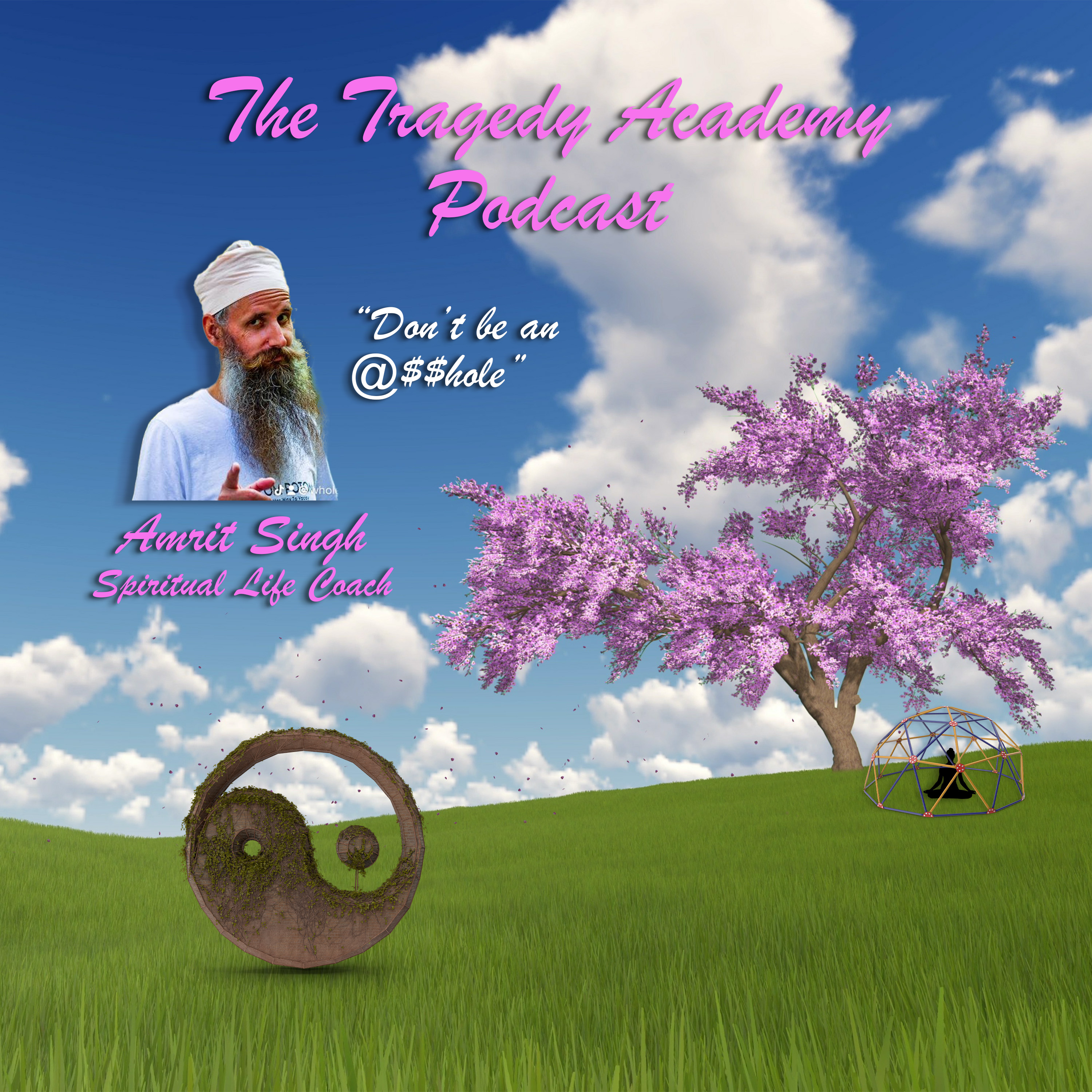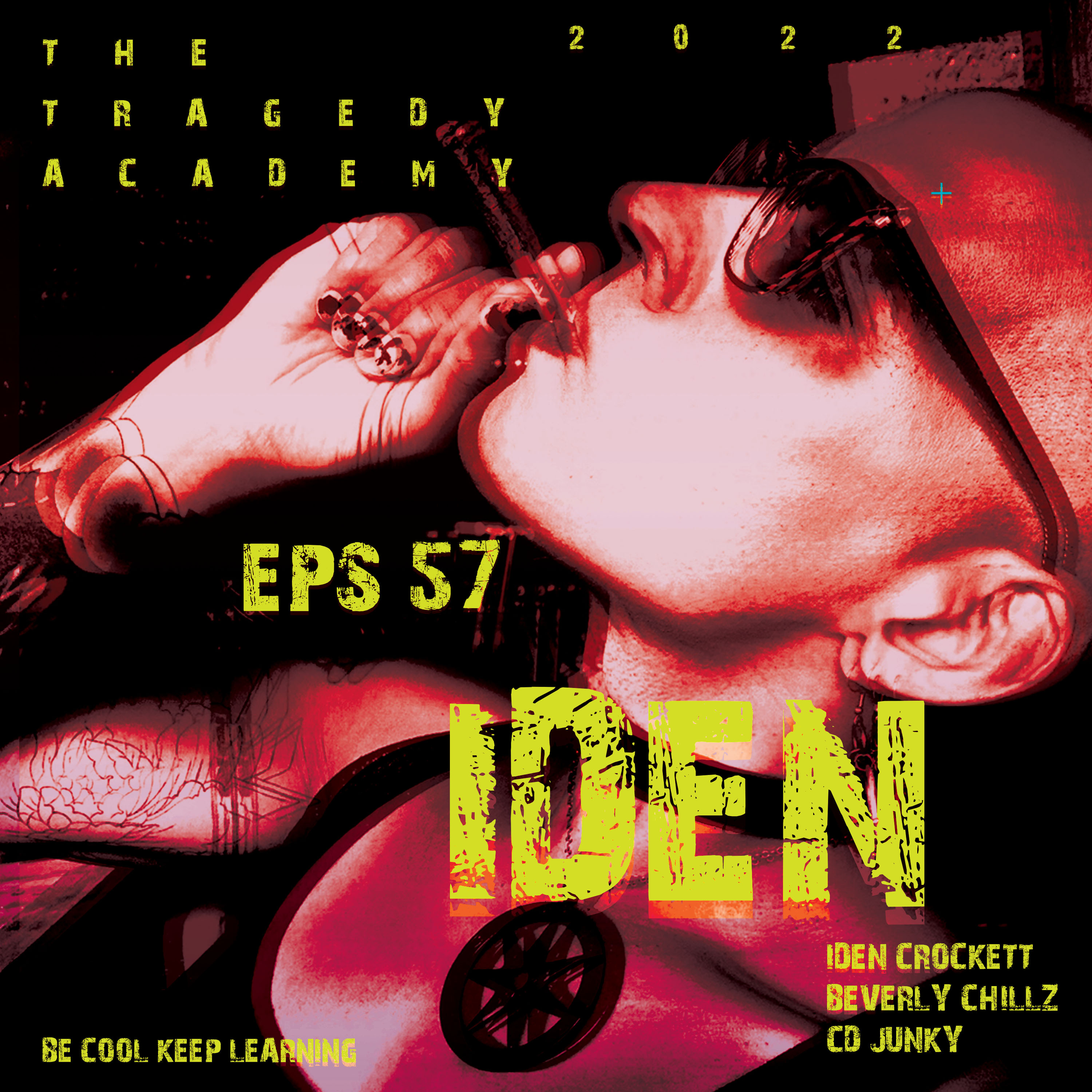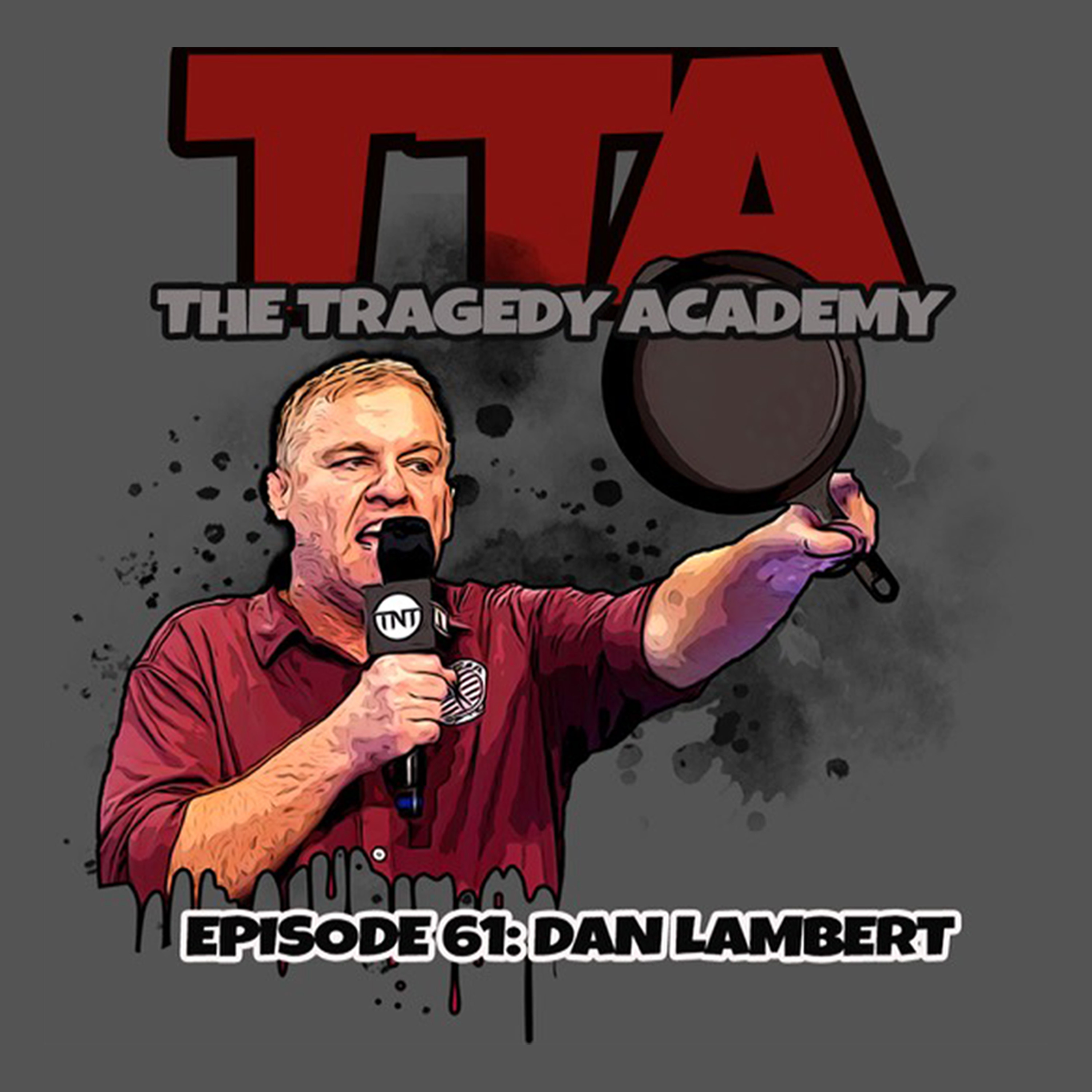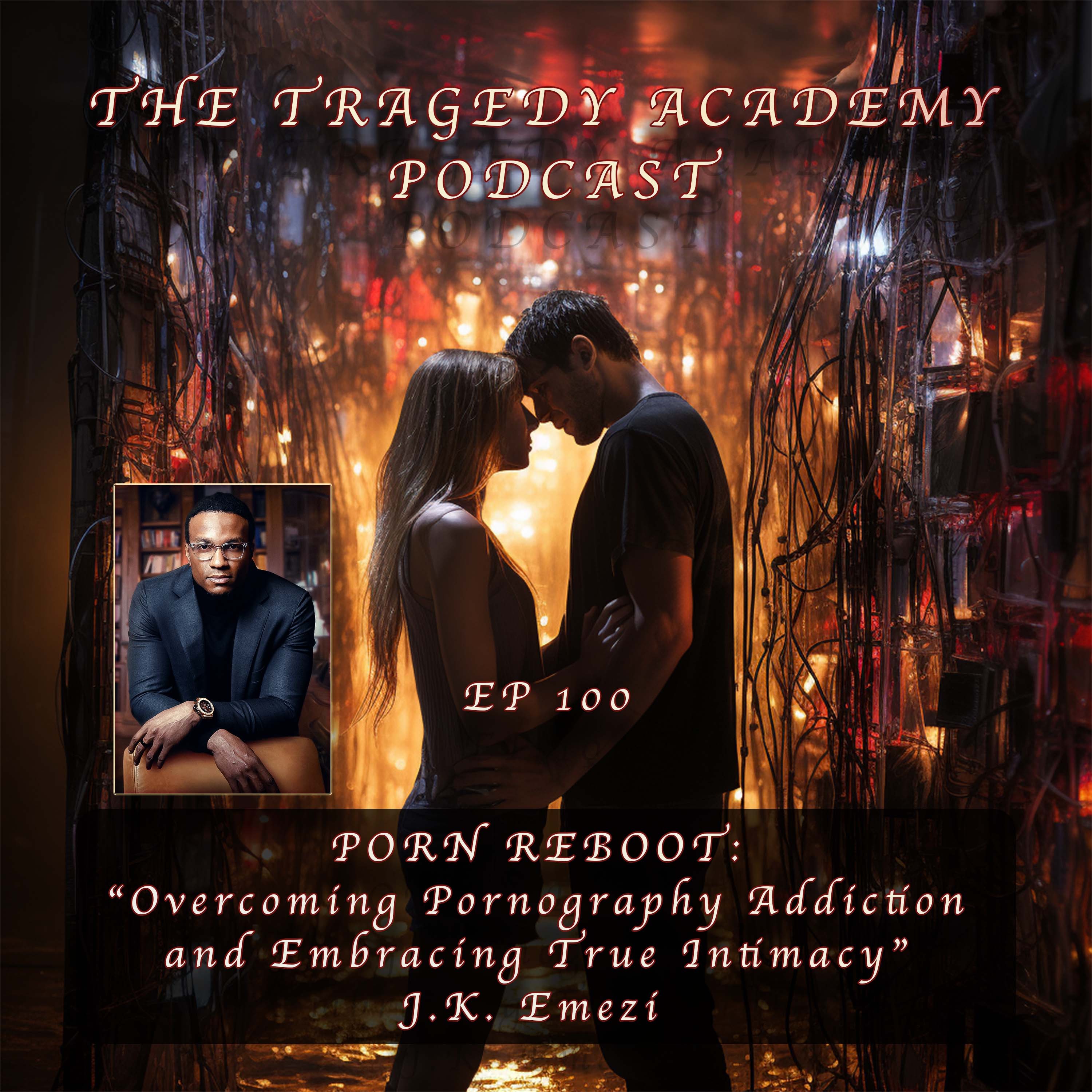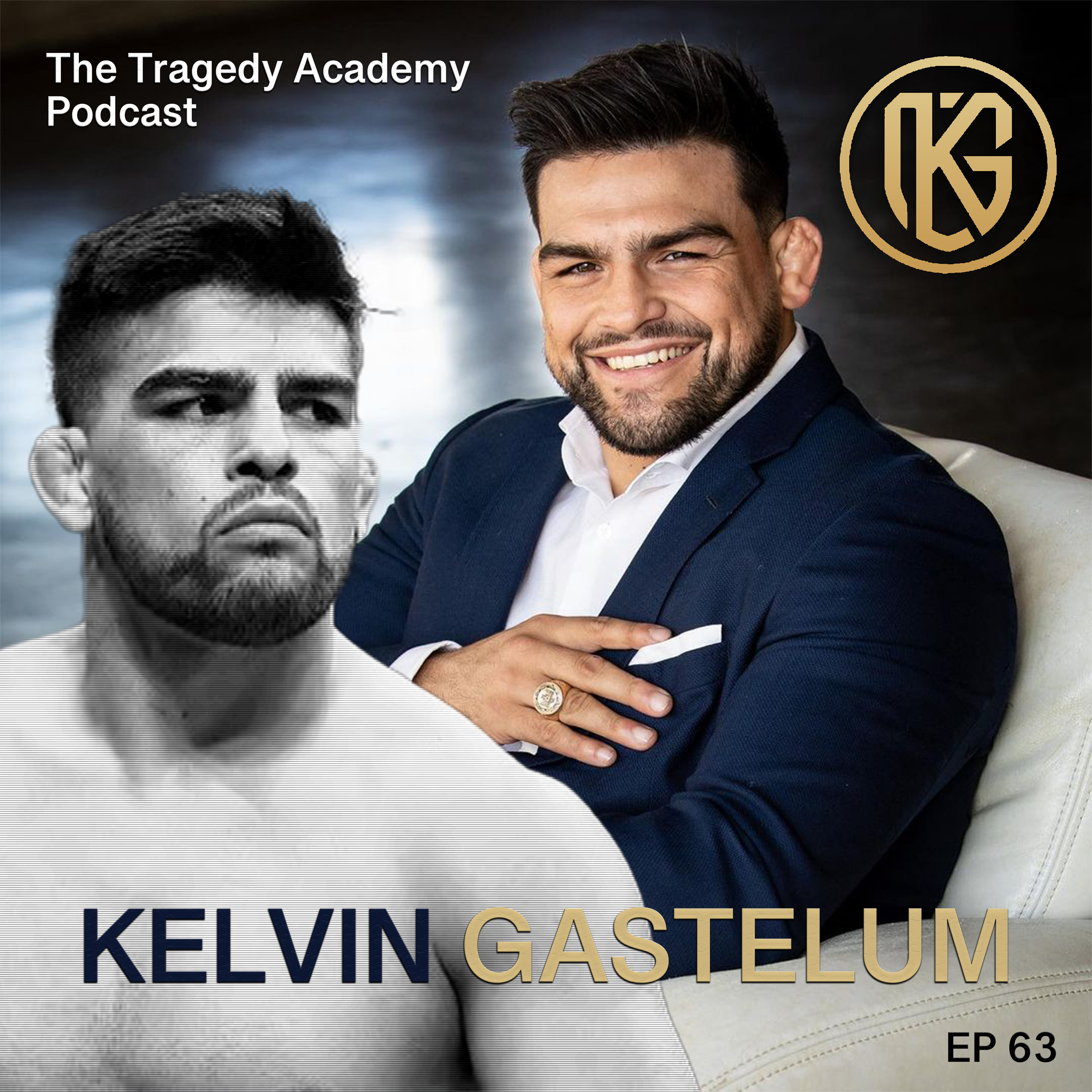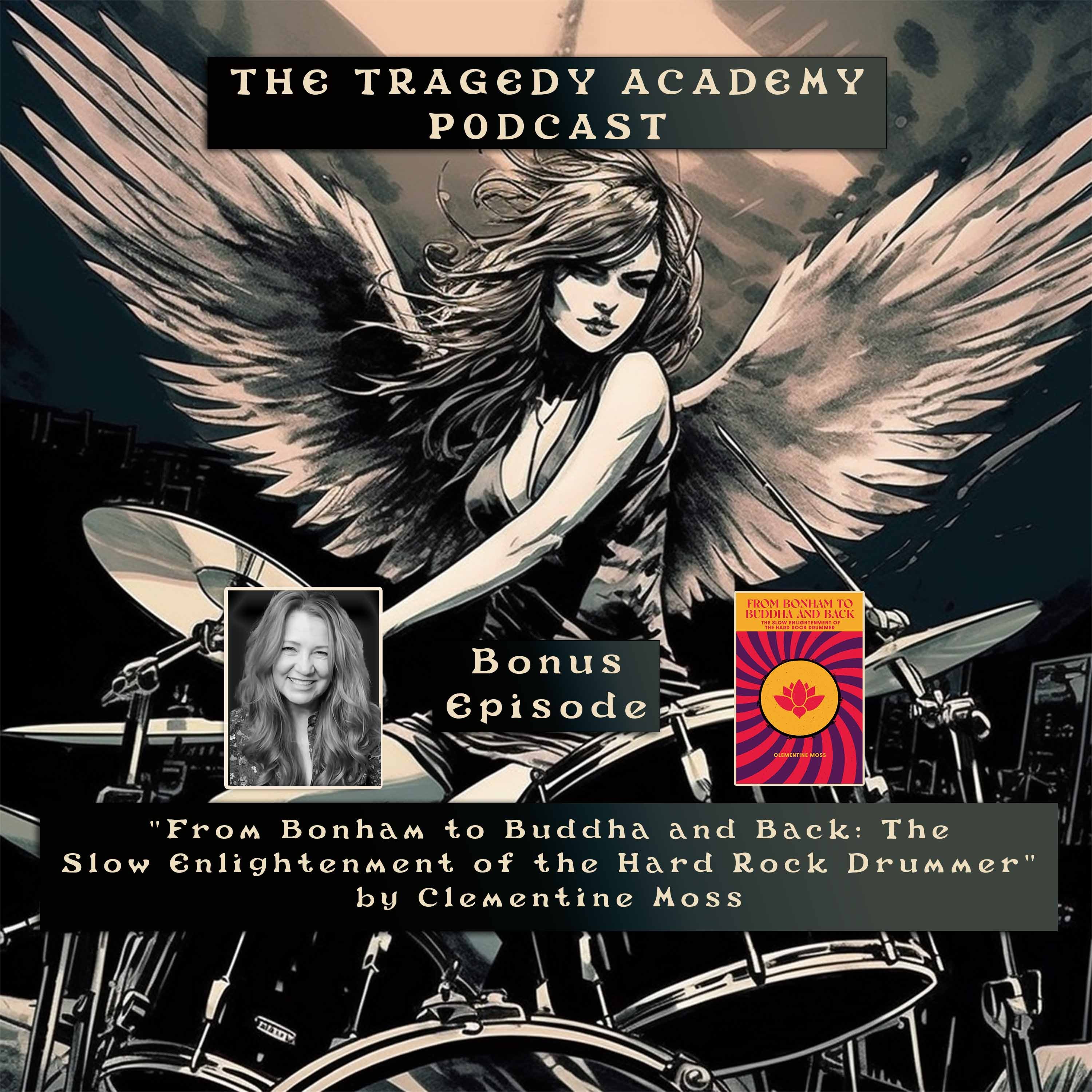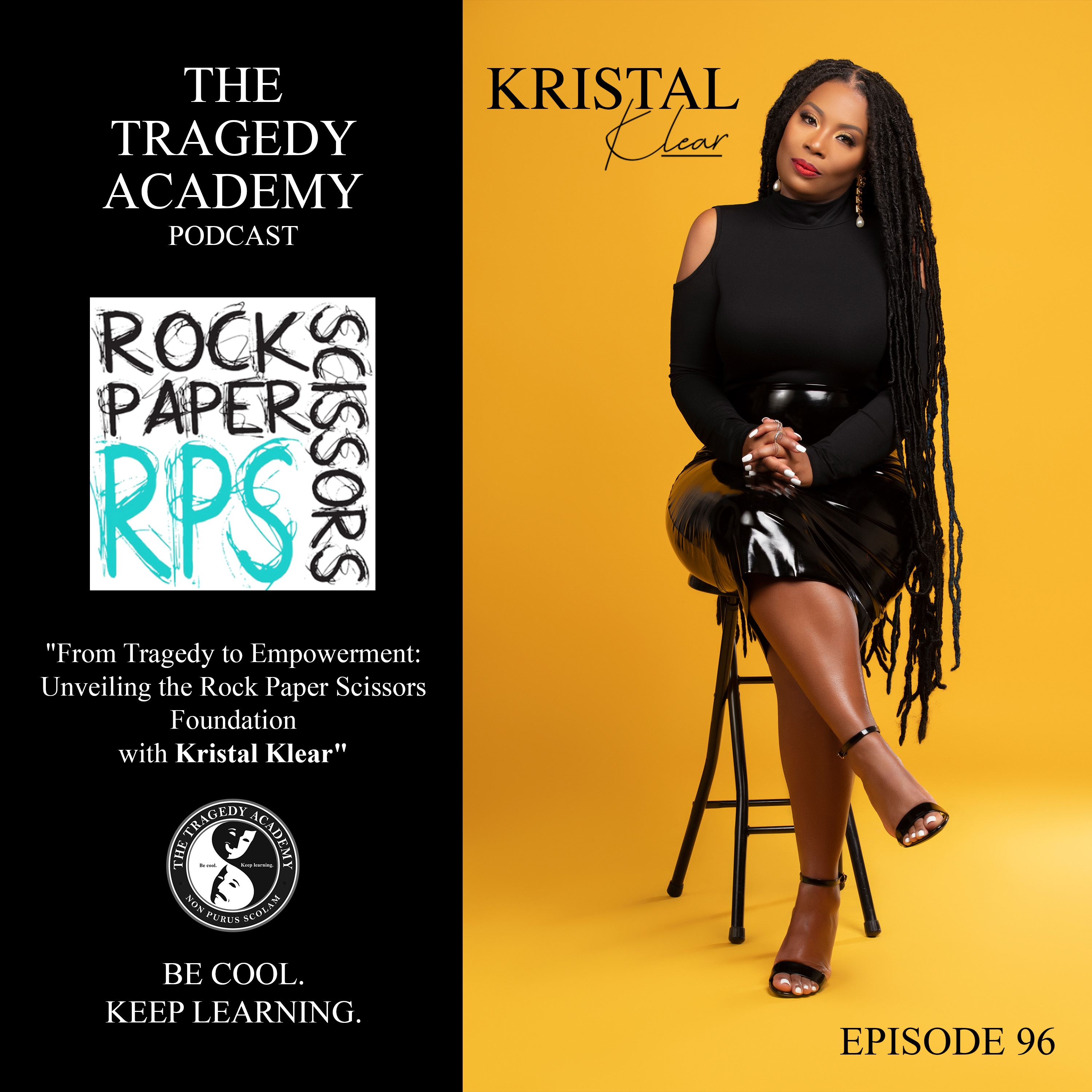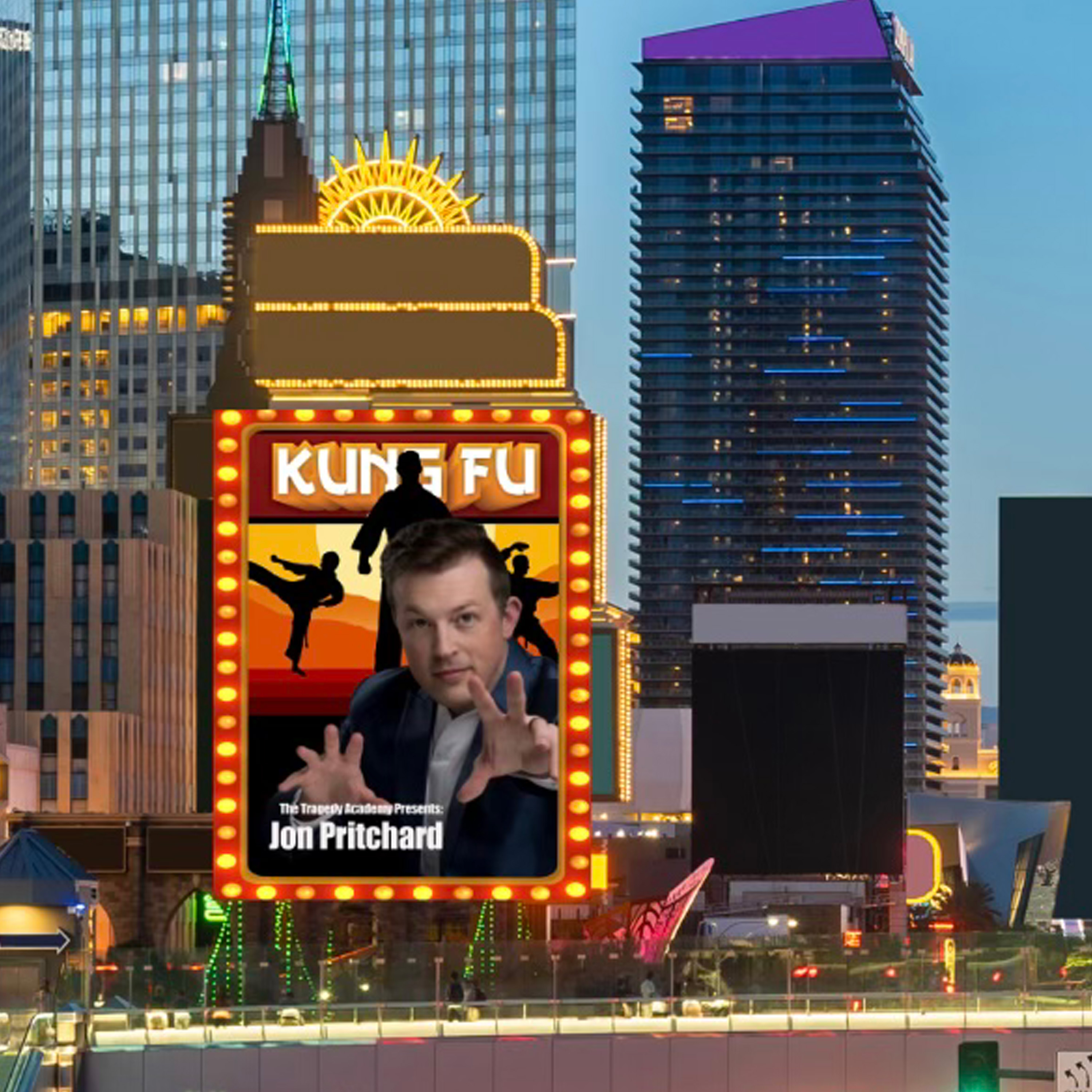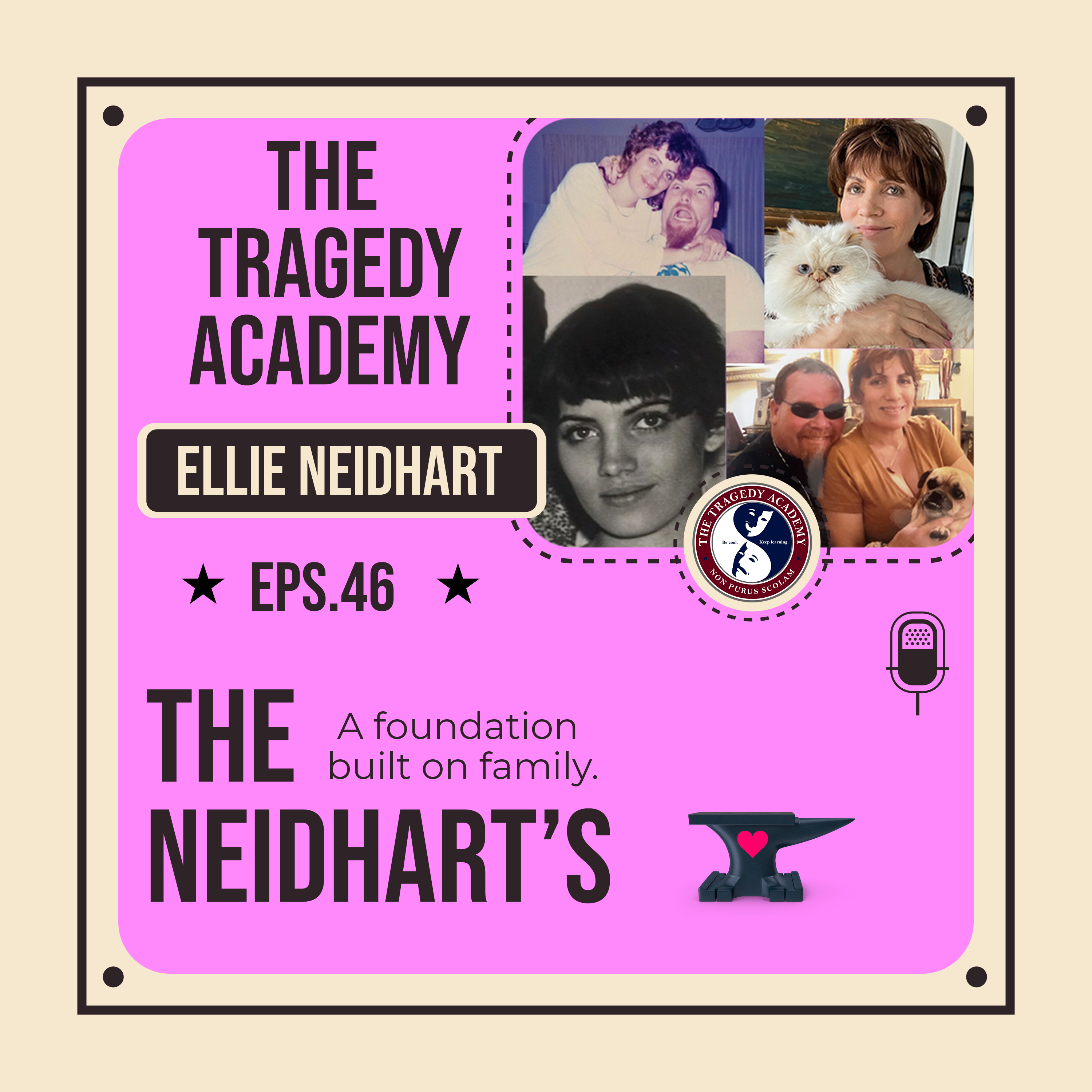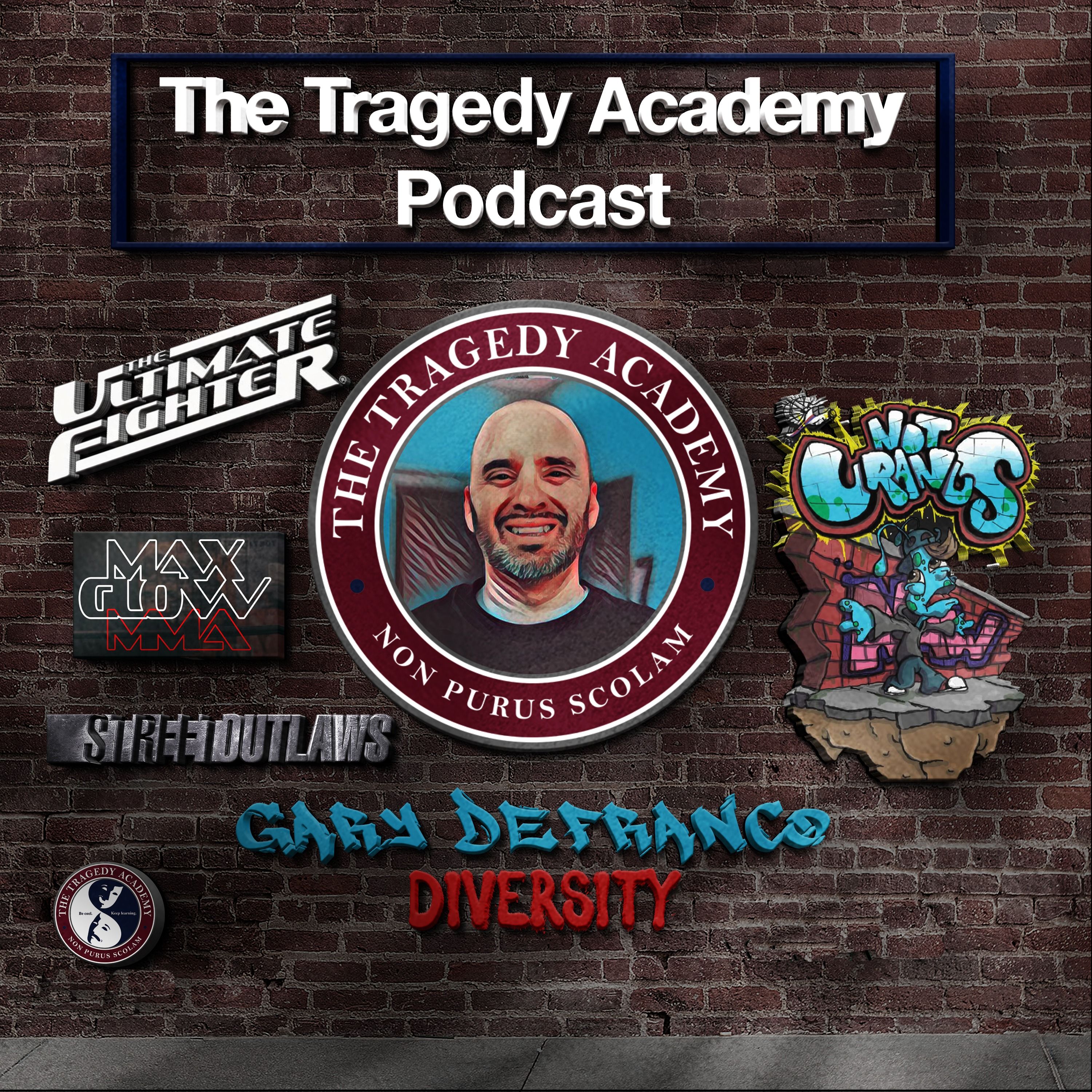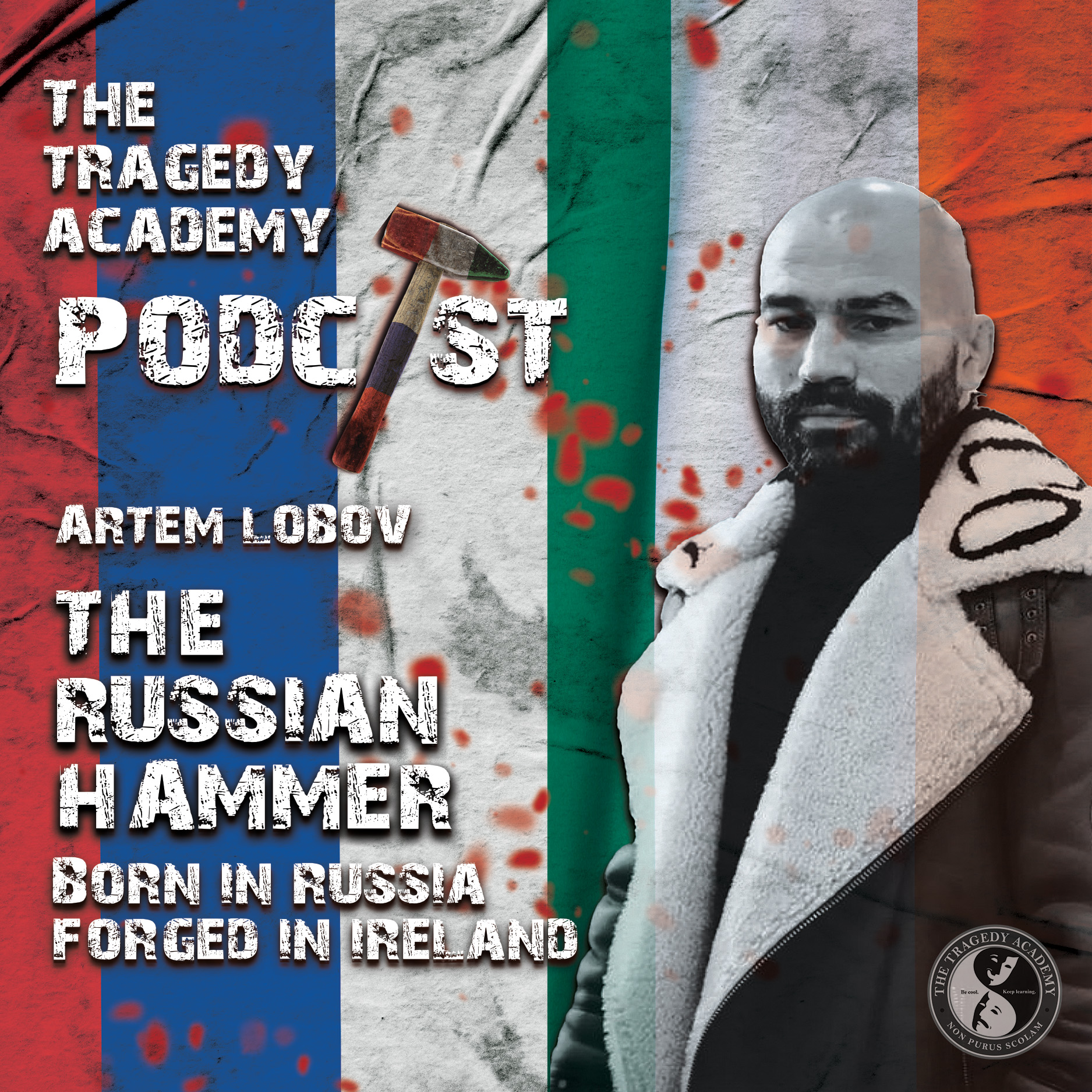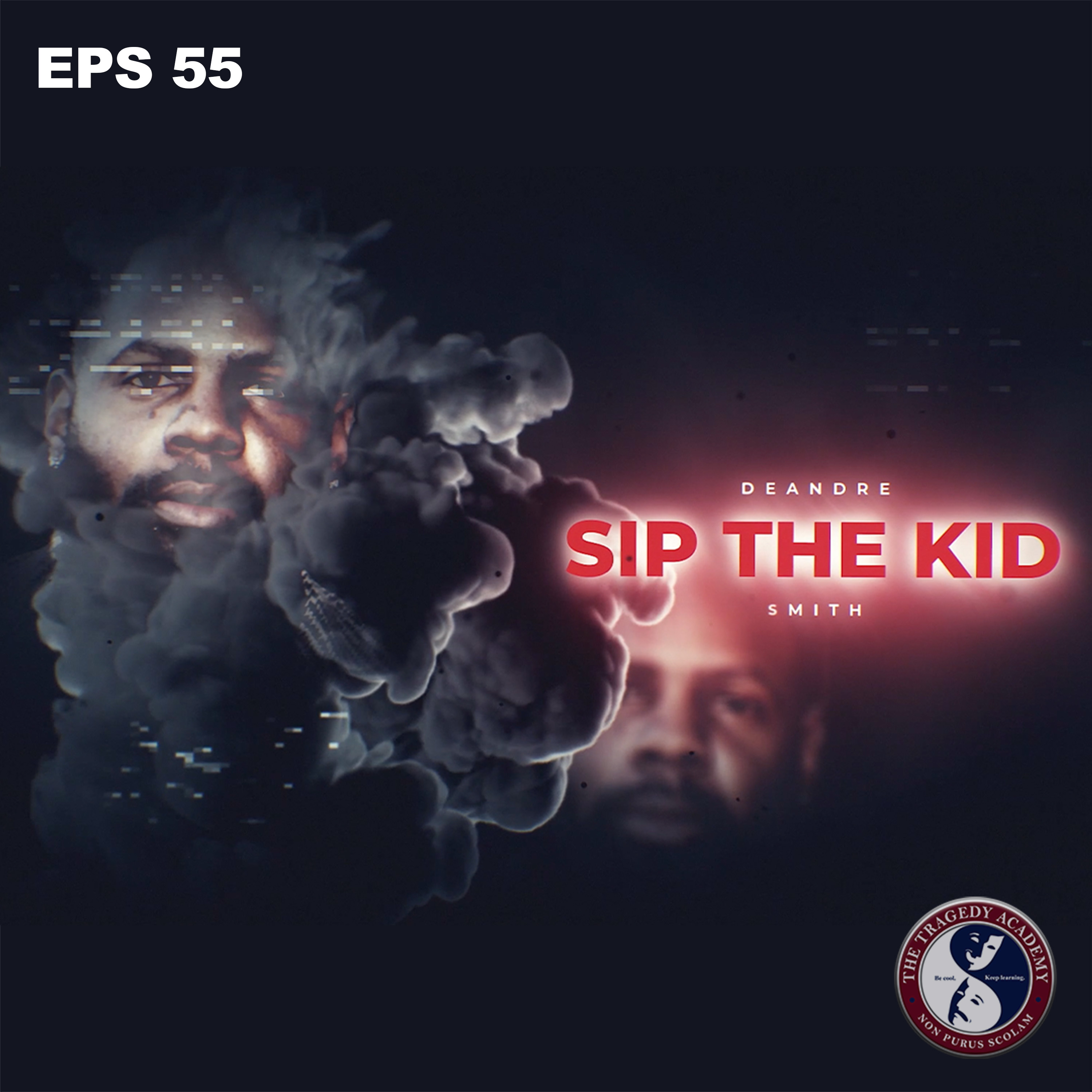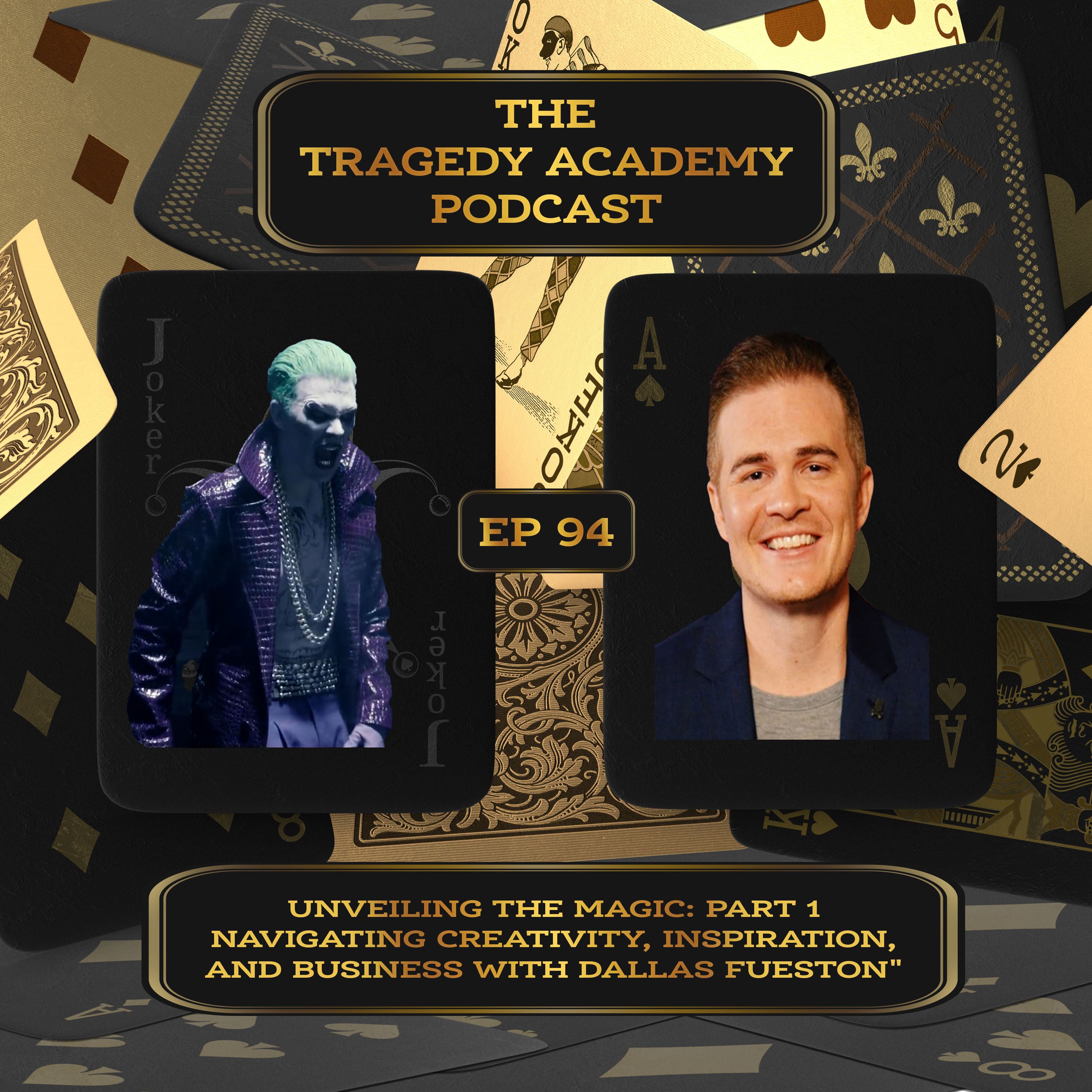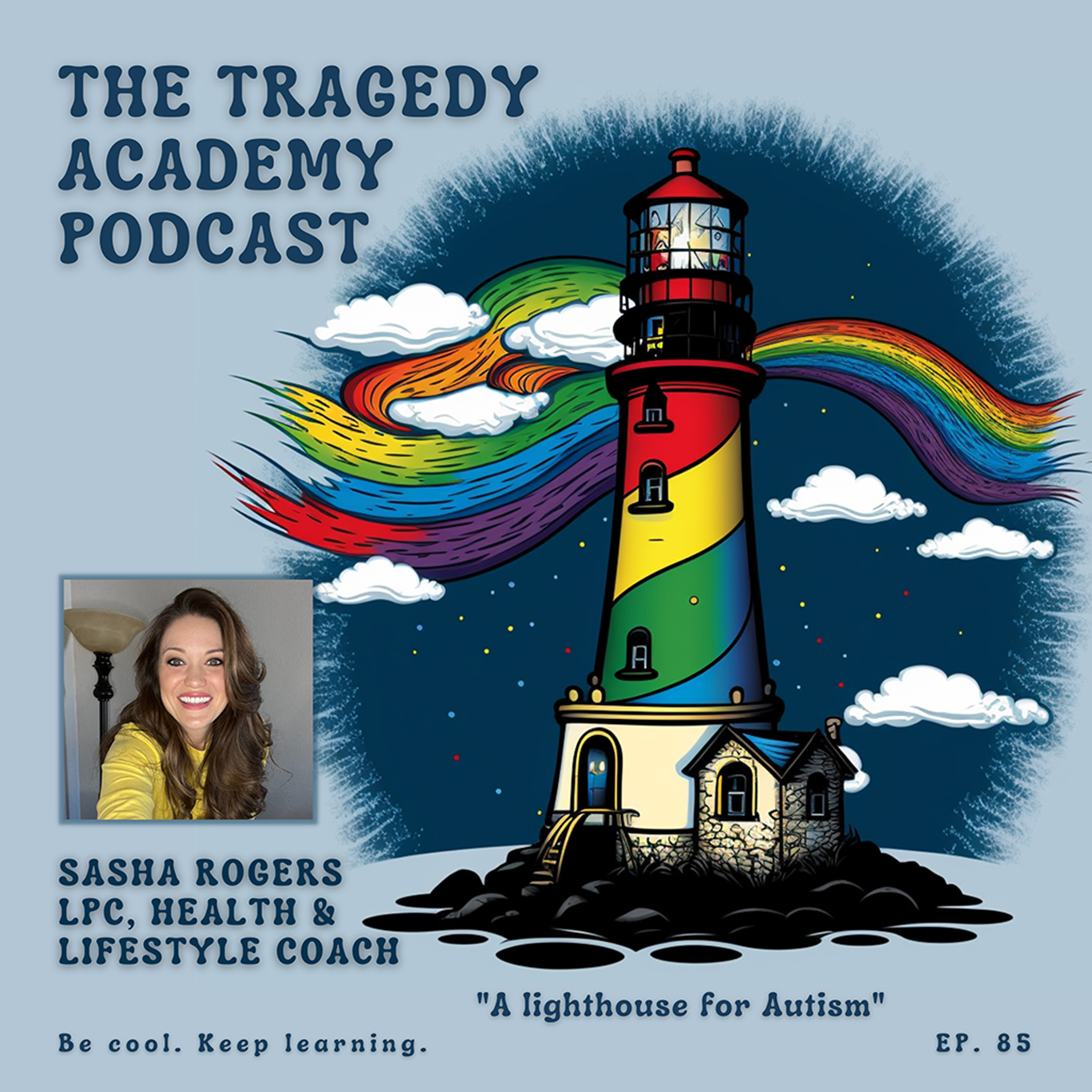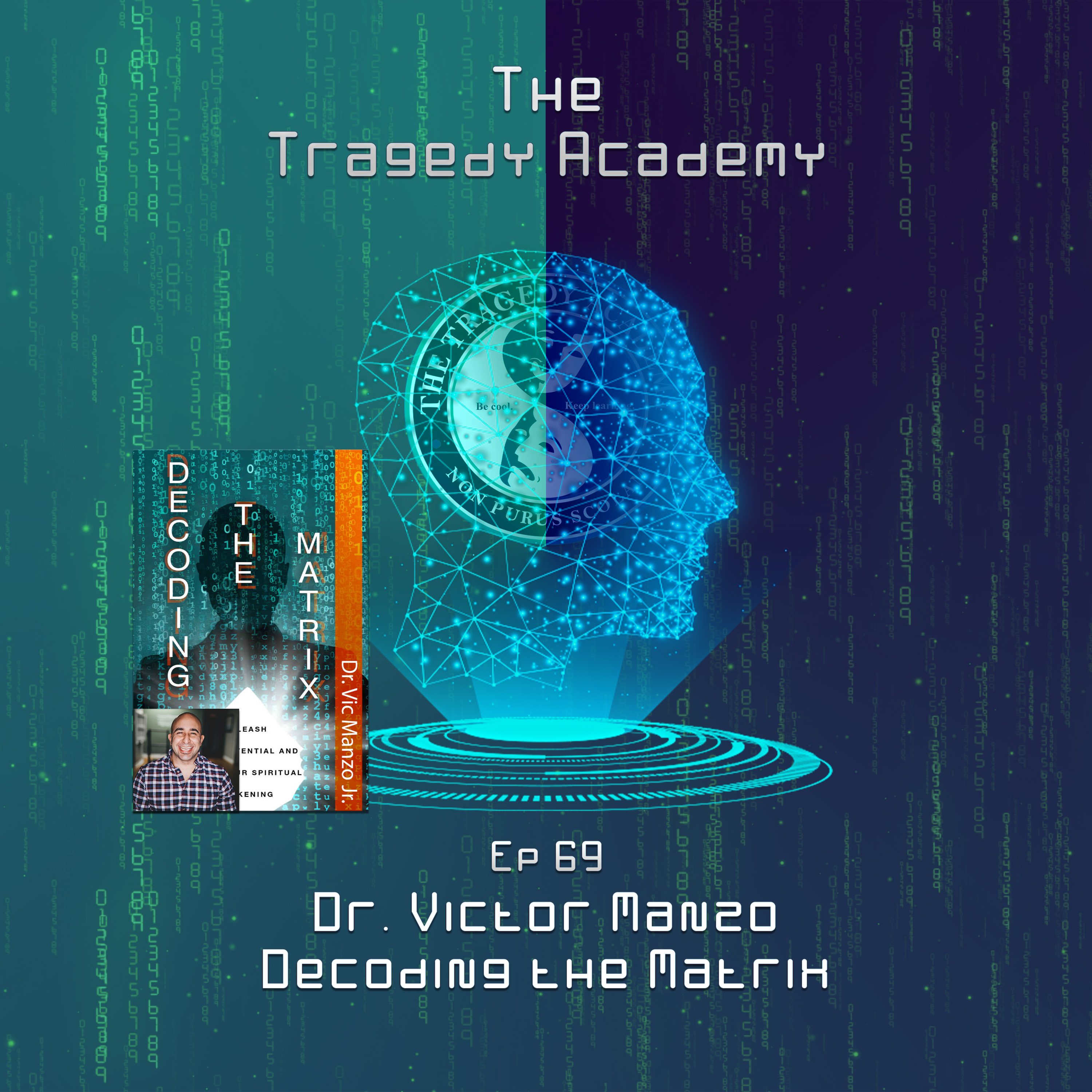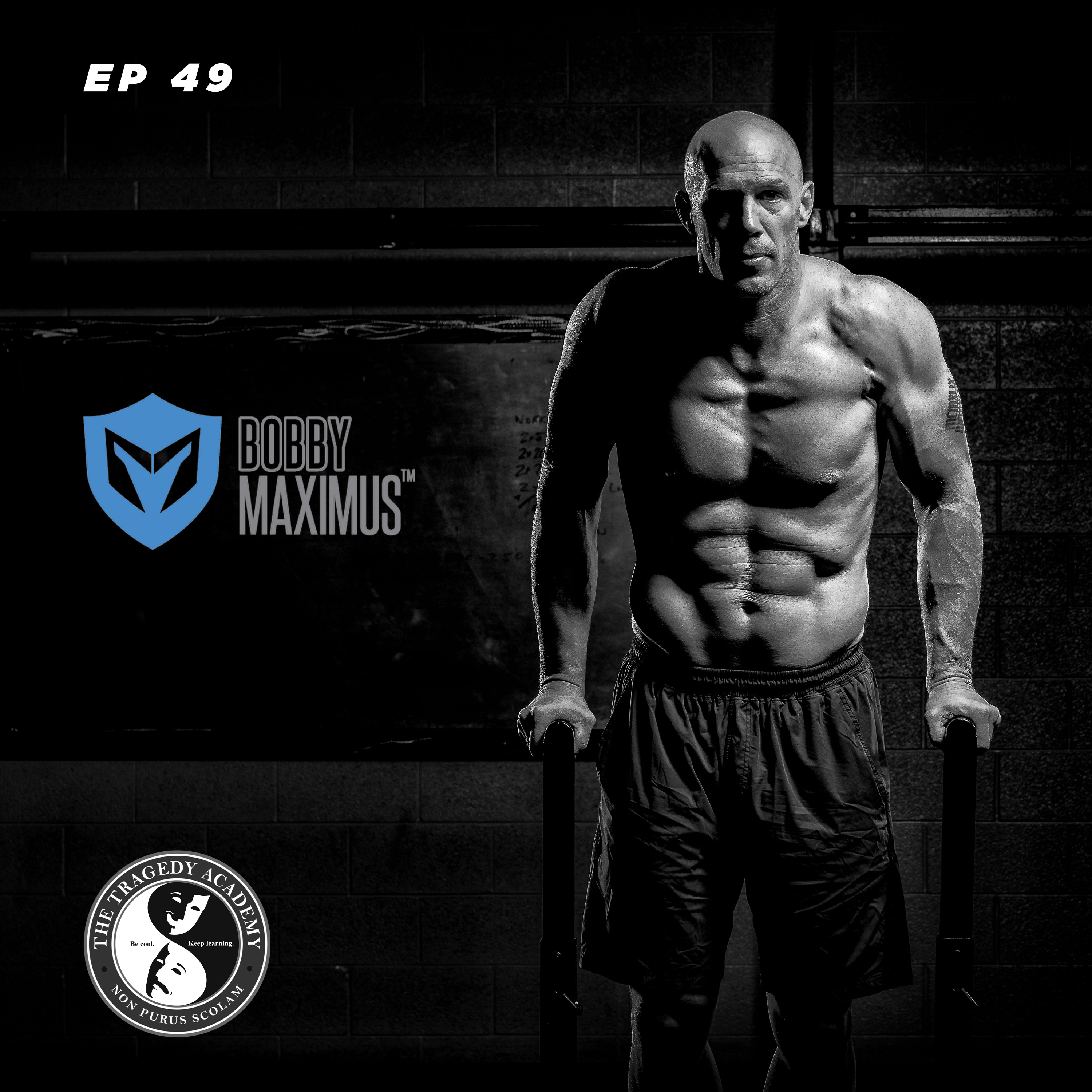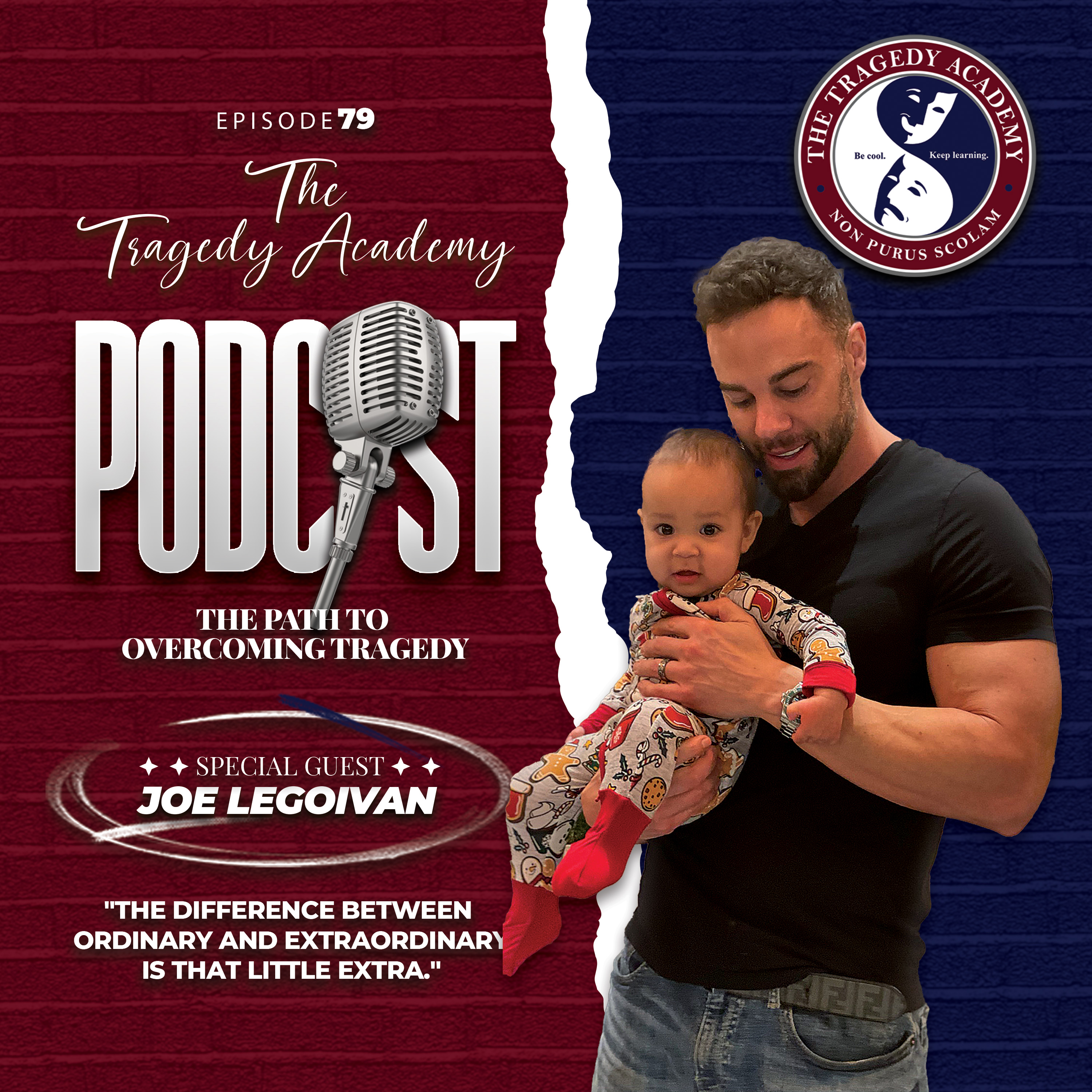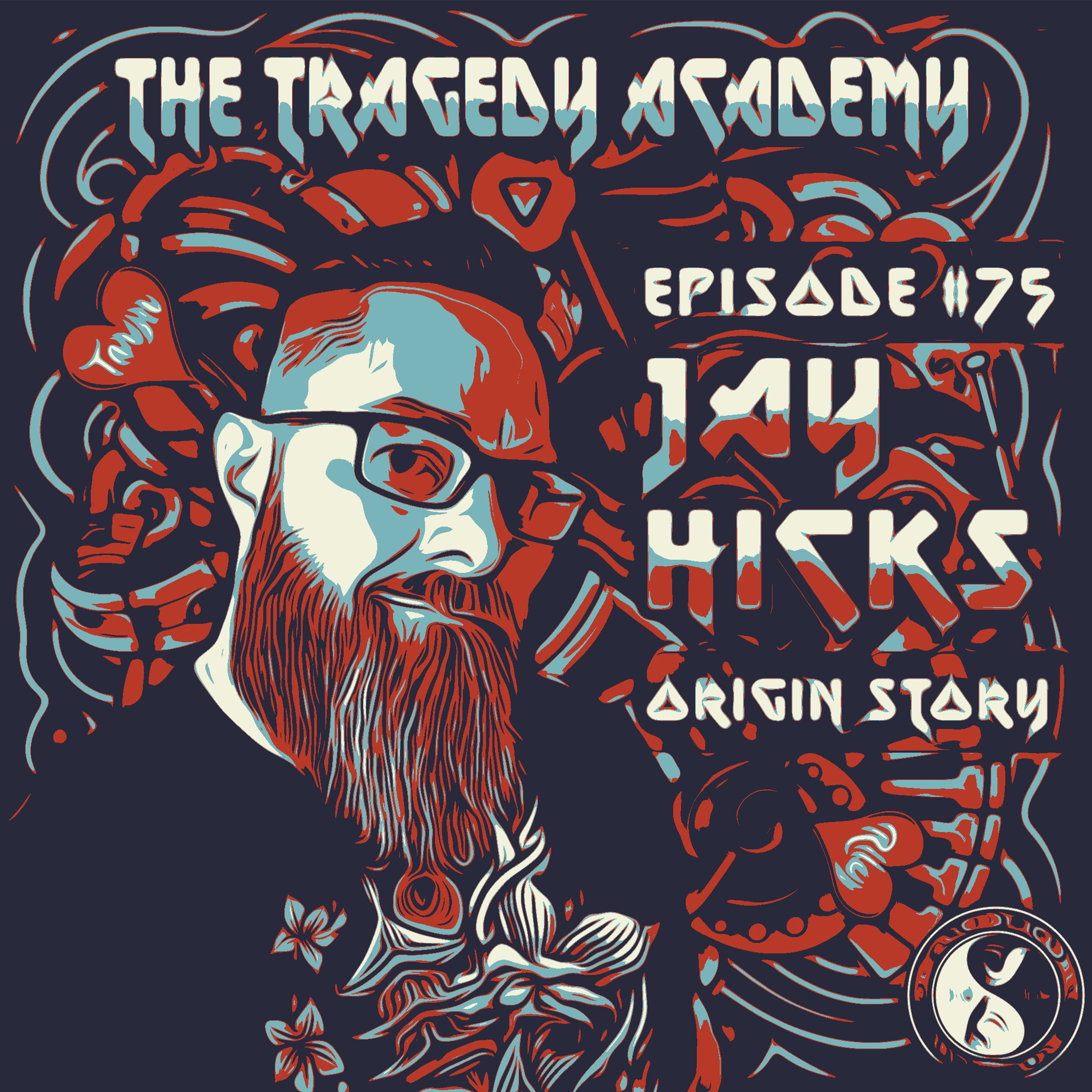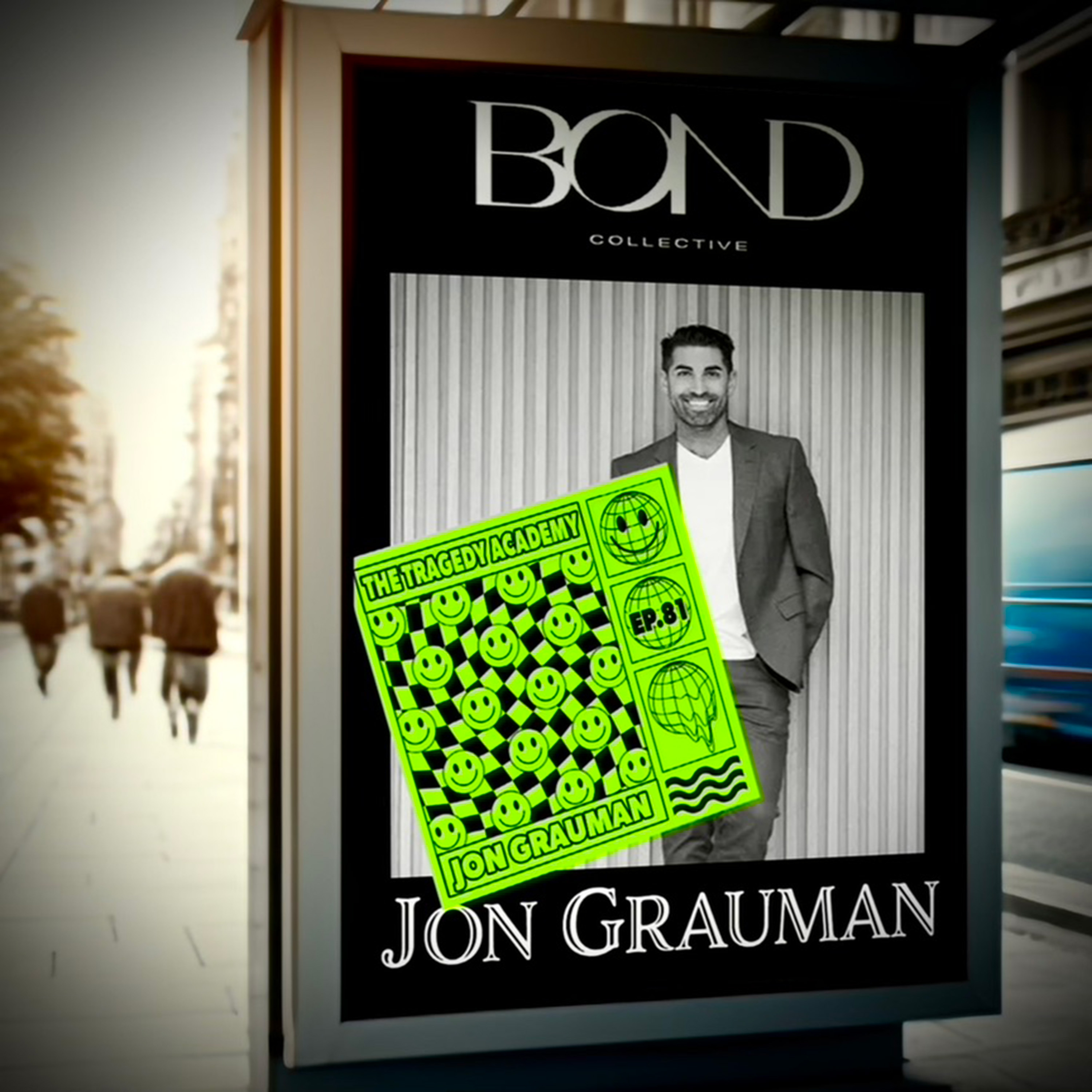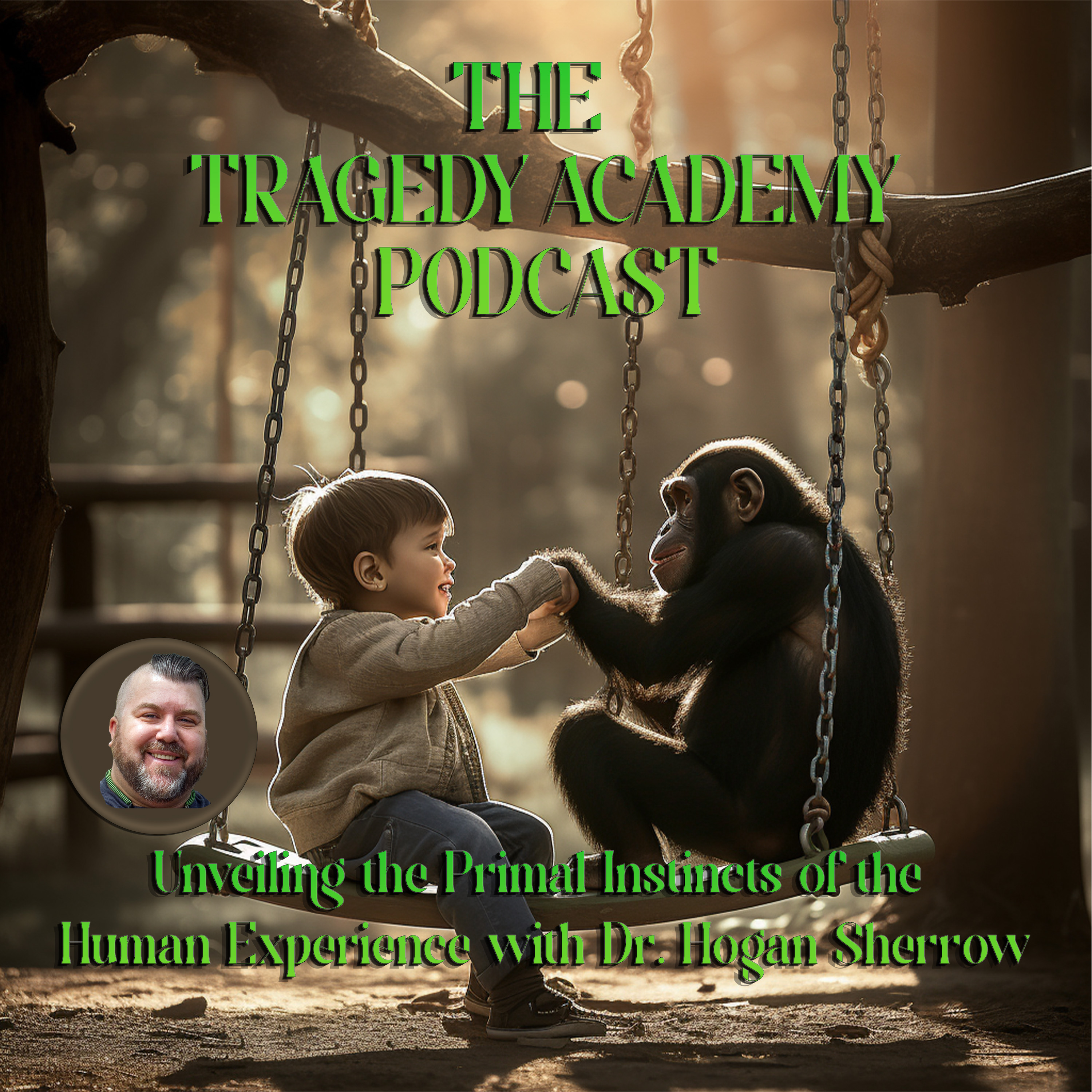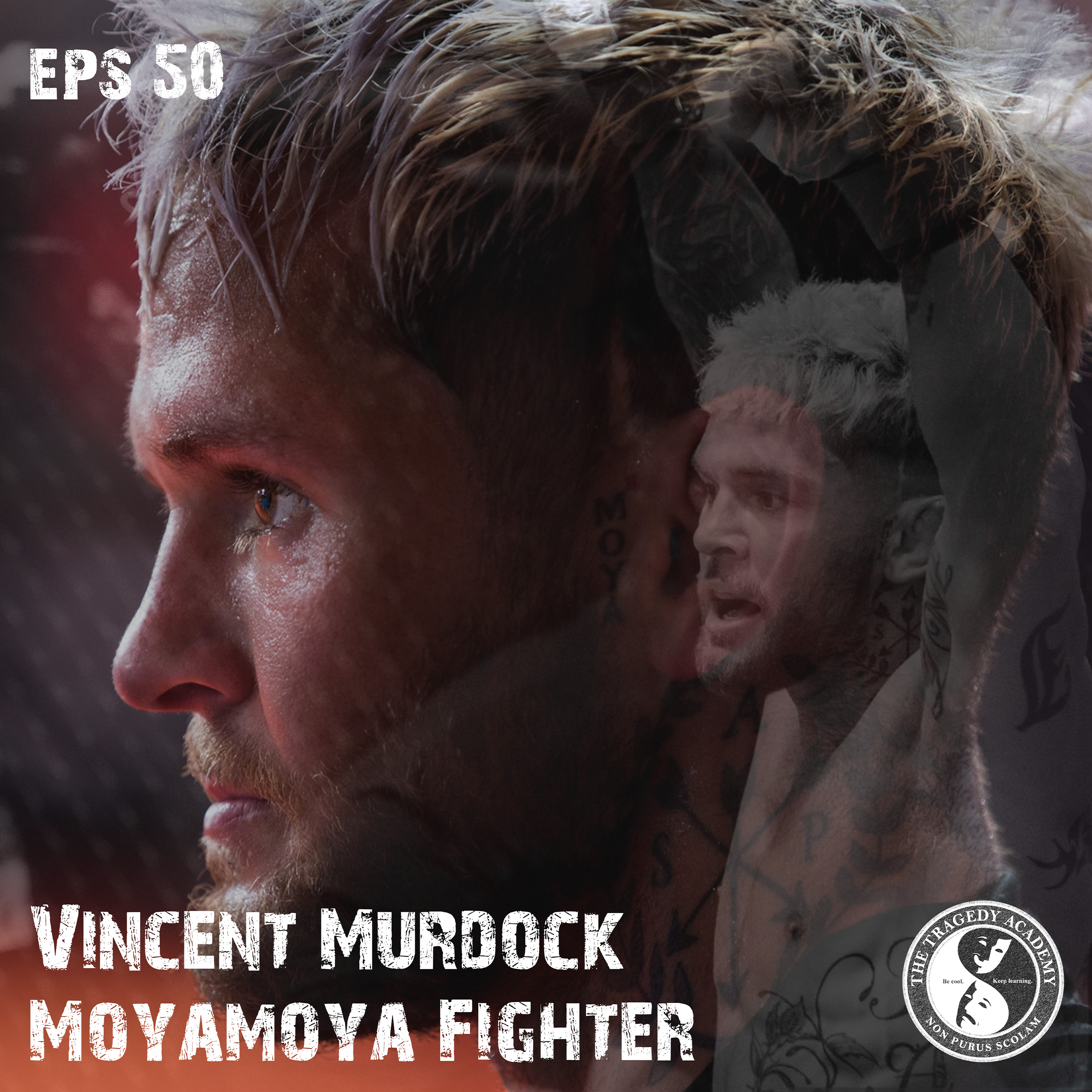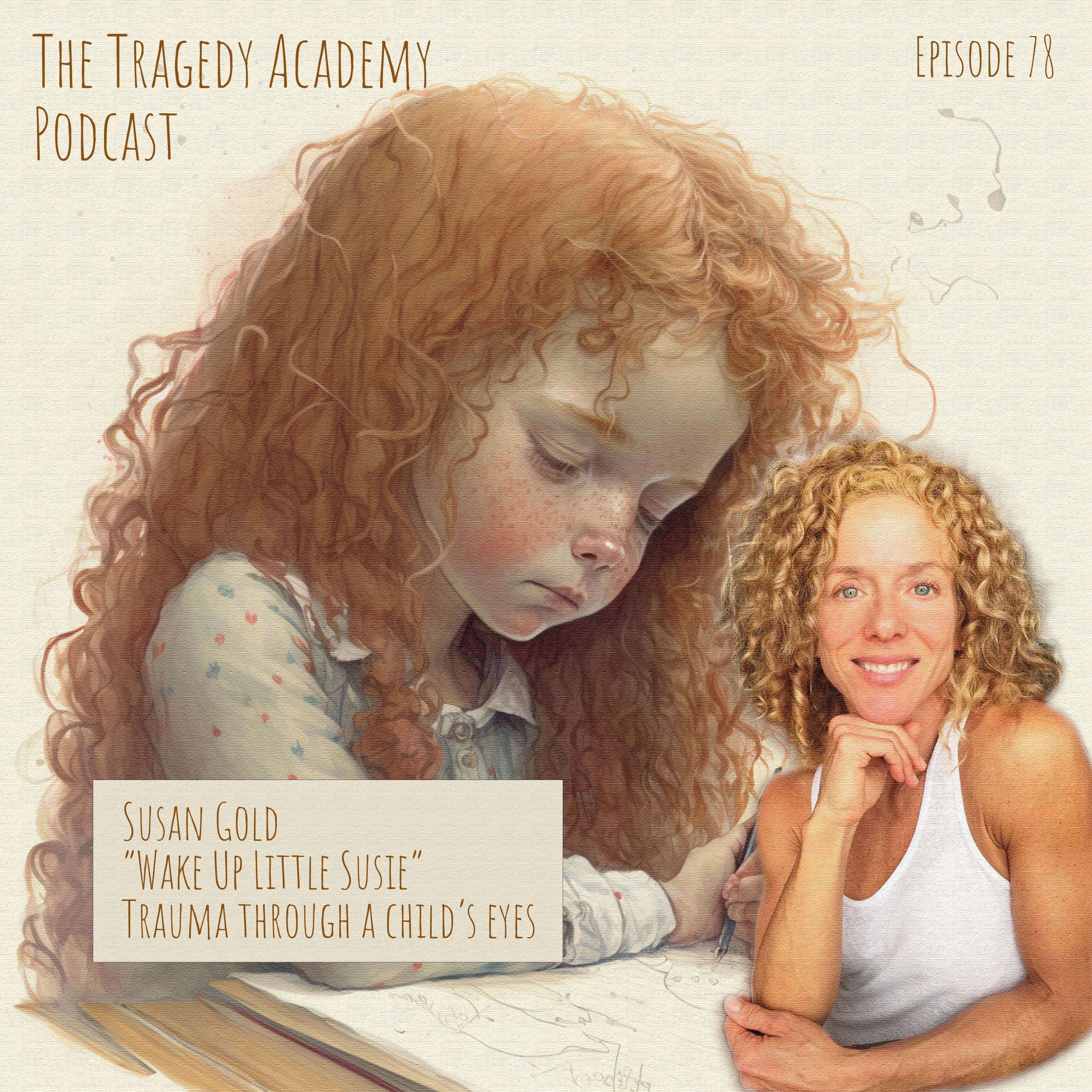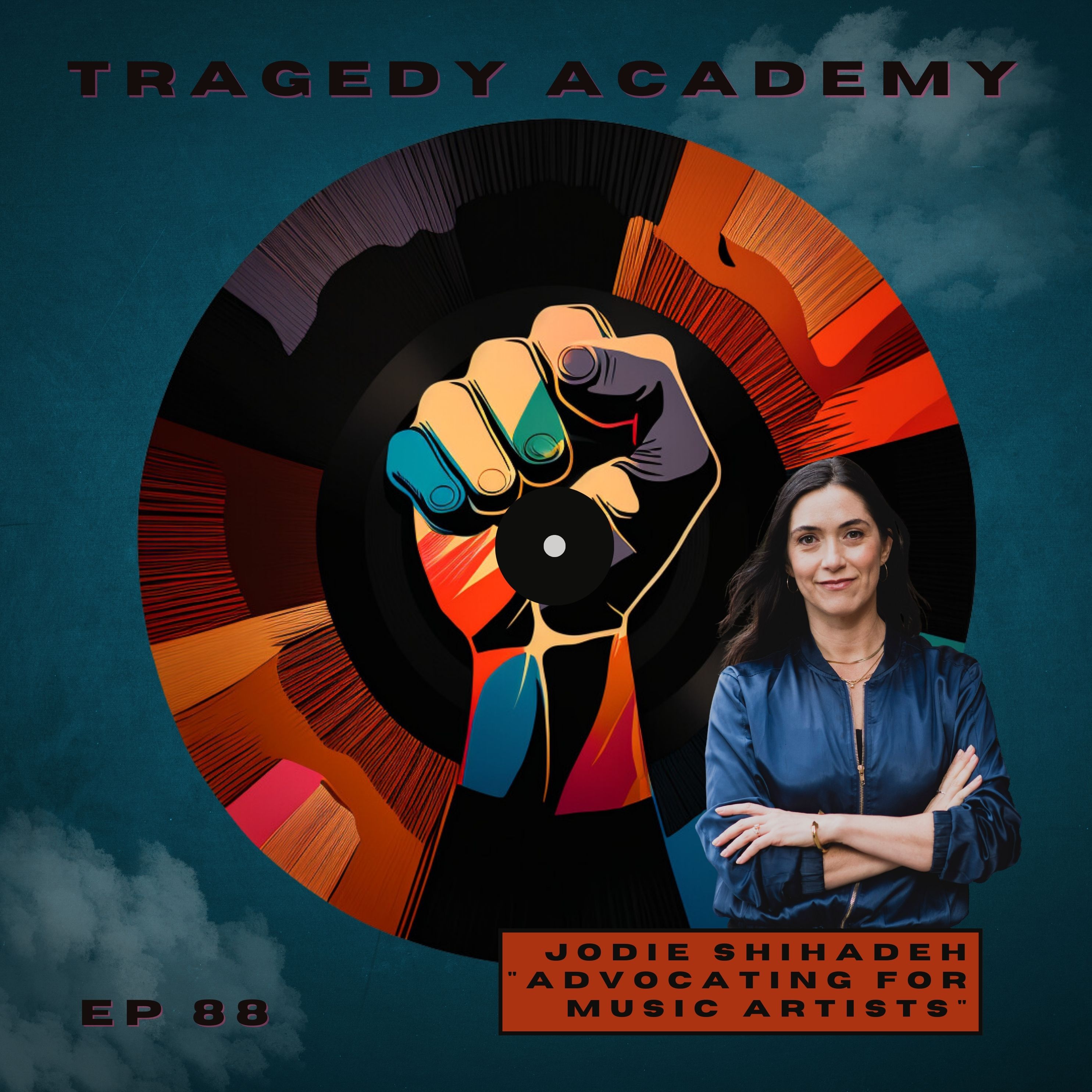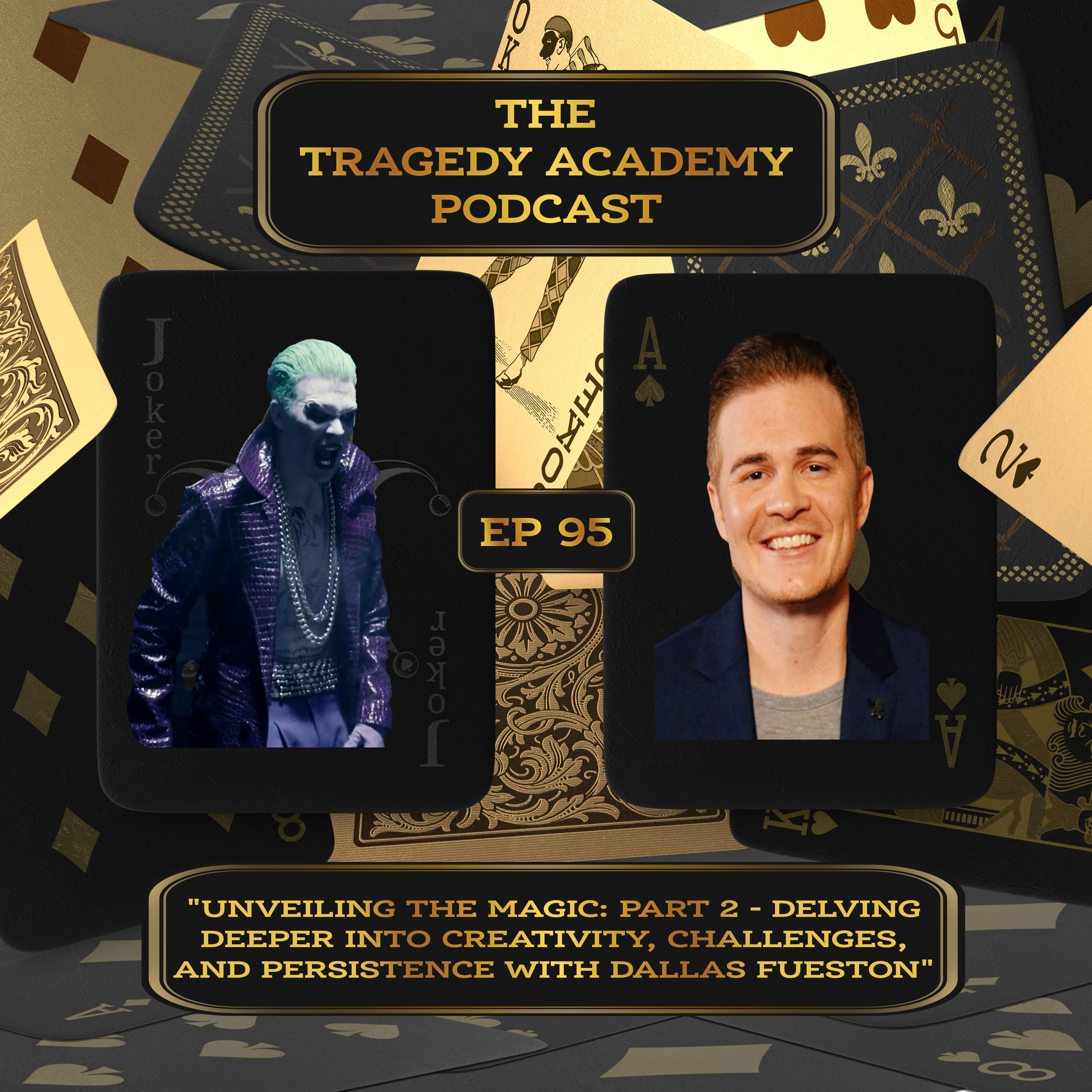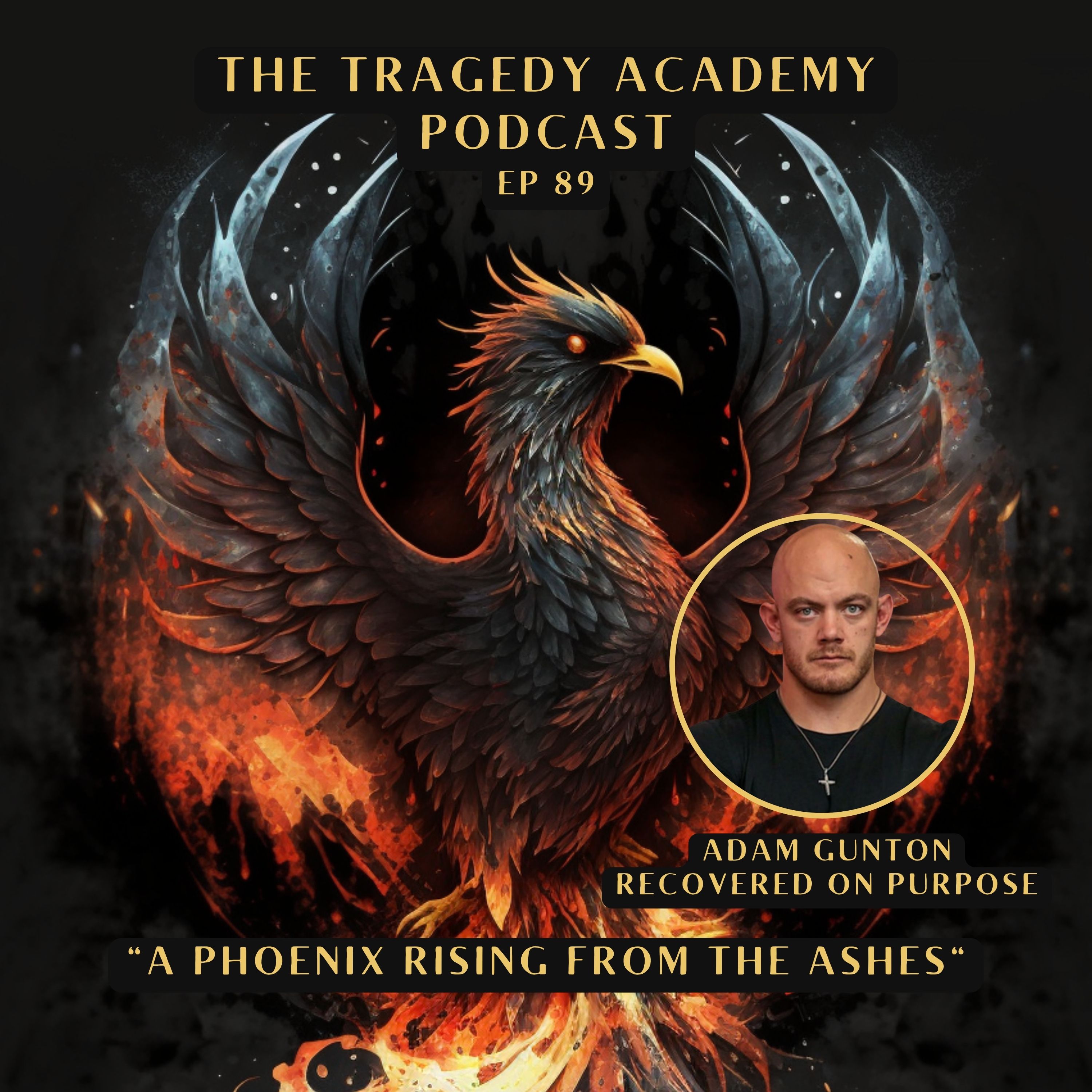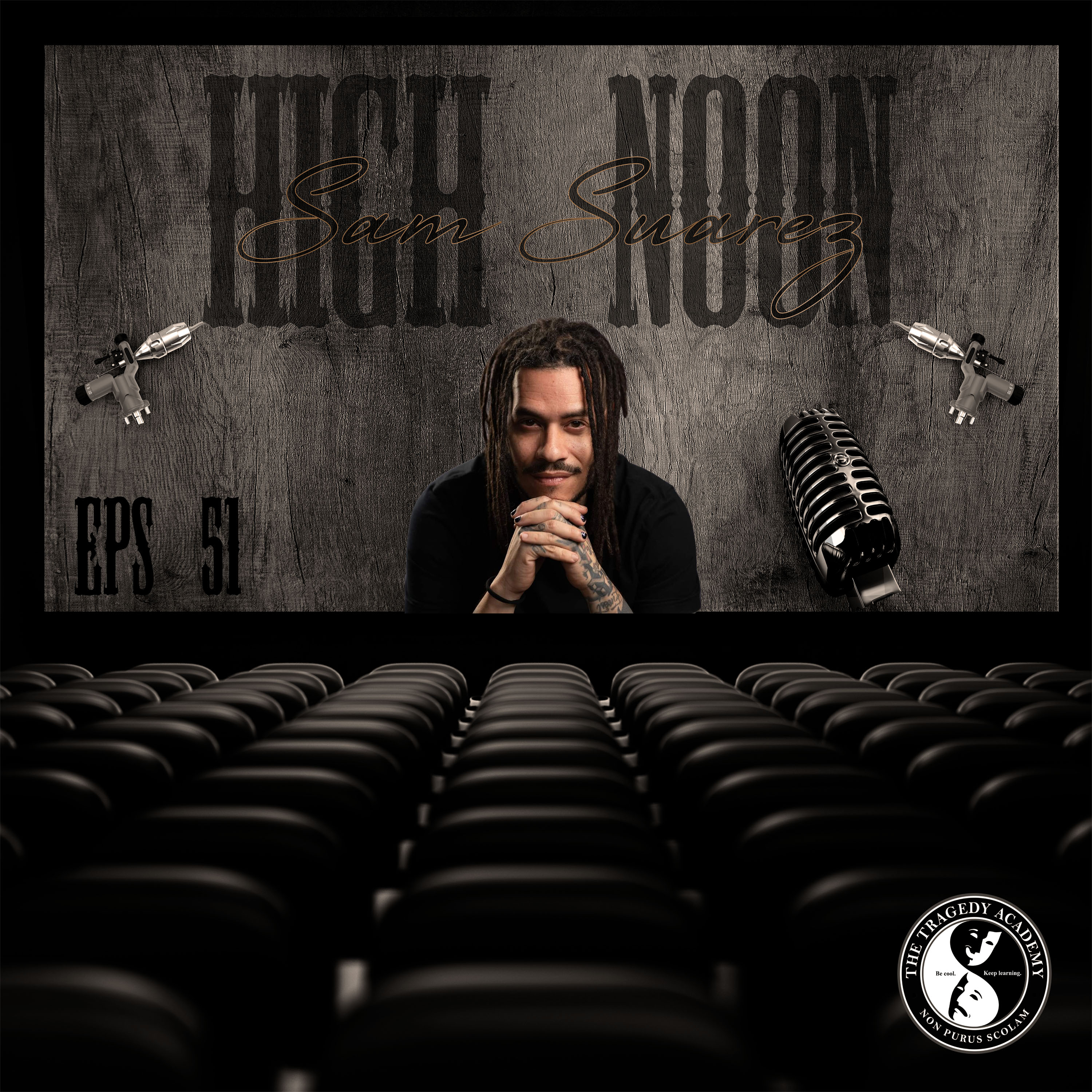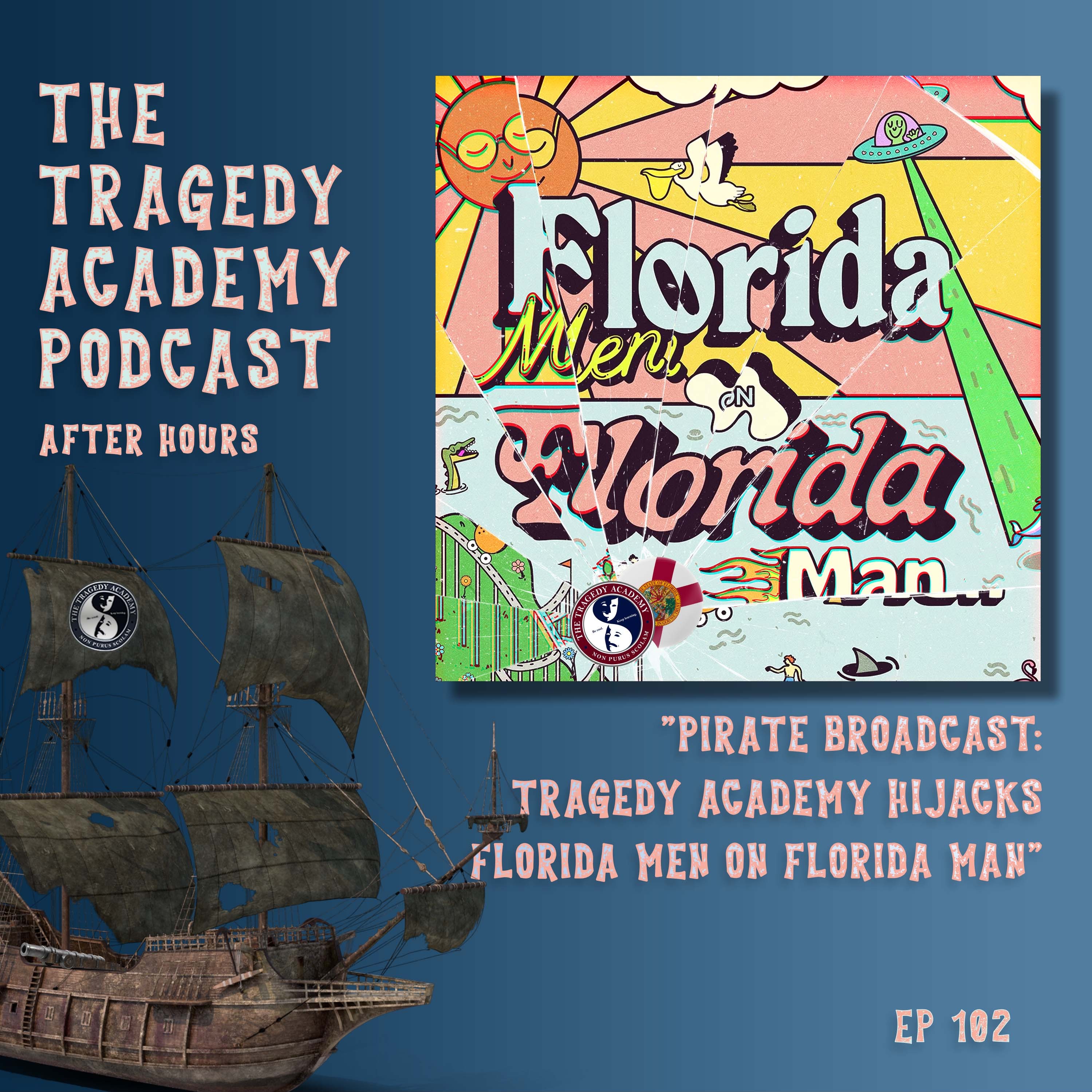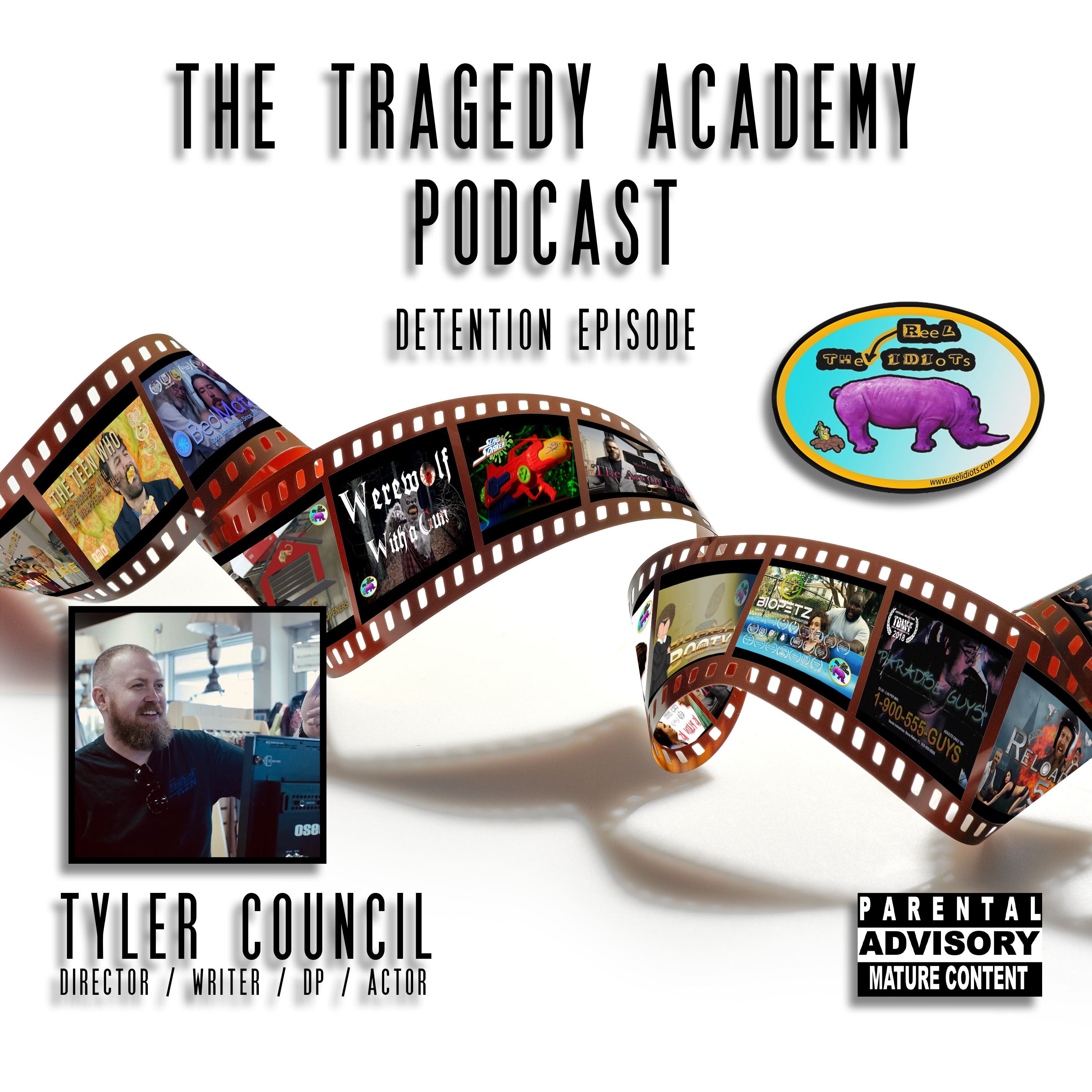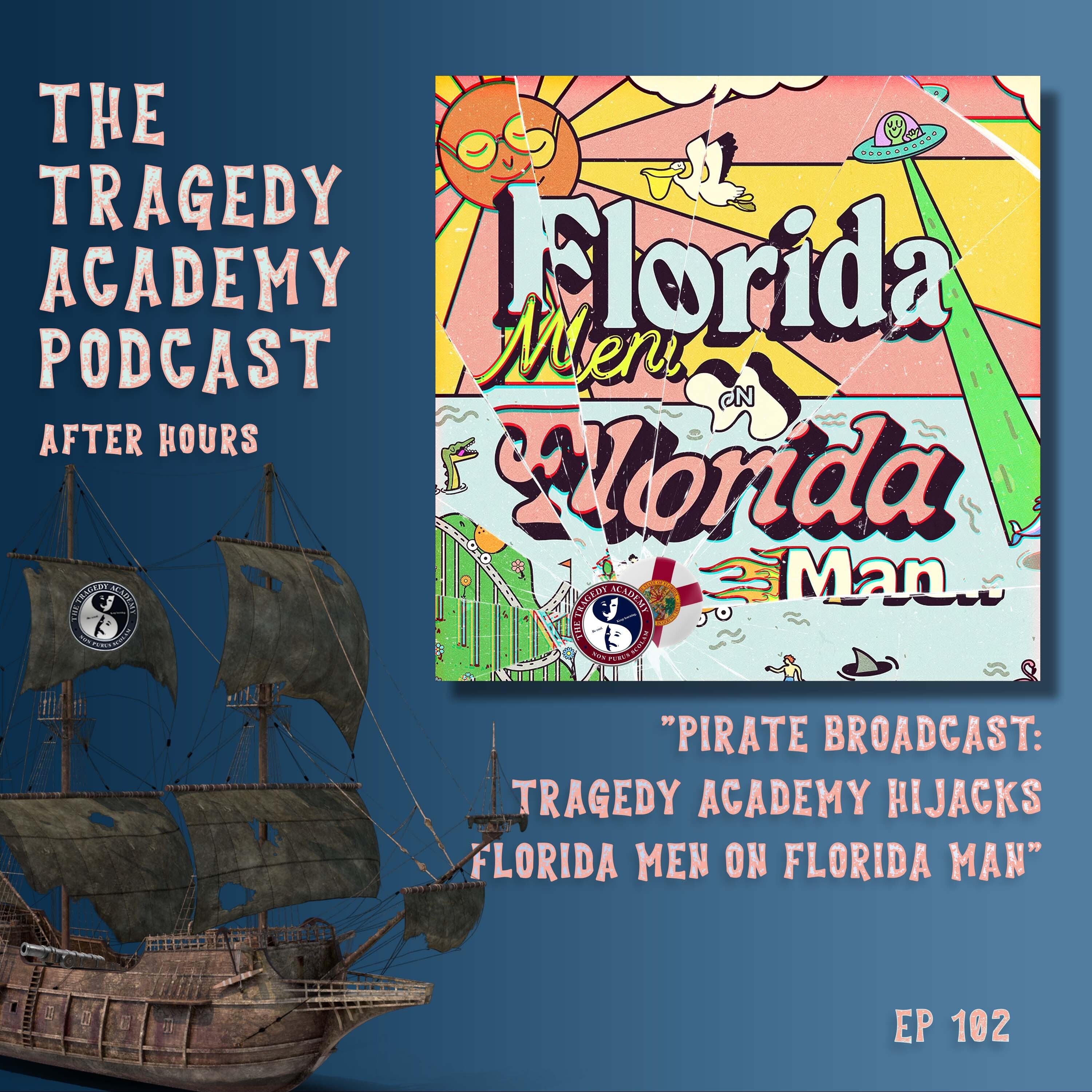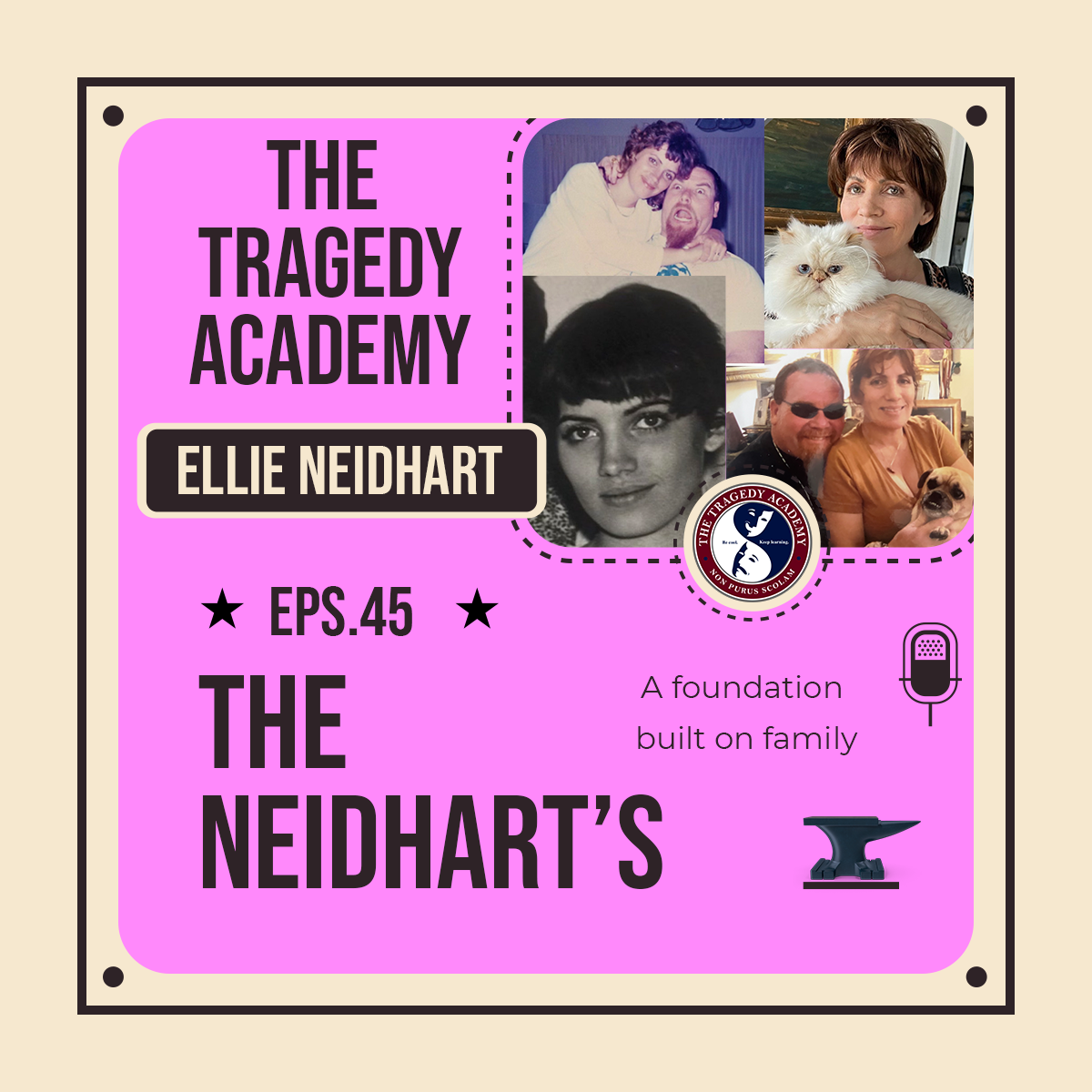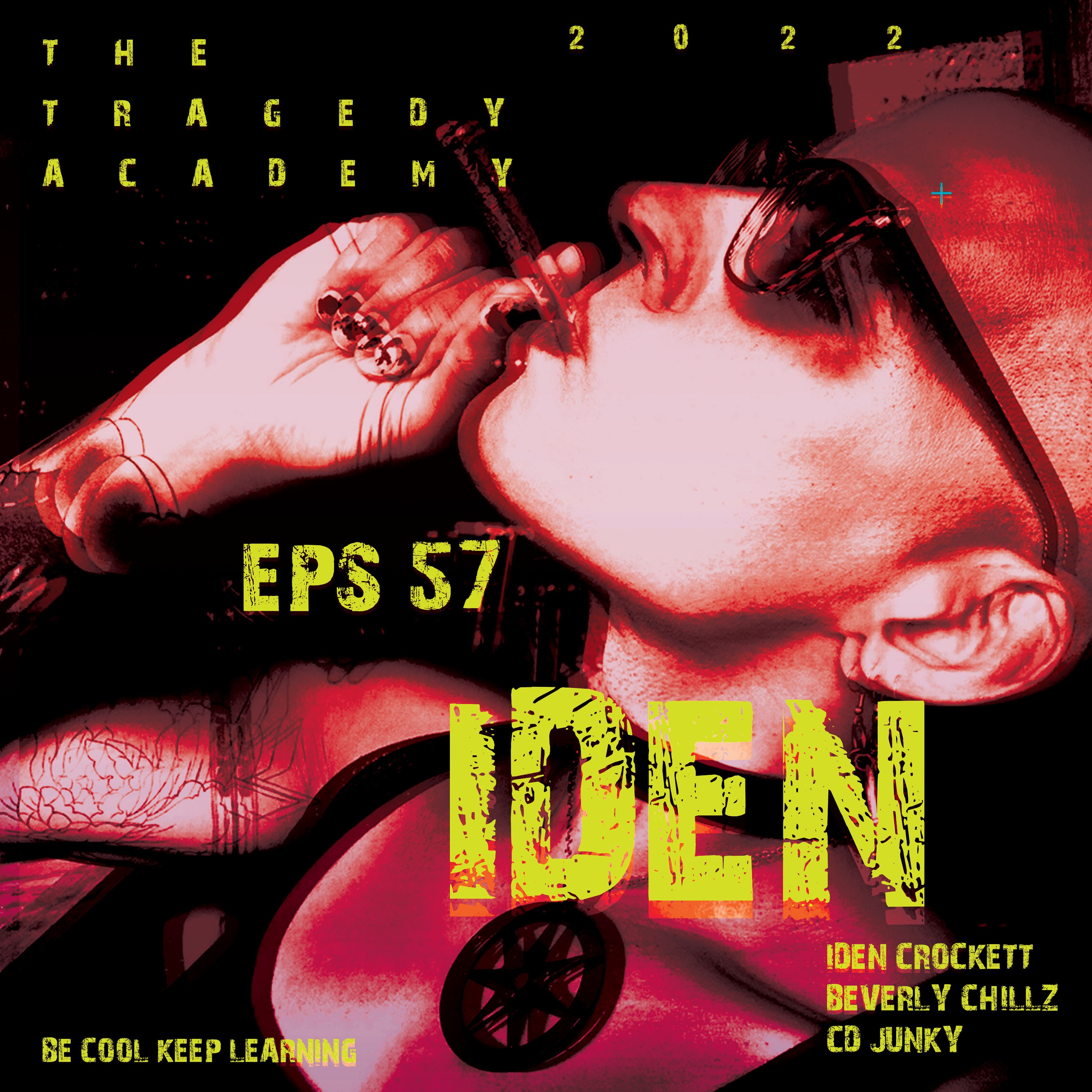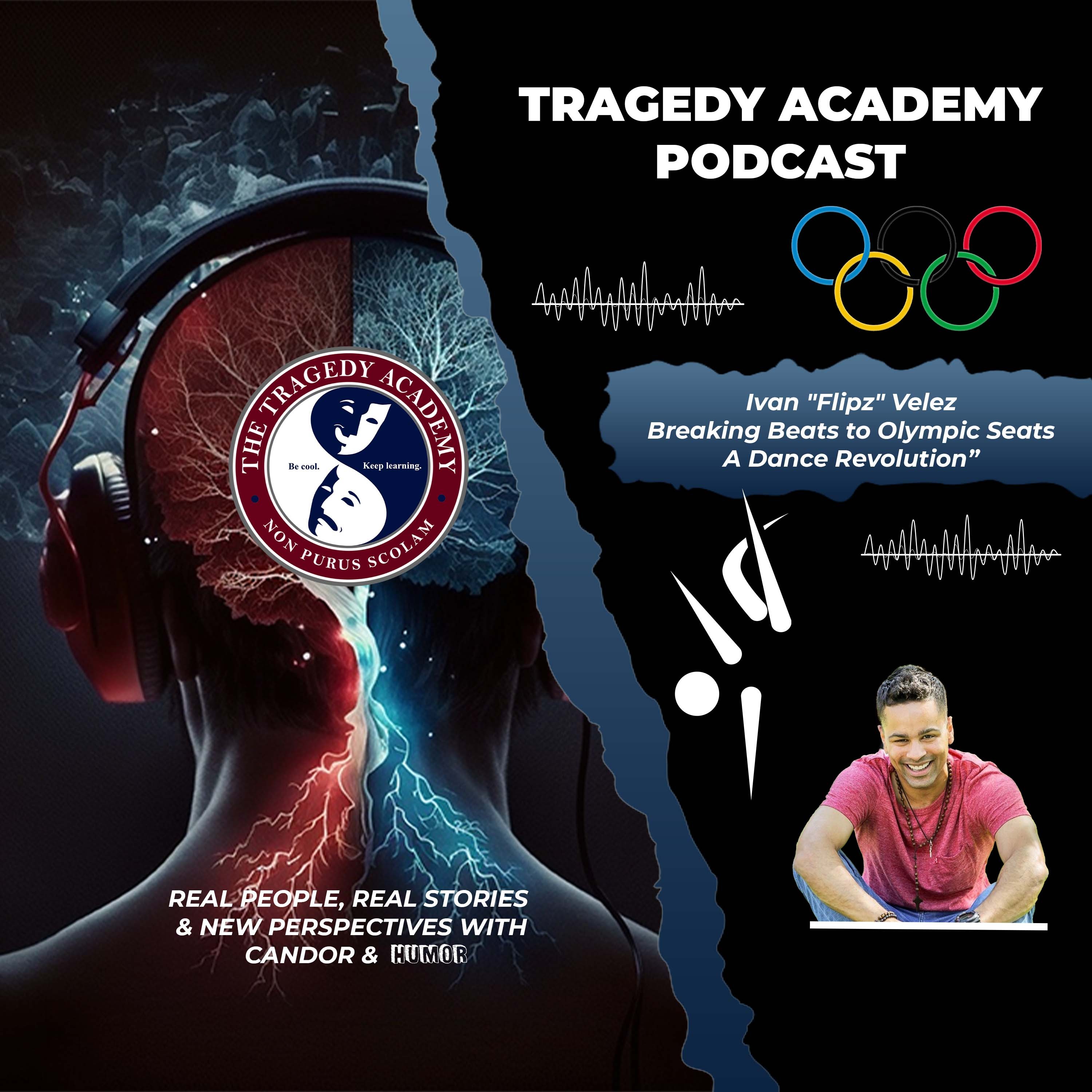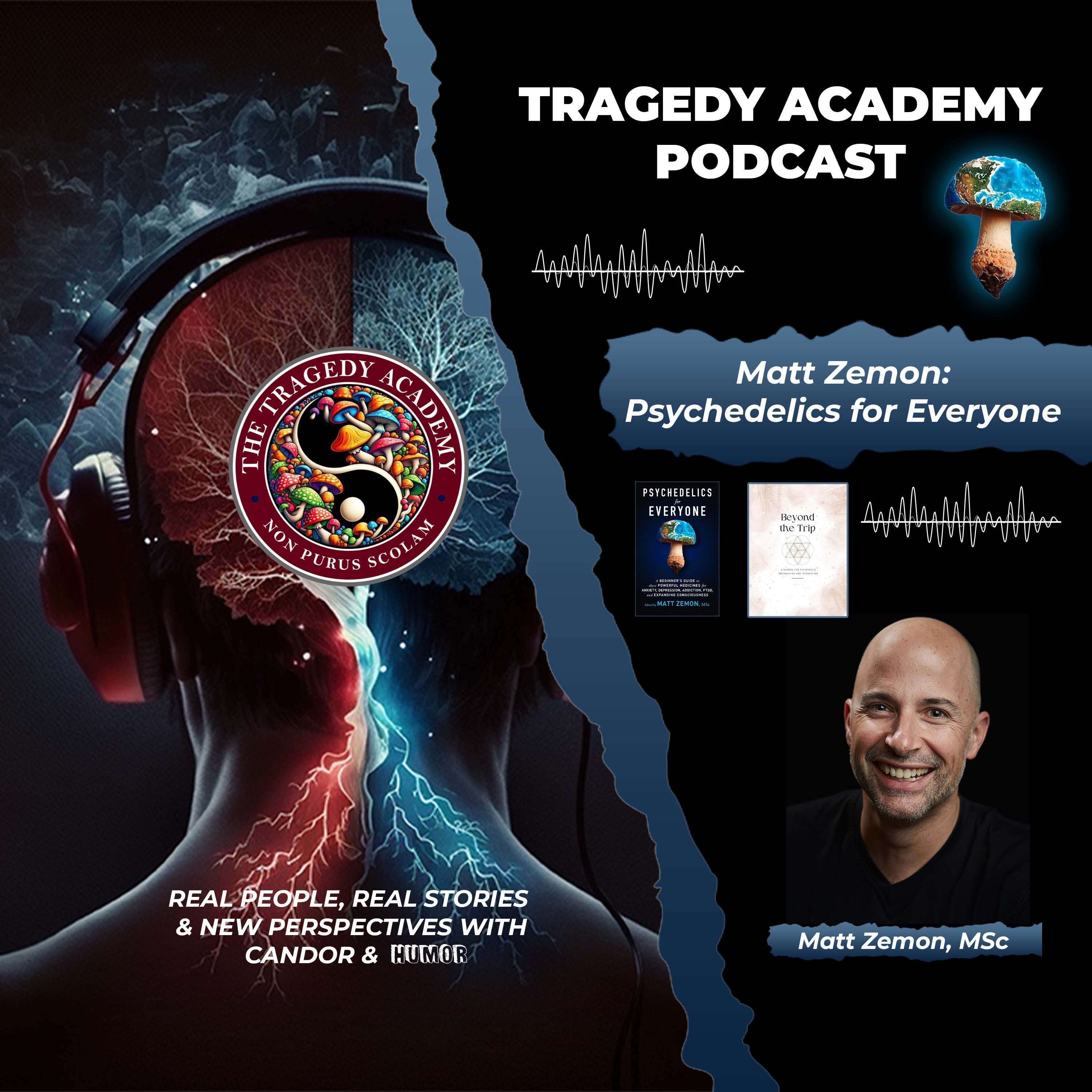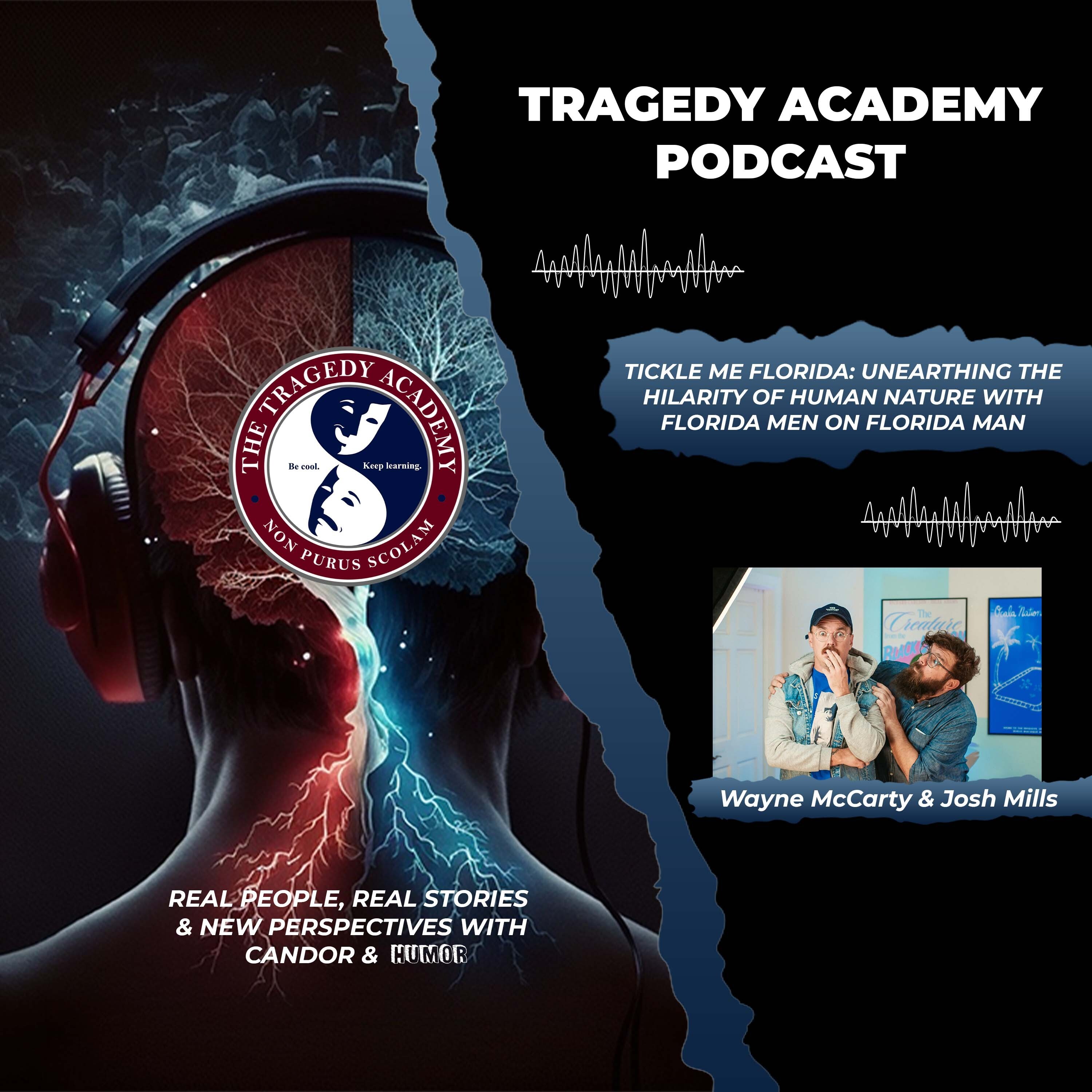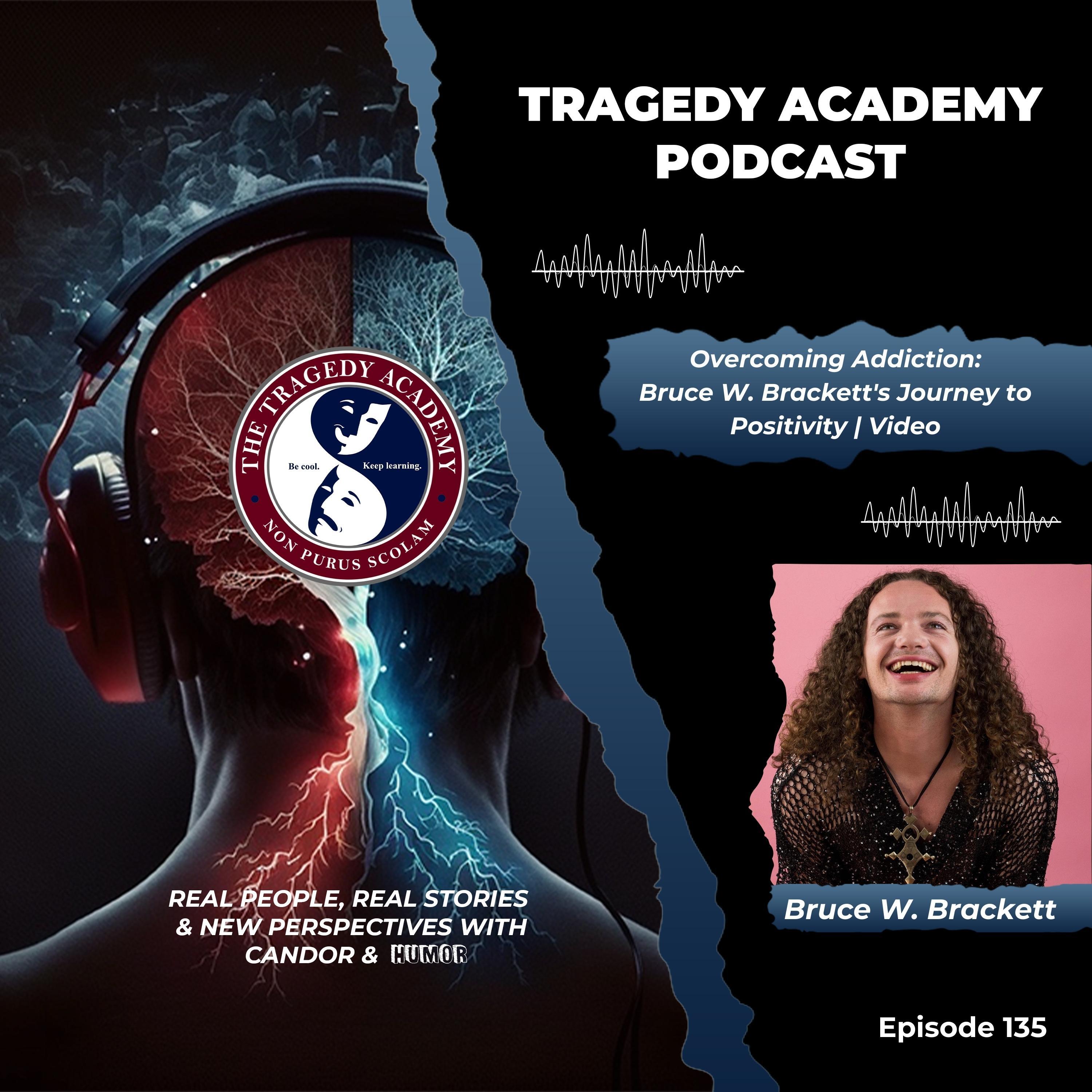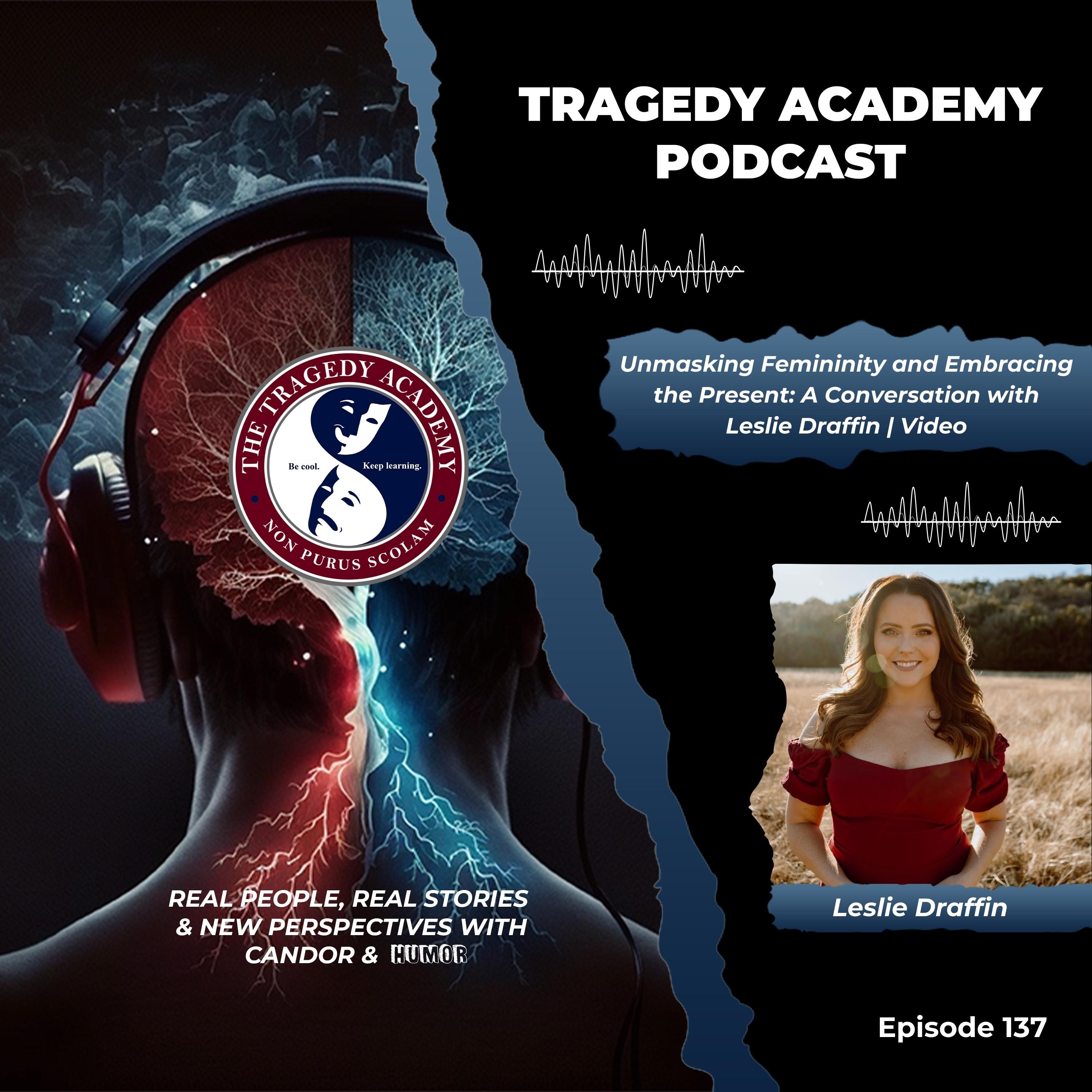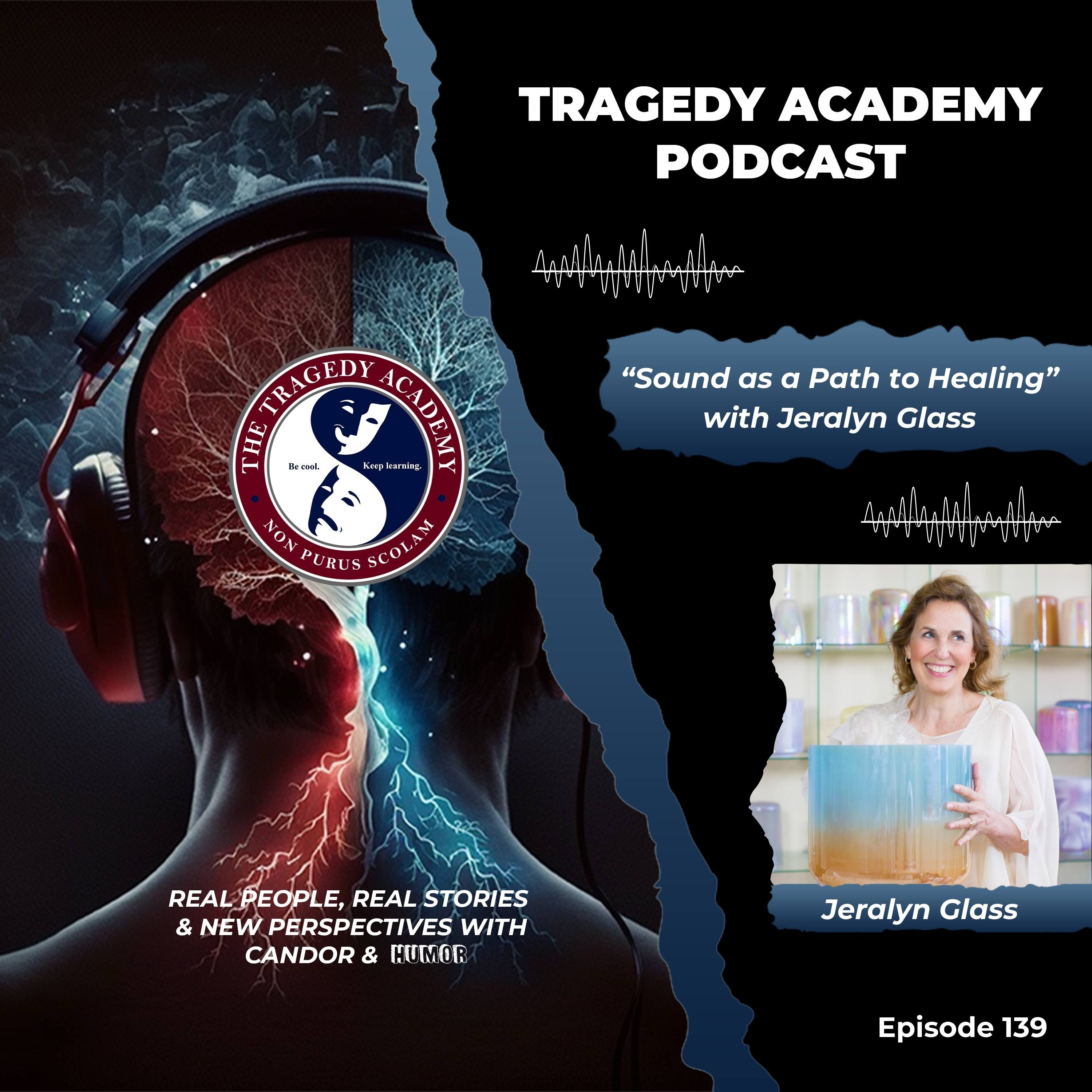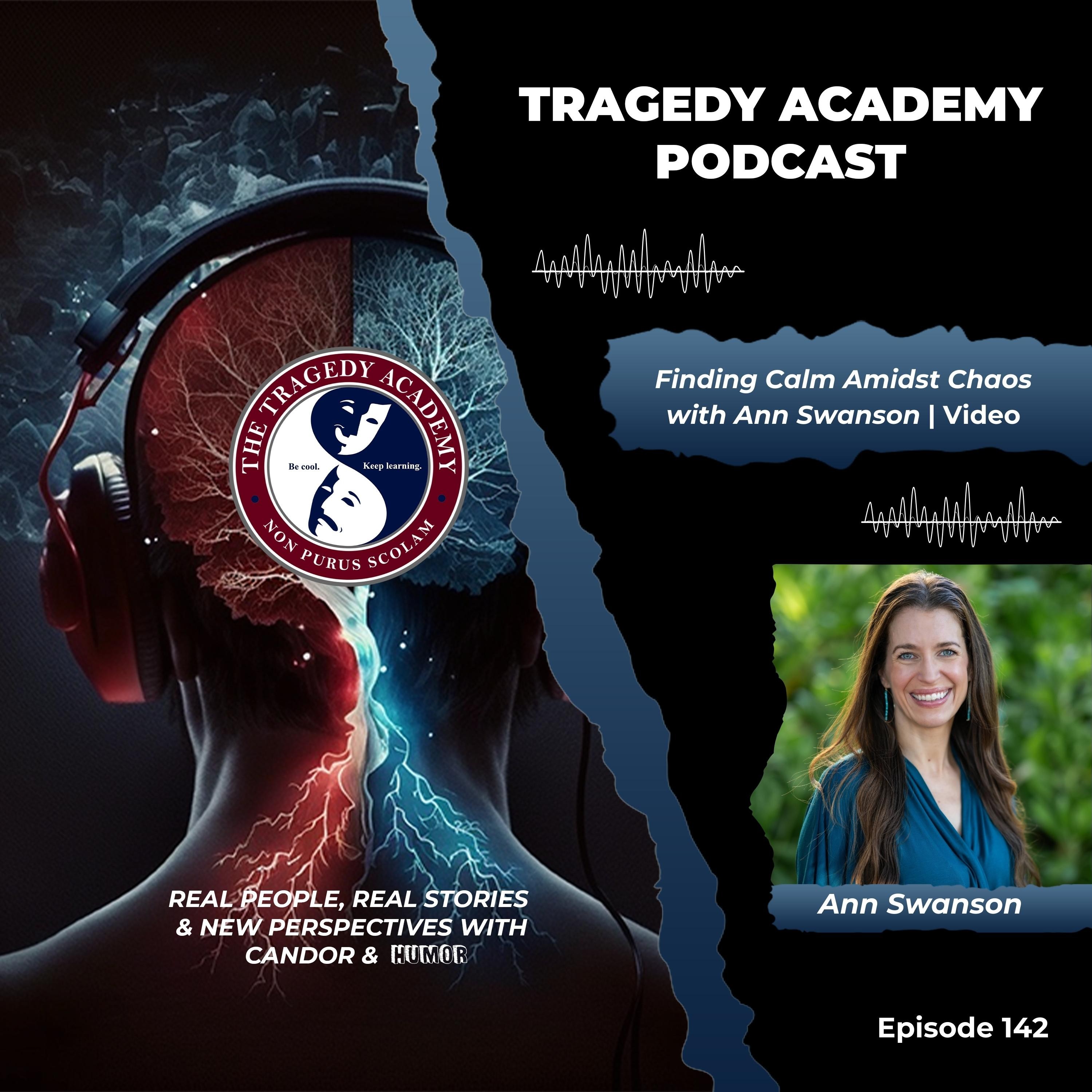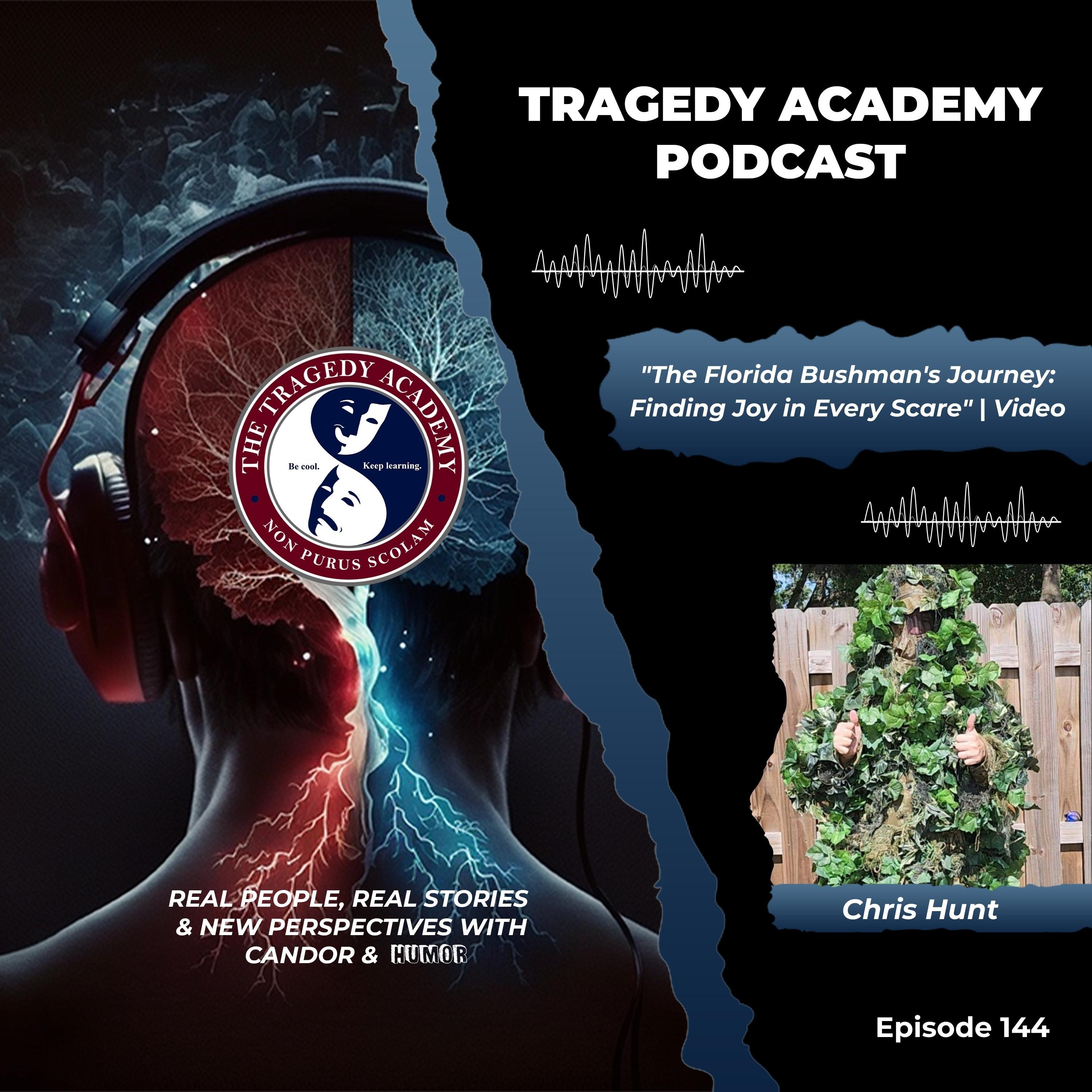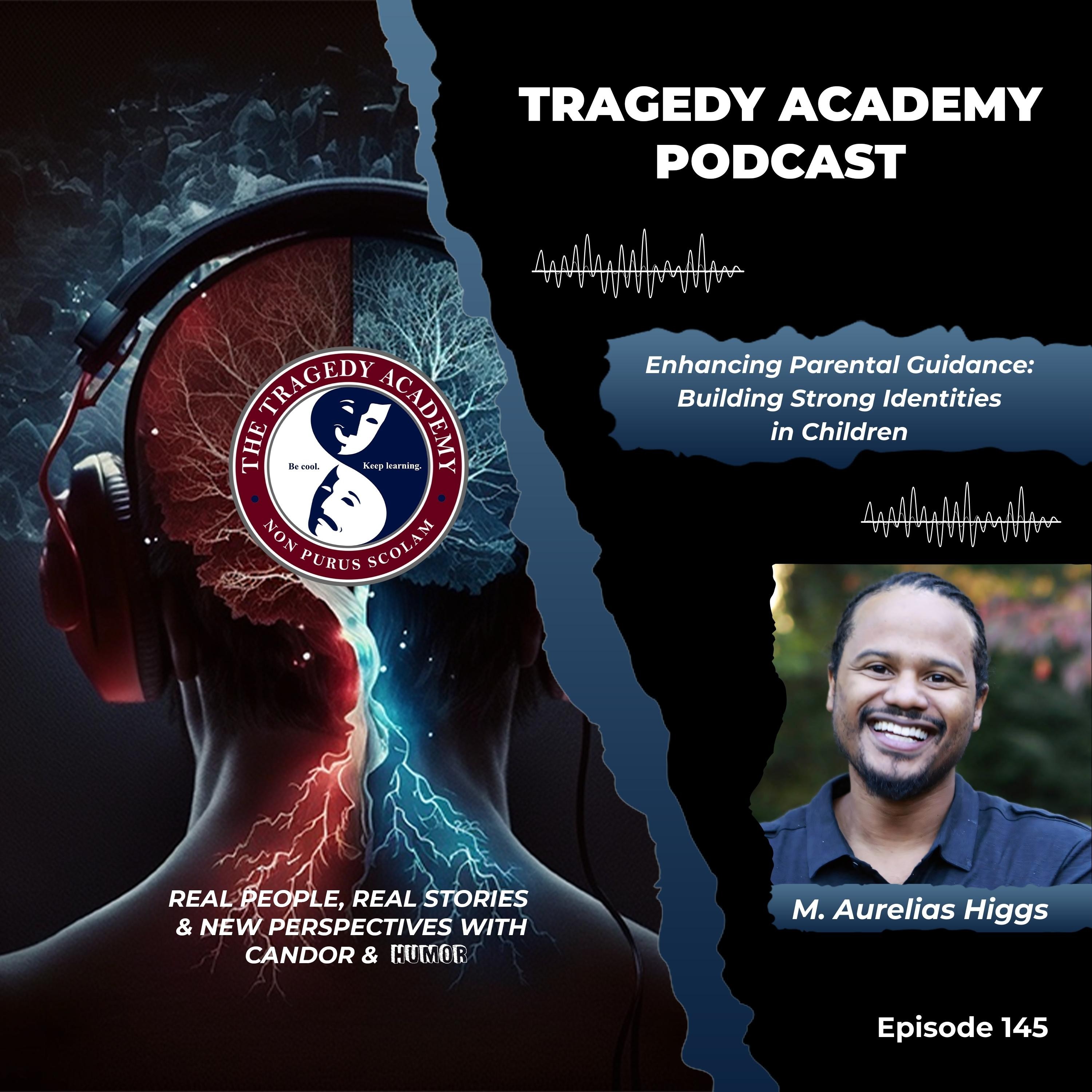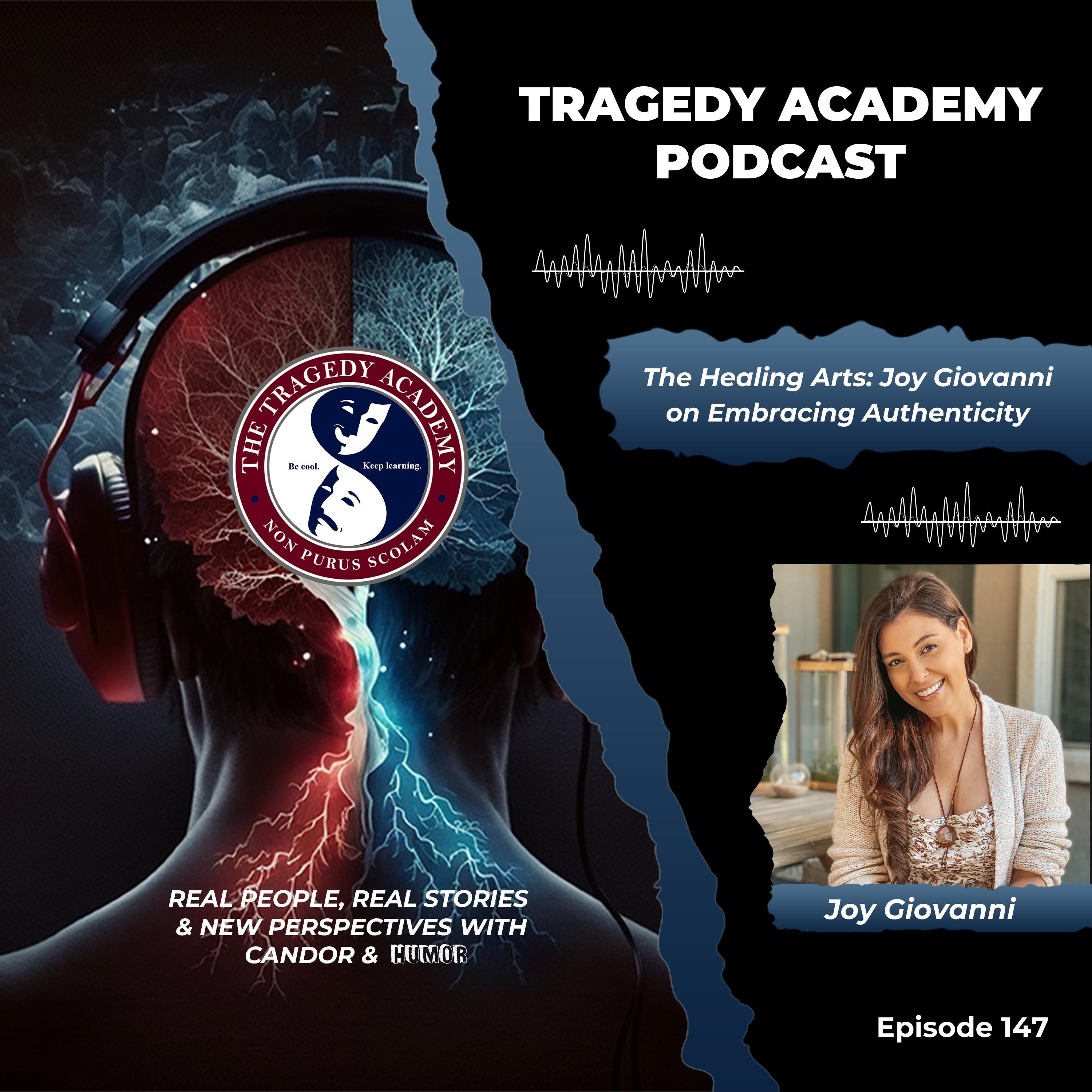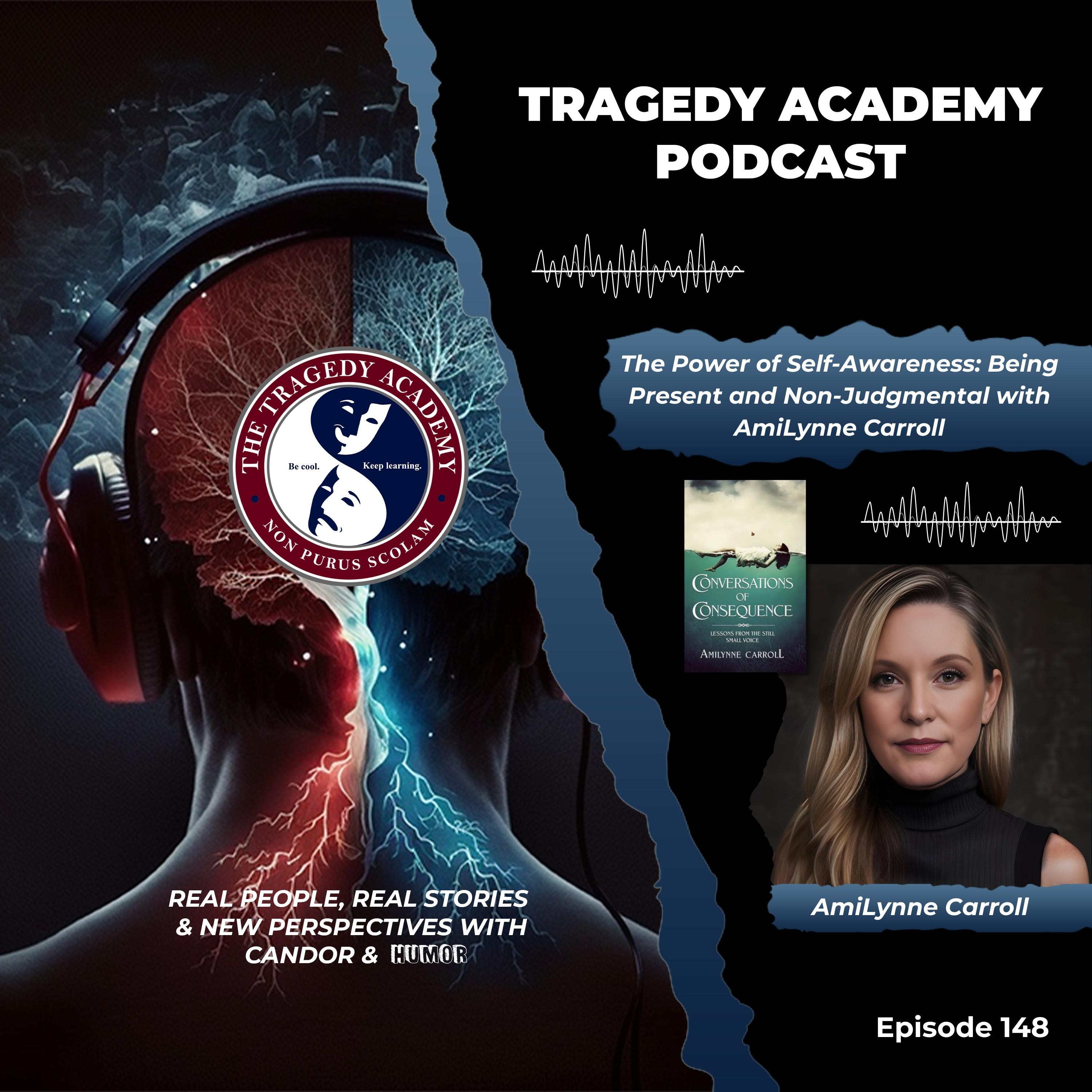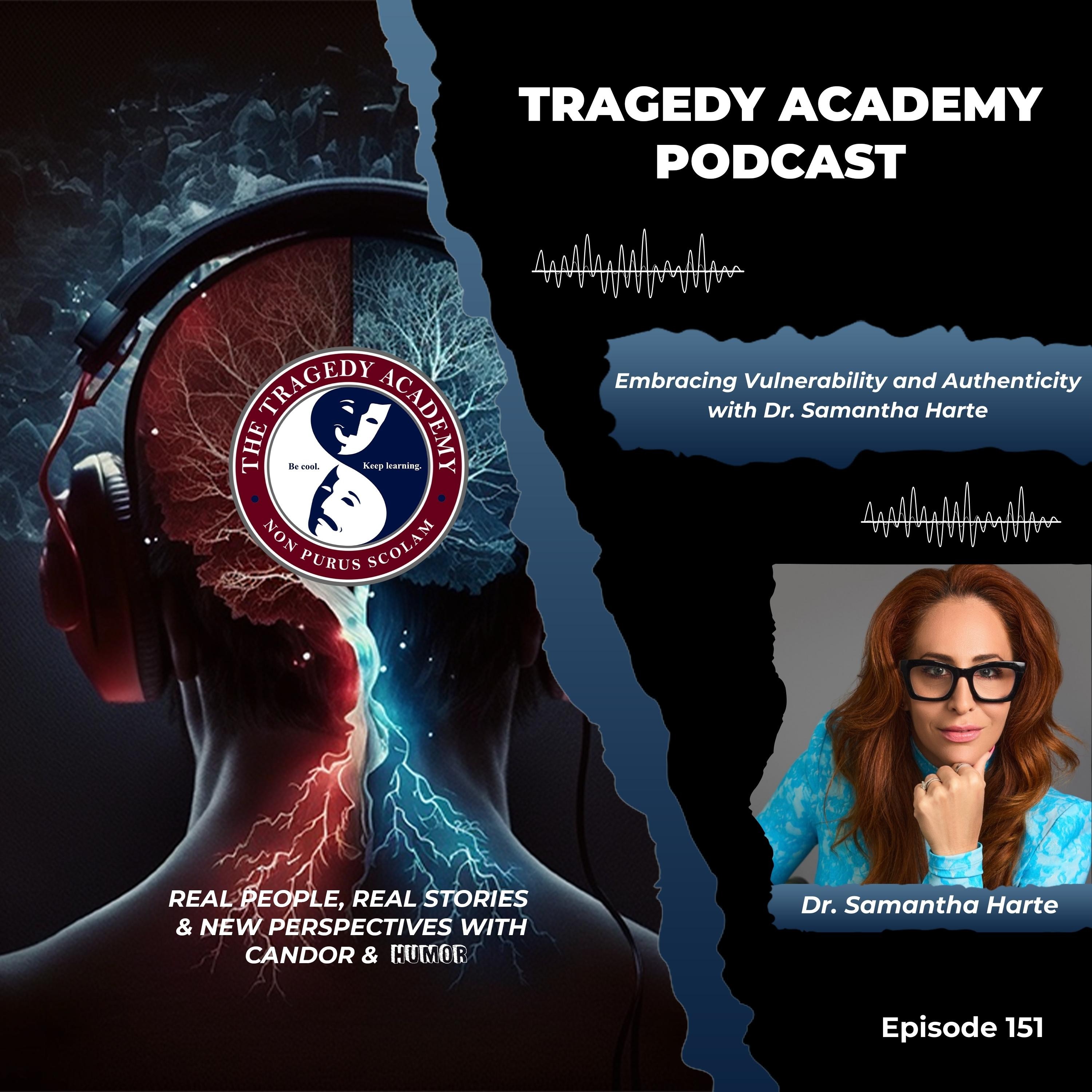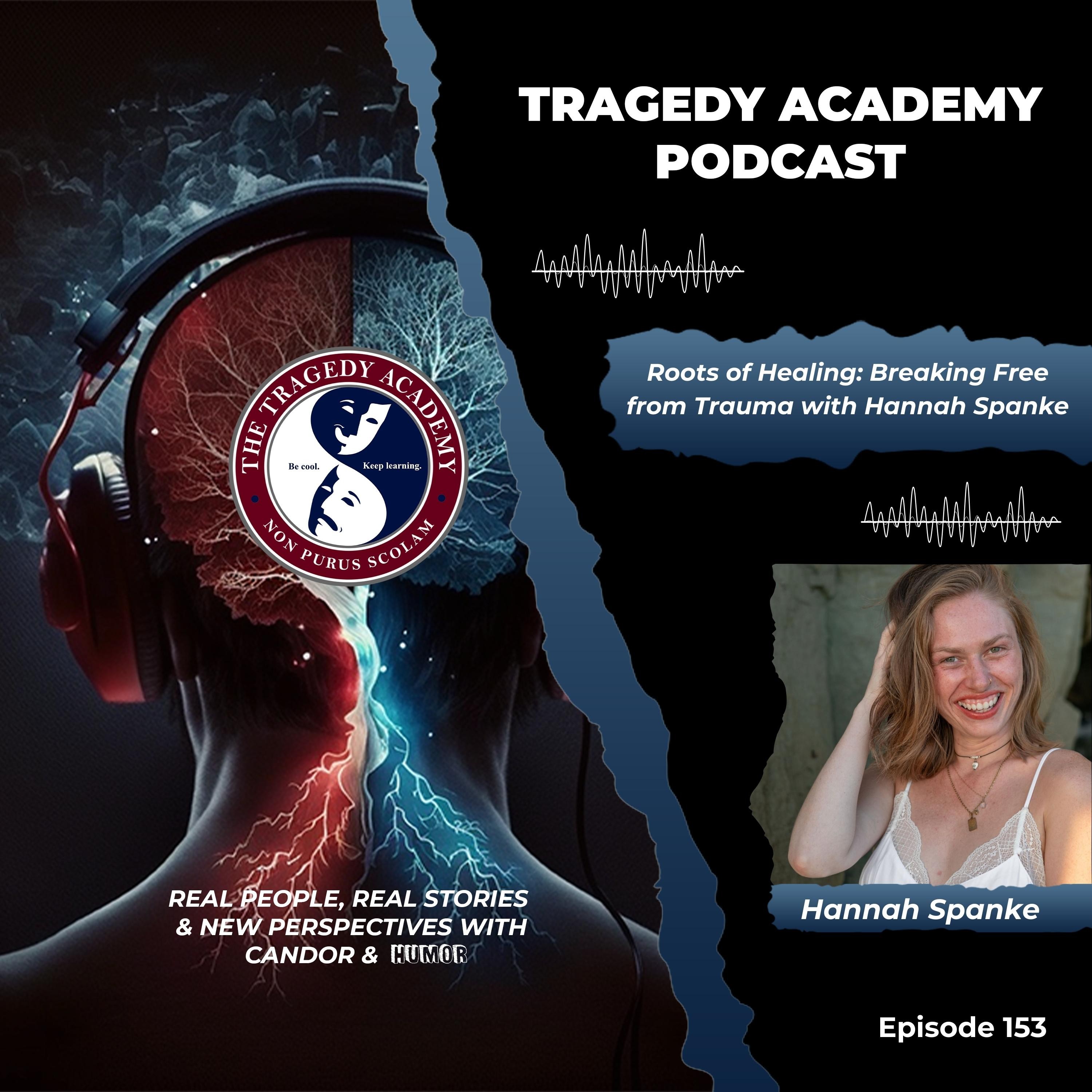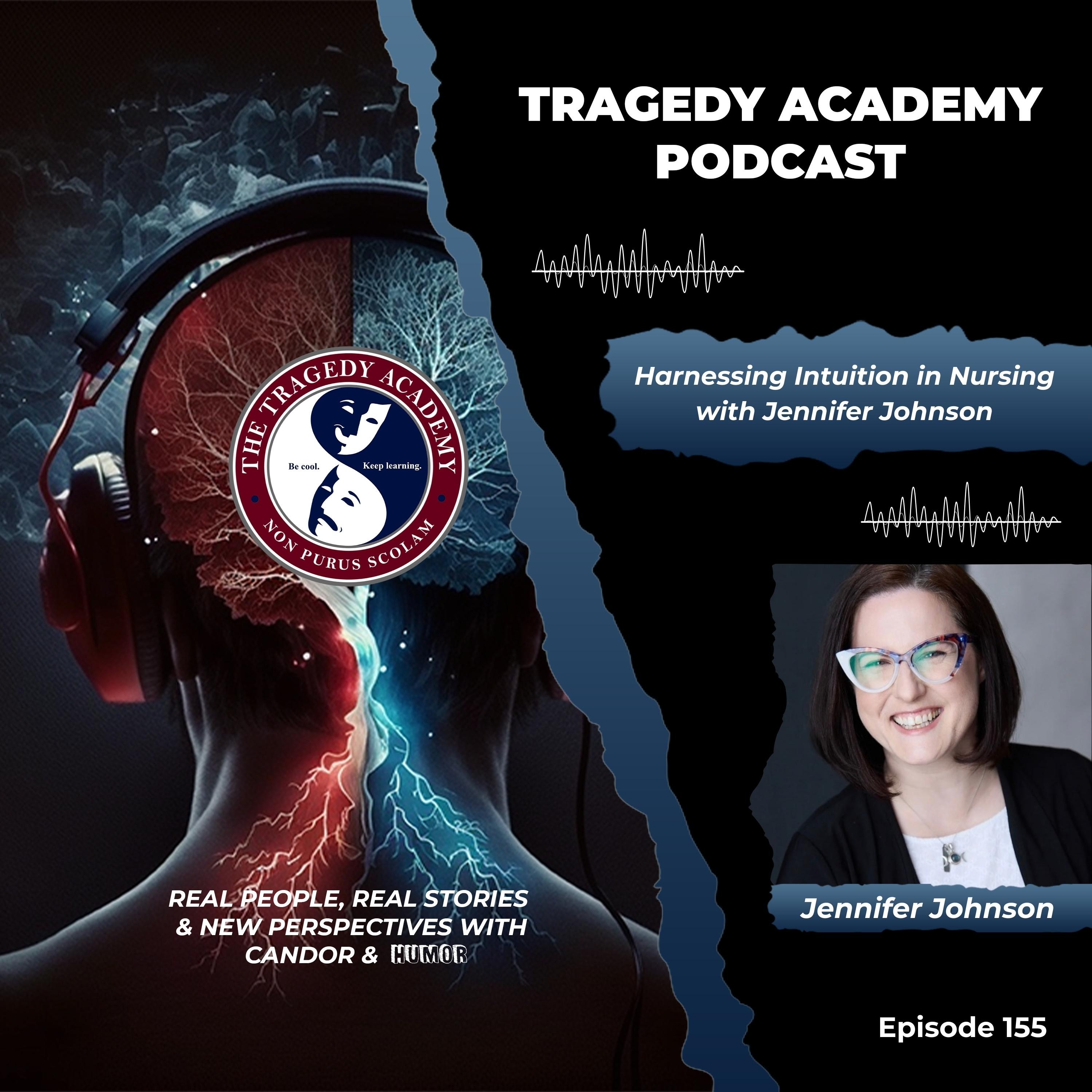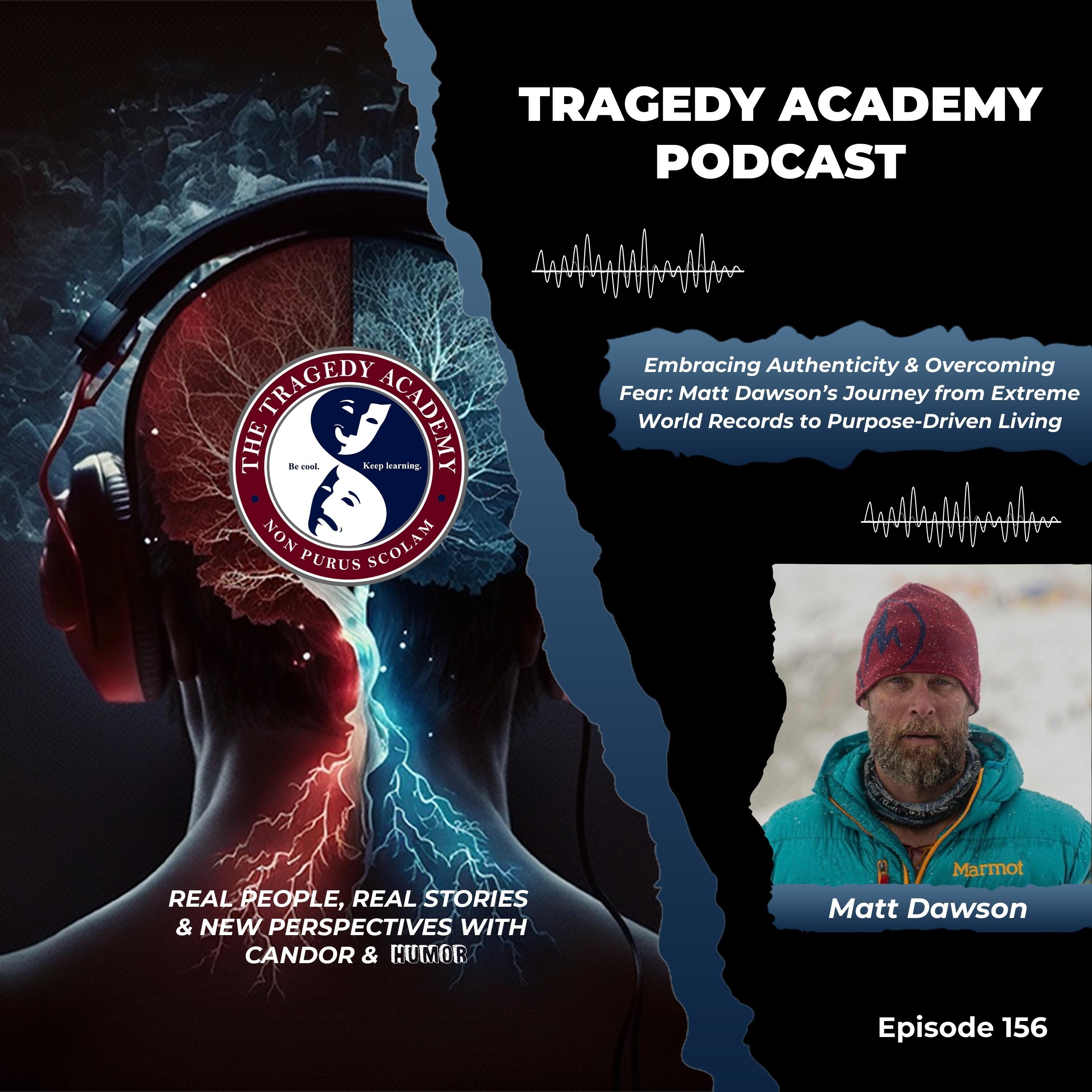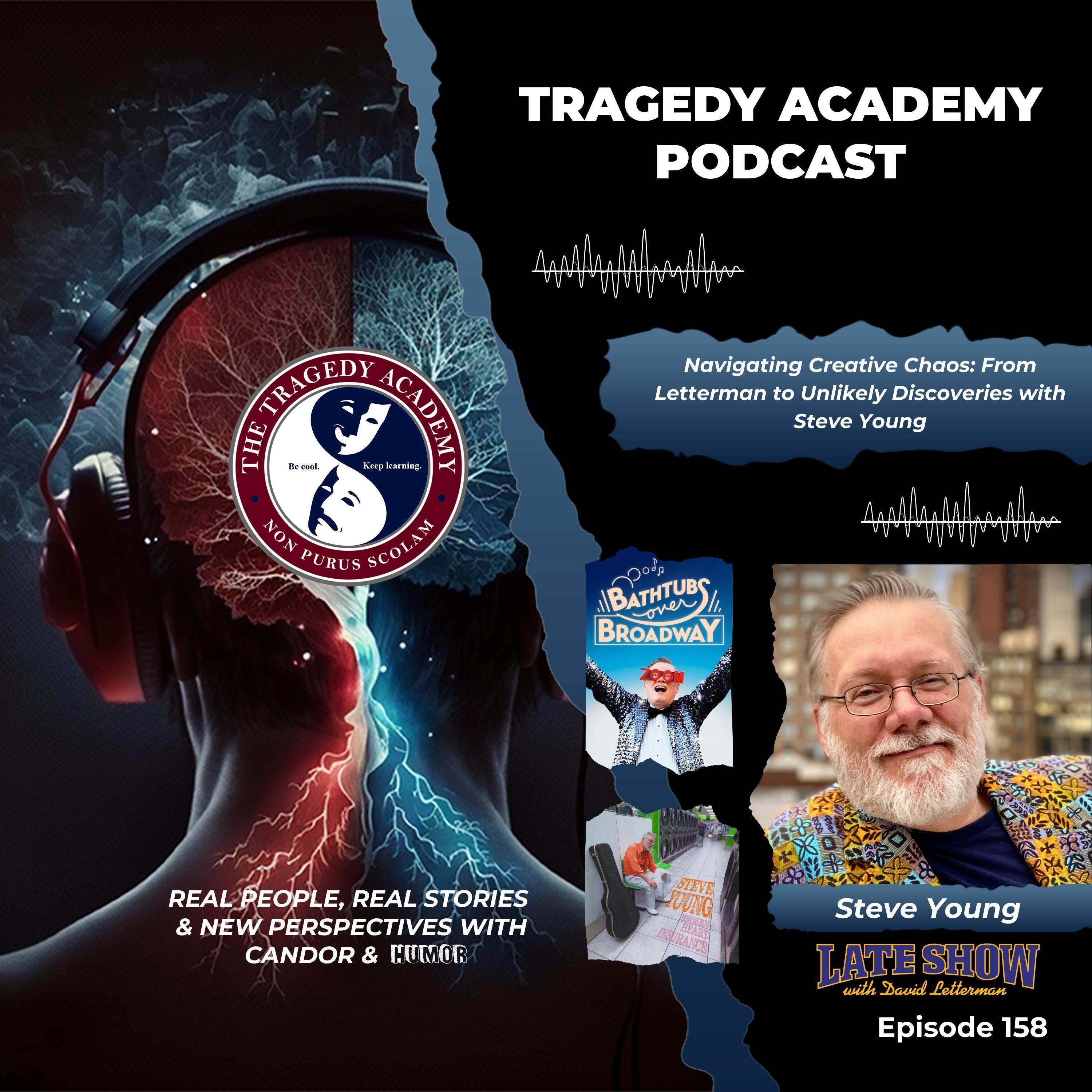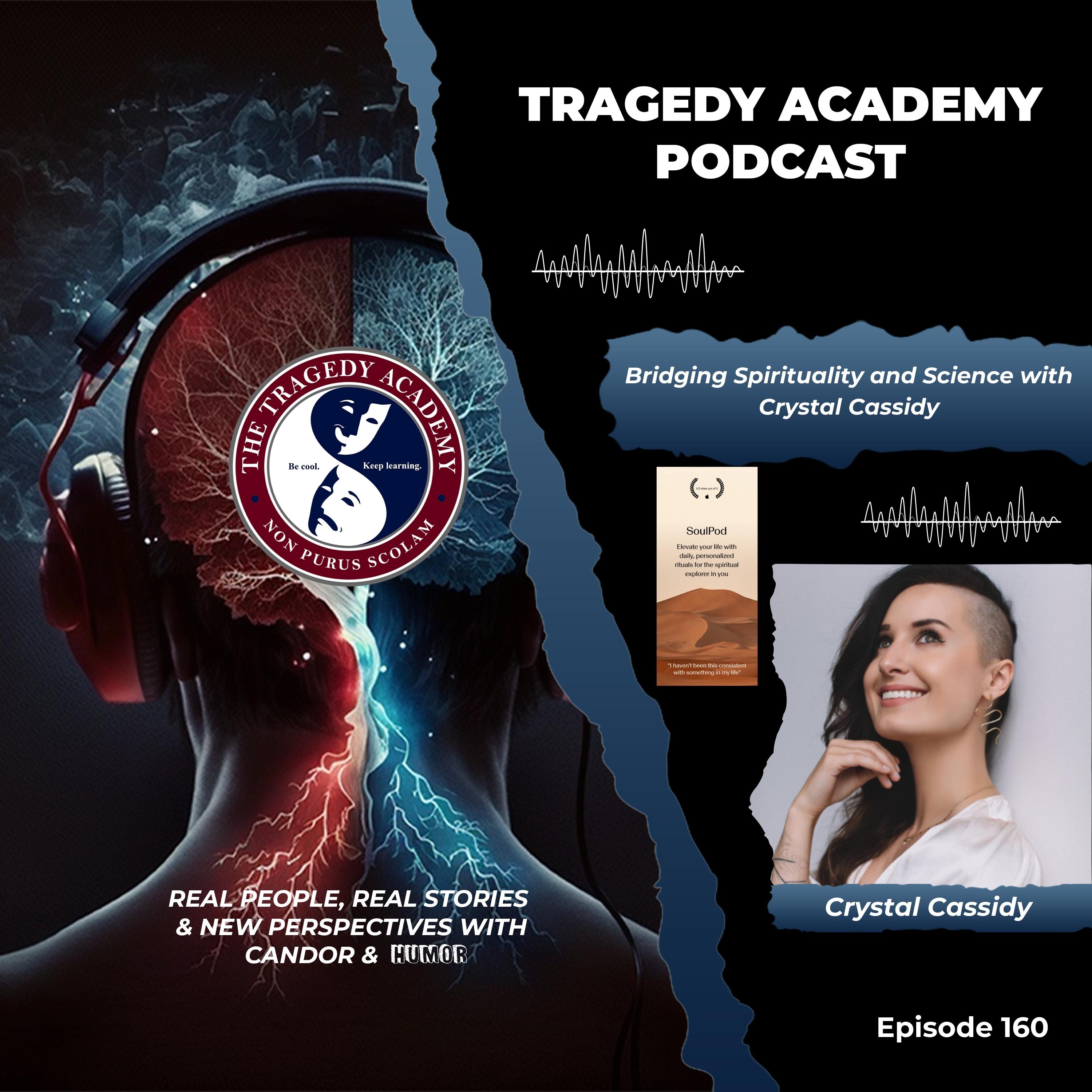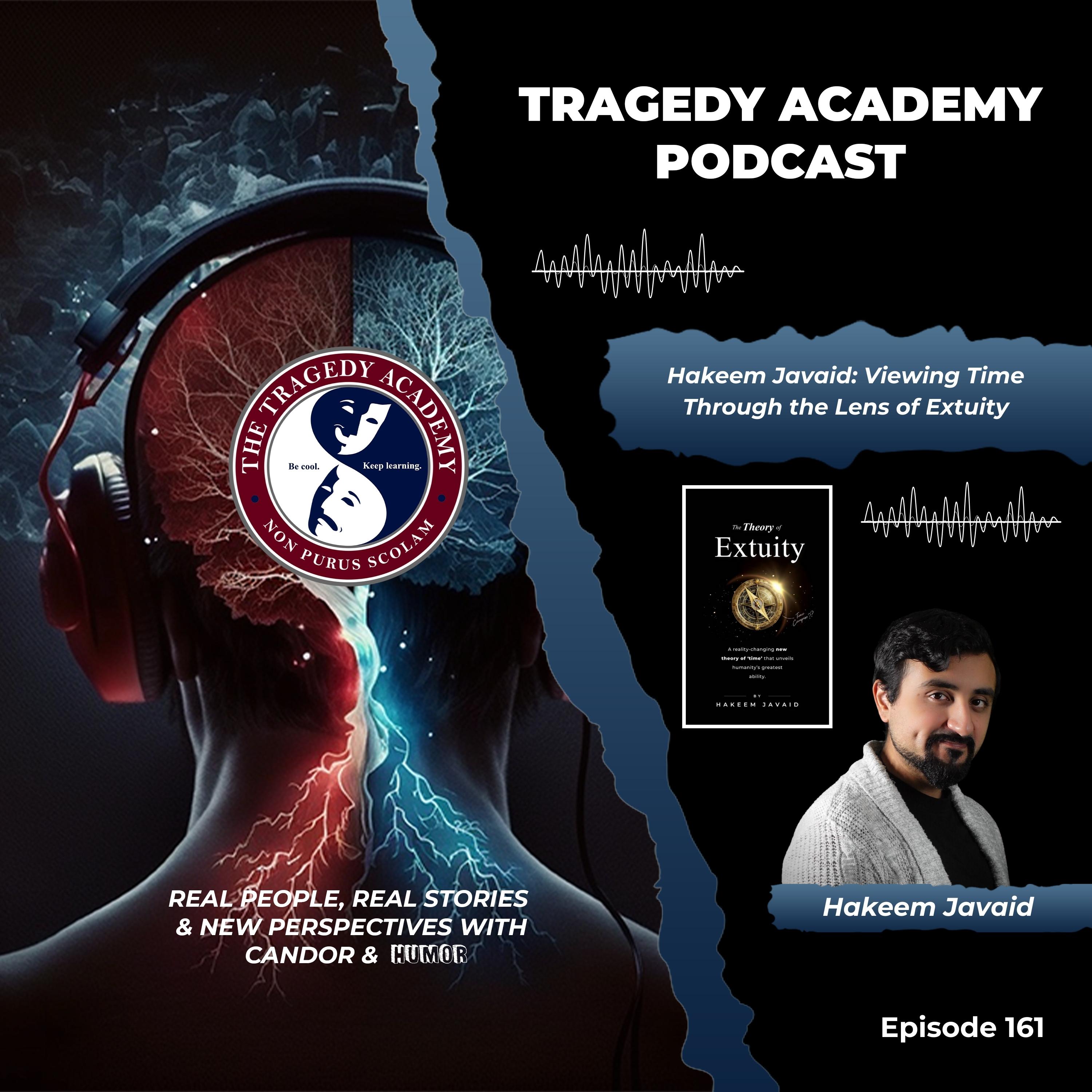Embracing Vulnerability: A Journey to Self-Love with Furkhan Dandia | Video
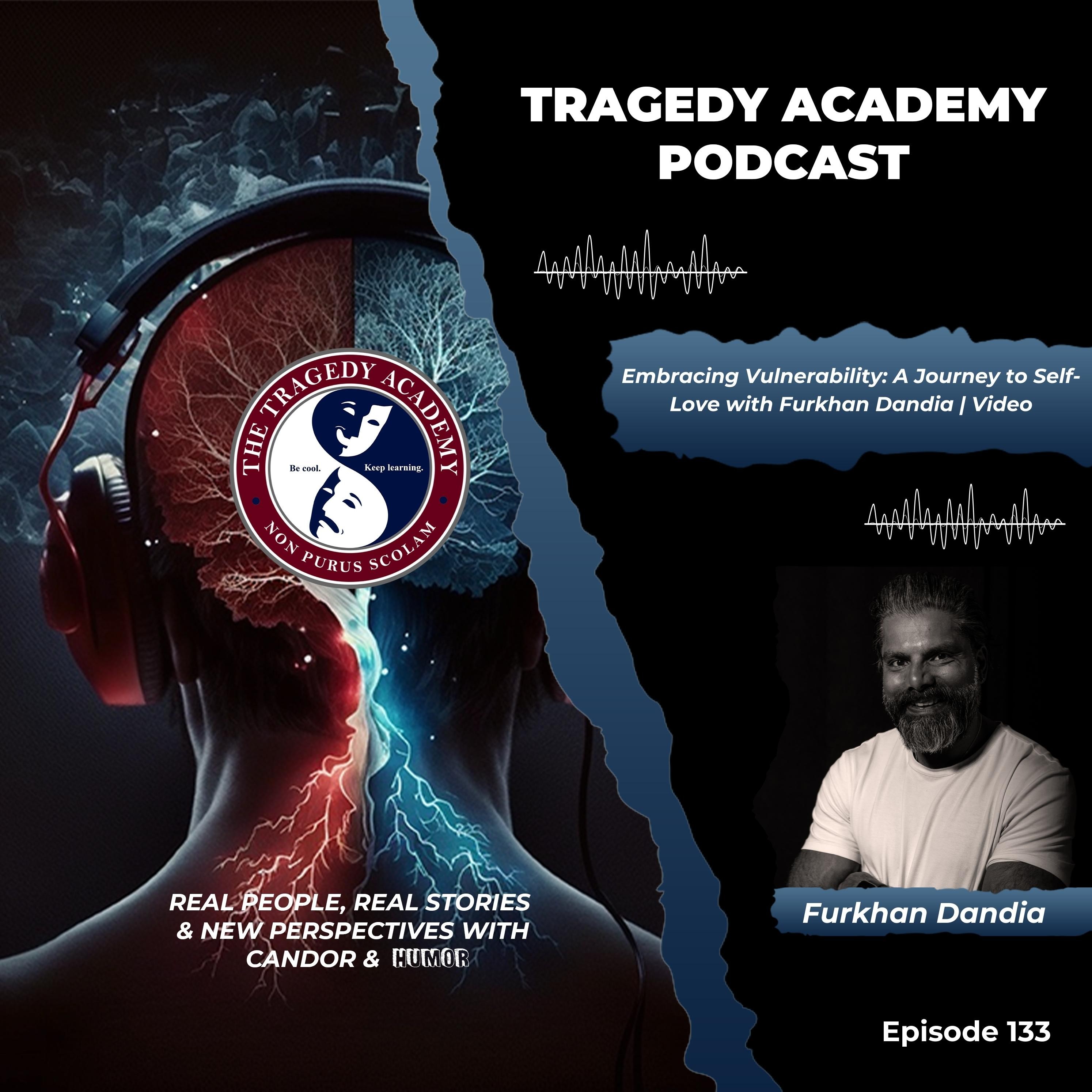
In this deeply reflective episode of The Tragedy Academy Podcast, Jay speaks with Furkhan Dandia, exploring the transformative power of embracing vulnerability, understanding masculinity in the modern world, and the path to self-love. 🎙️
In a world where the narrative around masculinity often feels rigid and unforgiving, Furkhan Dandia offers a refreshing perspective that challenges these conventions. His story concerns courage, introspection, and the relentless pursuit of authenticity. Through his journey from an engineer to a therapist and mental health advocate, Furkhan underscores the importance of therapy, self-exploration, and embracing one's vulnerabilities as avenues for profound personal growth and fulfillment. Join us as Furkhan shares his insights on the societal pressures men face, the significance of therapy in his transformation, and how he's now helping others navigate their paths to healing and self-acceptance. Dive deep into a conversation that not only enlightens but also provides solace and encouragement for anyone struggling to find their place in the tapestry of modern masculinity.
Key Takeaways:
💡 [00:03:24] Furkhan discusses his transition from an engineer to pursuing a Master's in Psychology, motivated by his quest for meaning and a desire to leave a legacy beyond professional success.
🌱 [00:04:54] The significance of therapy in Furkhan's life, highlighting how it helped him address and overcome shame, leading to improved relationships and self-awareness.
🤝 [00:06:14] As Furkhan opens up about his struggles, the power of vulnerability inspires similar openness in others and fosters a sense of brotherhood and support among men.
📘 [00:02:29] Furkhan's role as an author and podcaster, through which he advocates for men's mental health and encourages open dialogues on traditionally taboo subjects.
👨👦 [00:02:38] Being a father is a pivotal aspect of Furkhan's identity and growth, emphasizing the impact of parenting on his journey towards self-improvement and mindfulness.
Guest Bio:
Furkhan Dandia is a compelling figure whose life story offers valuable lessons on resilience, transformation, and the pursuit of authenticity. An engineer turned therapist, author, and podcaster, Furkhan's personal experiences with adversity, divorce, and the search for purpose have shaped him into a passionate advocate for mental health, especially among men. His work, whether through his podcast "EZ Conversations" or his book "Pursuit Of Self-Love," focuses on empowering individuals to confront their vulnerabilities, embrace their journey, and ultimately find self-love and fulfillment. Furkhan's dedication to making a difference in people's lives and his unique insight into the challenges of navigating modern masculinity make him an inspiring figure for all.
Conclusion:
📣 Join us in exploring the depths of the human spirit on The Tragedy Academy Podcast. Subscribe now, and don't miss an episode filled with stories of triumph over adversity. Share this episode with friends who might find solace in Furkhan's journey and leave us a review to help spread the message. Together, let's continue to grow the tree of knowledge and embrace the philosophy that life's challenges are what shape us. Be cool and keep learning. 🌟
🌐 Discover more about Furkhan Dandia and his transformative work by visiting his website, following him on social media, and tuning into his podcast, EZ Conversations. Dive into his book, "Pursuit Of Self-Love," for uplifting messages and reflections that inspire self-acceptance and growth. Support Furkhan in his mission to foster open conversations about men's mental health and vulnerability. Let's champion the cause of understanding and healing together. 💪
Thank you for joining us on this profound journey with Furkhan Dandia on The Tragedy Academy Podcast. Furkhan's story is a testament to the strength of vulnerability and the beauty of human evolution through self-discovery. Tune in next week for another inspiring episode that promises to enlighten, entertain, and encourage you to be the best version of yourself. Remember, every story of adversity carries the seeds of growth and understanding. Be cool and keep learning. 📚
🚀 Welcome to The Tragedy Academy Podcast 🚀
Dive deep into honest, unfiltered conversations about life and the silver linings within our daily challenges. We explore subjects from philosophy to comedy, ensuring every episode gives you insight and a smile.
📲 Connect with Us! Explore more about The Tragedy Academy: The Tragedy Academy Website
🌟 Support and Grow With Us 🌟
🎧 Podcasting Made Easy: Build your stunning podcast website with PodPage. Take your recording to the next level with Riverside.fm.
👕 Get the Gear Loved Jay's t-shirt from the latest episode? Grab yours at INTO THE AM.
📘 Expand Your Mind Dive into our recommended reads at our Bookshop.
✅ Stay Updated – Subscribe! Subscribe to our YouTube Channel and never miss an episode.
📱 Follow Us on Social Media
- Instagram: @thetragedyacademypodcast
- Facebook: The Tragedy Academy Podcast
- Twitter: @Tragedy_Academy
- TikTok: @thetragedyacademy
💖 Support The Tragedy Academy. Your support helps us keep bringing meaningful content. Consider donating through PayPal or BuyMeACoffee.
The Tragedy Academy is a show created to bridge societal divides in a judgment-free zone using candor and humor.
Be cool. Keep Learning.
[00:00:25] Furkhan Dandia: Yeah. Yeah. Yeah.
[00:00:27] Jay: You know, you start to see it differently, but I did listen to your last show, Masculinity in the Modern World with Dr. Steven Polter, and I gotta tell you, I felt like I was listening to Paul Harvey and David Attenborough have a conversation. The voices were so silky smooth that I didn't even get to move beyond just sitting there listening to them. How are you doing today?
[00:00:54] Furkhan Dandia: I'm doing great. Thank you. How about you?
[00:00:57] Jay: Living the dream, man. That was a great [00:01:00] conversation. That's why I wanted to tell you guys had two of the most soothing voices. I was like, this is just amazing. And he does have a little bit of a Paul Harvey in
[00:01:08] Furkhan Dandia: Yeah, he does. Yeah, he's the same person. I think I've had over. I've released close to 160 episodes, and I haven't met many guests in person. I've probably met a dozen, I would say. And yeah, so I've been fortunate enough to have dinner with Stephen. He's just the Same guy in person, too.
[00:01:30] Furkhan Dandia: So a lot of the times you meet people in person, you're like, oh, okay. Different personality. And you have a personality for who you're going to be as a guest, and then you have a different personality. But with him,
[00:01:44] Jay: The logo is the masks. We're very aware on this show what you're talking about. They tend to be two different people. I said the other day, talk to AT& T and then your mom, check your voice. Those are
[00:01:55] Furkhan Dandia: yeah.
[00:01:56] Jay: Like those two, they have distinctly different [00:02:00] personalities. They act differently, walk differently, smile differently, and do all these things differently, and you have to remember them both.
[00:02:06] Furkhan Dandia: Yeah. So he talks a lot about the brotherhood, so I'm, glad, I'm glad I'm part of it.
[00:02:13] Jay: I think it was amazing, and you guys are hearing Ferk Kondandia, he is an author, mental health advocate, and therapist, he wrote the book Pursuit of Self Love, also a podcast host of Easy Conversations, it's all about the men,
[00:02:29] Jay: huh?
[00:02:29] Furkhan Dandia: That's the hope. Yeah,
[00:02:32] Jay: why don't you take a moment, tell us about yourself, and we'll kinda go
[00:02:38] Furkhan Dandia: Yeah, you've touched on a lot of the things. One of the other things I didn't have in there is something I'm very proud of: being a father. That's been a huge opportunity and part of my growth and how I can be better, not only for myself but for my [00:03:00] son. And that's a huge driver for me.
[00:03:04] Furkhan Dandia: how did I get here? I'm an engineer by background. I worked in corporate or still work in corporate, but halfway through my career, About 10 years ago, when my son was born, I really started questioning the meaning of life, and little did I know that was part of my spiritual growth.
[00:03:24] Furkhan Dandia: we all go through it at different times. There's really no set prescriptive way of getting there. So I started questioning, okay, what am I doing with my life here? What's the meaning of it all here? What does it mean to be a father? What kind of legacy do I want to leave behind? And started questioning all of that, and went through a divorce, and started seeking therapy. I started to really get into that understanding of why men struggle, why is this conversation around, struggling in silence, why is this, [00:04:00] there.
[00:04:00] Furkhan Dandia: this sense of feeling isolated because of the shame, and the shame I felt when I
[00:04:04] Furkhan Dandia: was
[00:04:05] Jay: shame as a bitch. That's something they don't mention that is issued to you. It doesn't come in, as, as part of the package when you're born. Shame is something they layer on you over time to keep you from standing up. It's like a weighted blanket carrying on your shoulders.
[00:04:22] Jay: You can let it go, but it's still there the whole time.
[00:04:25] Furkhan Dandia: Yeah. So there's a lot of it, as you can appreciate, and carrying that around. For me, there were also cultural pressures from family, and I started to understand, okay, this is what's going on. So that therapy allowed me to heal a lot of the past and perhaps look at the shame differently and understand, okay, I can either choose to let it control me or I can just become more aware of it and do something with it.
[00:04:54] Furkhan Dandia: And that allowed me to look at my relationships differently, have a [00:05:00] different level of engagement with the people in my life, conversations changed as well. And I started to open up about my own adversity at that time, the divorce or everything happening around me, just being more open about it. And I realized after the fact that shame thrives on secrecy, right? The more we hide it, the more we fall into that.
[00:05:28] Furkhan Dandia: And subconsciously,
[00:05:31] Jay: Self-loathing. We loathe ourselves for others' non-thoughts. They haven't even created the cage that we have around ourselves. We're not even on their radar, but we have their entire feeling of what they see when they see us. That construct in our mind is just as strong as if they were standing and screaming at you face to face. We just don't realize it that one's fake and the other is
[00:05:53] Furkhan Dandia: yeah. And that's, I'll get into that a little bit too. So thank you for. Putting that there [00:06:00], and I was doing it subconsciously, but I started really opening up to many of the men that were close to me in my life at the time and just being open. And then I started getting the same openness from other guys, right?
[00:06:14] Furkhan Dandia: It's, oh, thanks for being open about your struggles. And so that kind of, yeah. It brought to me something where I was like, okay, what if this became a podcast, and I was toying with the idea, and then Obviously the pandemic happened, and there's really no excuse not to do it. I had all this time that I wanted to fill, and it got me through as well because I had jumped into another relationship after my divorce, and that was rocky because I hadn't healed myself, and I was going through depression with that and being able to talk to other men or just other people around things that we're all dealing with.
[00:06:54] Furkhan Dandia: Especially with the social isolation during the pandemic, it really got me through, and [00:07:00] the podcast was a great avenue for that. And then it's allowed me to grow even further. I was talking to like minded people, learning from them, and then utilizing some of those practical insights in my life. That helped. And then at the same time, during the pandemic, I decided to get a master's in psychology with the hopes of becoming a therapist because I was like, how can I be a voice for other men? How can I help them? And then, yeah, it's just one thing after the other kept adding up like starting a men's group with a friend.
[00:07:34] Furkhan Dandia: Yeah, exactly.
[00:07:35] Jay: It's not by accident. When we become our authentic selves, you hit your knees during the pandemic or during your divorce, and you planted a tree. A tree takes a long time to grow; it has to go over time. I think that the pandemic produced two different types of scenarios. Either you broke under the pressure, or you recognized who you really were and that the rest of it was just a wheel.
[00:07:59] Jay: at the end of [00:08:00] the day, if you were to take a look at what we do day in and day out and that societal. the fulfillment that we have to create each and every day. If that was a wheel on a bicycle with spokes, the pandemic was a stick right in the center of it, and everybody flew off. We all flew off the wheel, and we got to turn around and look at the fact that we were on one. And if you recognized you were on one, then You probably got your first step down a different path. You got to realize, okay, wait a minute. This is all being force-fed to me. I'm growing into a mold. Men suffer from this very much, just like women do. They get issued a tackle box of makeup at 13 and get called a princess.
[00:08:47] Jay: we get it; you better not come home crying because I'm gonna give you more lumps; you better go back. If you don't go back there and kick his ass, then I'm gonna be pissed at you. What does that do to a kid's brain? You mean to go against [00:09:00] my loving instincts to not hurt other people, and then when I do get hurt, go back and hurt them again, or I'm in trouble with the people that are supposed to provide me the most protection? We're screwed. We grow into these Frankenstein molds when in reality, we're supposed to be a complete human.
[00:09:15] Furkhan Dandia: Yeah.
[00:09:16] Jay: This is just my thoughts
[00:09:18] Furkhan Dandia: I agree with you. I think we are conditioned at an early age to want to take from others rather than just give and grow, right? And we fall into this scarcity mindset. It's like, how can I just take from others rather than looking at, no, Okay? They can have theirs, I can have mine, and together, we can have more.
[00:09:39] Furkhan Dandia: And that's in the conflicts we see in the world today. Why is there conflict in the world? Like, why are we killing each other? And you're seeing that inner conflict just being projected outward. And in those conflicts, it's just at a magnified level. But as you said, as children, we're learning that early.
[00:09:56] Furkhan Dandia: It's, oh, go take it out on the other child. Go [00:10:00] take it out on the other person. And then that just grows and manifests into something bigger. But yeah, to your point about synchronicity, that's exactly what it was like. I agree with you. People had fallen on either end of the spectrum with respect to the pandemic.
[00:10:19] Furkhan Dandia: You either realize that you have way more agency in your life, way more freedom, and you're not choosing it, and then for others, it crushed their reality, and, they just weren't able to recover from it, where it's oh, I had this false sense of, yeah,
[00:10:35] Jay: ego-driven.
[00:10:36] Furkhan Dandia: and we live in a society where we want The sense of control, which is basically a fallacy, and then when it gets questioned your whole
[00:10:45] Jay: So much Catch and win with a
[00:10:47] Furkhan Dandia: Yeah, exactly. And then your world crumbles.
[00:10:50] Jay: Just take working for you.
[00:10:51] Furkhan Dandia: and I think for me, it was, fortunately, the other side where I started to see so much more opportunity in the world [00:11:00] and so much more I can get back in, in terms of little things too. So then, yeah, just. In the men's groups and talking to other people, I felt like, okay, I was finally stepping into What my purpose was in this world and that's obviously going to evolve over time But right now I feel like I am where I need to be I've finished my program in psych and now I'm working part-time as a therapist and continuing a lot of the work that I've wanted to do for a while and it's just been a blessing
[00:11:36] Jay: I have a similar background to yours in that I did work in the tech and consulting industry for a while, after the military and growing up in a hee-haw town, that kind of thing. And what I figured out was that I'd gone through all these different roles, and I'd done some really cool shit in different types of career paths.[00:12:00]
[00:12:00] Jay: but at 0 percent of the time was I fulfilled, I was damn good, and then you get further and deeper into the corporate world where you get to see the strings that are pulled inside the machine that creates, the huge issues and ramifications across like an entire country or a town or whatever it is, and you start to realize that nobody has any capability of understanding what is happening outside of their box. And for me, I found myself in pain. In pain every day without understanding why. I'm like, I know I'm not doing what I'm supposed to do. What am I supposed to be doing? This sucks. I'm getting zero fulfillment out of this. Why is my life like this?
[00:12:47] Jay: And then, Now, further down the journey through those synchronicities, I've found that understanding is figuring out that you're a different human and all [00:13:00] those roles and all those roles are not yours. So anytime that you are living outside of your authentic self, you are creating symptoms of mental issues, right? Symptoms are mental issues, and for me, they're trapped. It's a cage around the mind. Of a societal constraint and a way to think and be and all of the symptoms of depression anxiety, whatever they mean, Are like tea kettle whistles coming out of that cage because it's not allowing itself to be full It's not allowing itself to be itself So I found myself constantly trying to supplement my pain with other things in order to You know maintain that job in the corporate world over and the wheel and the can we get more?
[00:13:48] Jay: Can we get bigger numbers, more numbers, and blah blah blah blah blah? Can we make our lie look bigger than their lie? You know, because nobody knows what's going on behind things, and I just said fuck it, I'm out. I was like, [00:14:00] I'm supposed to be doing something bigger, and I started podcasting. The show started, it's a show created to bridge societal divides in a judgment-free zone using candor and humor.
[00:14:09] Jay: Like you, I couldn't feel any better about where I am in life than now for two reasons. One, I'm doing what I love. Two, there's nowhere else to be. Once I understand that, then it doesn't matter where I am.
[00:14:22] Furkhan Dandia: Yeah. It's just being in the present moment. I know that sounds cliche It truly.
[00:14:29] Jay: Where else is there?
[00:14:30] Furkhan Dandia: right, and you were talking about Pain, and I think a lot of the pain, every part of the pain, is self-induced at times, right? Like I read gonna sound creepy, but I read, some dude at the yoga studio had a tattoo on his back that said, penis them.
[00:14:52] Jay throws it. Feel free to say it was a scroll by the door.
[00:14:56] Furkhan Dandia: the tattoo said pain is a messenger, and I was like, [00:15:00] Yeah, that is true, right? Yeah. And the suffering is! The choice, right? And we choose that.
[00:15:07] Furkhan Dandia: suffering,
[00:15:08] Jay: Mm.
[00:15:10] Furkhan Dandia: on the future and you have all this anxiety about things that may or may not happen, like we were talking about earlier.
[00:15:17] Furkhan Dandia: Or you're focused on the past, and in this depressive state, Oh, all these things have happened, and I should have done this. I should have done that. It's all suffering that we're choosing for ourselves, right? And it's all this attachment we have, as Buddha said, right? The source of all, I'm going to paraphrase here, but the source of all suffering is attachment.
[00:15:38] Furkhan Dandia: We just have an attachment to all of these things, and letting go in the present is what really matters. That's a battle that I feel like I fight every day. And I think that's the only battle I really need. Yeah, but it's the only battle I need to fight because things are going to happen all around me, but waking up every day and constantly reminding myself that, life is [00:16:00] precious.
[00:16:00] Furkhan Dandia: Every second that's going by is dying, but I'm still here. And how can I make the most of it with What I have and what I've been given?
[00:16:10] Jay: What you're discussing is mindfulness in so many different viewpoints, and one of the things that I had to reconcile was, of course, that motor mind, that thing that's always happening, it's always there, and I had to figure out for me that, A, I'm not the source of those thoughts. And B, those thoughts are only real when I grab a hold of them.
[00:16:39] Jay: I feel like there's an infinite number. They were always swirling around us, and we sat inside of a snow globe. And anytime we reach out of that globe and we grab one of those thoughts, whether it's anxiety, whether it's something from the past, wherever it's at, because it's not in your globe, because that's now.
[00:16:55] Jay: You reach outside of your area and pull it in, and guess what happens? Is it a red one? [00:17:00] It turns the whole inside of your globe red, and then you have to hold it there until you figure out that there's a purple one out there to grab onto because we don't even let go of one before we grab another.
[00:17:10] Jay: We start hoarding them like we're grabbing cash in a phone booth with a fan and just stuffing them in
[00:17:15] Jay: our pants and then wondering why we're uncomfortable, right? But at the end of the day, they're always going to be there. Dude, I believe we collectively all share the same thoughts, and it's just a matter of who chooses which one at any given time.
[00:17:31] Furkhan Dandia: Yeah,
[00:17:31] Jay: Because people think, hang the shit, everybody wants to kick the baby on a plane at least once. It's whether or not you stand up and do
[00:17:39] Furkhan Dandia: right. All Right?
[00:17:40] Jay: You can think it for a minute. It's John who has gone too far and decides that today is the day he's going to drop-kick a kid. That's how it works across the world. We're all at a breaking point at some time or another.
[00:17:55] Furkhan Dandia: I, I like that. I do agree that we are thinking the same [00:18:00] things, and it's which ones we attract at the time and which ones we tend to grab onto. And I think it's, I touched on this earlier. We live in such a scarcity mindset. And you're talking about the corporate world, too.
[00:18:16] Furkhan Dandia: And it's easy for people to just call it capitalism and, then, just be like, Oh, we're so much better because you guys are capitalists. But it's No, it's greed. At the end of the day, it's greed. And however you want to disguise it, just because you're virtue signaling against capitalism means you also have your own form of greed.
[00:18:35] Furkhan Dandia: You want something else, maybe whatever you're greedy for is something else. So it's that divide, right? And I know you mentioned that part of the reason you do this podcast is to talk about these issues in society. And that's where, okay? We're seeing so much division right now because everyone thinks they're better than everyone else. Meanwhile, we're all figuring it out at the same time.
[00:18:57] Jay: That's like snakes in a [00:19:00] bag, thinking one has a better situation than the other. That doesn't make any sense. Dude, we're all sitting beneath the knot. What is this situation? We're just fucking crawling around in here screaming at each other like idiots.
[00:19:12] Furkhan Dandia: and,
[00:19:14] Jay: it doesn't
[00:19:14] Furkhan Dandia: I don't know if you've heard about lobsters, too, right? If one of them's trying to crawl out, then everyone just wants to grab onto him and bring him down, or I heard something about that.
[00:19:26] Jay: I love
[00:19:27] Furkhan Dandia: what is it, or, it's
[00:19:28] Jay: Carl, if I can't reach you, you can't reach me either. Just because you broke your rubber band doesn't mean you're free.
[00:19:35] Furkhan Dandia: yeah, I don't know if it's crabs or lobsters, I have, I hope the listeners aren't thinking this guy's way off, but it's something like that.
[00:19:42] Jay: It's called the Tragedy Academy. I don't care if it's a lobster, it's a crab if it's a crab, it's a lobster, it's a crustacean of some.
[00:19:49] Furkhan Dandia: when you think about it like that's the world we live in. So if you decide, and I remember like when I was making choices in my life that were serving me, there were so many people who were still trying to [00:20:00] remind me of the choices I was making in the past or trying to say, why are you making so many changes at once?
[00:20:07] Furkhan Dandia: It's what it means to you. And then there were the people in my life who were really happy for me and supported me through my growth. It's figuring out who you want to be around as well, right?
[00:20:20] Jay: I call that the atrophy of life. When you start moving forward and changing yourself into your authentic self, you have to realize that the people staring at you have two problems. One, they have nothing to look at you for now except for what they're not doing themselves, right? And two, you're no longer on the same frequency.
[00:20:40] Jay: You don't have the same desires. You don't have
[00:20:42] Jay: the same mindset, and they're not going to find reward in your situation. They want to look the other way because you represent every single thing that they are capable of doing without you. Doing it. It's much easier to tell you. Whoa. Hold on a minute, dude Why are you being so [00:21:00] frilly foo and birkenstock motherfucker last week, you know back in the day I saw you hitting some jack daniels when we were out after that fucking rfp or wherever the fuck it was You're not all that.
[00:21:10] Jay: Would you grow your beard now? No, that means that I'm actually moving down my path, and you're standing back there in the mud, Wishing you could be with me And telling me things to make me fall down so that, eventually, you might catch up.
[00:21:24] Furkhan Dandia: or stay. Stay back, right? I think for many people, the comfort is in not moving, right? Staying stagnant. Because.
[00:21:34] Jay: comfortable the
[00:21:35] Furkhan Dandia: or it's just hard because I have compassion for people in those situations, too, because there is so much uncertainty around it, right? You don't know. And I think once you take that first step, you can't use it as an excuse anymore that, Oh, I shouldn't change because now the responsibility falls on you, and you've proven it to yourself.
[00:21:55] Jay: Oh, there's nothing worse than proving yourself, Especially when you're a [00:22:00] kid like you prove yourself once your parents will never let you live that one down. You already proved yourself. So everything you're doing now is you're capable of doing everything, But you go off on yourself about proving yourself once after that. Everything that you fail at means that you didn't prove yourself like that. That'll give you a fucked up mind.
[00:22:19] Furkhan Dandia: Yeah. That's it. And I think, The other piece around, you were sharing in terms of recognizing even your thoughts change, right? Based on your environment. perhaps when you are surrounded by certain people, then you are all thinking the same thing, and it feels comfortable.
[00:22:39] Furkhan Dandia: But when you start moving in that direction of, if we want to call it growth, it's then you're also changing the thoughts you're surrounding yourselves, right? So yeah.
[00:22:52] Jay: You often wonder, the powers that be if they recognize that we understand that we can all [00:23:00] work in a remote situation. Many companies put the brakes on that for the longest time possible, and they say that it's because of a real estate footprint, which we get. Nobody wants to be the first one to eat the bullet to send everybody home and sit there with a giant ass building.
[00:23:13] Jay: But if they all do it at once, then the pandemic kind of lets you get through that. Everybody got hammered at once. Everybody comes out the other end. No shareholders are pissed. But at the end of the day, I thought where I was, I forgot where I was going with this. And It's I think that they bring everybody in collectively, and that's because if they can give you a certain set of items that you have to do and create an environment, it's easier to hold you inside of a room or a building and maintain that situation that it is if you have people free thinking in remote locations and not having the ability to. Feel that umbrella that a corporate corporation will put over you [00:24:00] where you feel safe, but you're really never gonna go anywhere. I don't know.
[00:24:04] Furkhan Dandia: no, it does. That's everything we've been discussing so far, right? This sense of all sense of safety, all sense.
[00:24:11] Furkhan Dandia: Of safety. And Yeah, I don't know the. There's a lot of speculation, and people call it conspiracy theory around some of this stuff, but yeah, there's always some truth to it, but I just don't know where it goes.
[00:24:30] Furkhan Dandia: But, yeah, I think we've become very sedentary, and I touched on that in that episode you were talking about as well. We've become sedentary, and that's why we feel so isolated and come back full circle, even with men. That's the biggest issue I see, and I talk about this all the time.
[00:24:51] Furkhan Dandia: We were used to being in tribes and together, yeah, Hunter-gatherers.
[00:24:56] Furkhan Dandia: and having these conversations. And this is why I [00:25:00] love The whole podcast movement, because we brought that back, and we're using that technology to our advantage. Still, it's allowing us to reconnect with others and probably even on a larger scale.
[00:25:12] Furkhan Dandia: Obviously. Yeah,
[00:25:13] Jay: Global mind.
[00:25:14] Furkhan Dandia: You realize you're not the only one who thinks this way. Yeah. Yeah.
[00:25:21] Jay: It's amazing how We could have continents between us and never have contact. And then the moment that we start to have this global consciousness cause that's what the internet is. The moment that we have that, even if it is rickety with hangers and fucking old antennas and whatever it is, it's still a global consciousness. And we're starting to see that people we cannot communicate with have been living an exact experience in a different place. If that can't tell you how alike we are. And how the human experience is the same for everyone, yet unique, [00:26:00] I don't know what else there is. It is. I think that, to your point, we're in a position where we're reaching more people with podcasting, right? And I think that because we weren't able to go out and touch hands and hug and do all these things during the pandemic and people were finding their voice. One of the reasons I think that podcasting came out on top from the pandemic Is for the simple reason that the human ear is the closest place to our mind, and to be given the privilege Of being an earbud, a headphone or a room alone to sit in someone's ear, you become a confidant, you become a change, you become a friend, you become someone to look up.
[00:26:52] Jay: That's why there's a lot of responsibility in podcasting; you're influencing how people think. How [00:27:00] they approach their family life. What you don't realize is that they're asking you questions in their mind while they're navigating things, right? So with that, the onus is to keep a lot of responsibility and pay attention to your surroundings, and ensure that you're putting out a message that can affect others.
[00:27:16] Jay: Change or to help people affect change, and I appreciate that you've done that, that you've recognized your capabilities, your strengths, and what you were put here to do. I would love to ask what it was like realizing that engineering is not the definitive path for you and that you really are here for the people.
[00:27:39] Furkhan Dandia: Yeah. I touched on it.
[00:27:42] Jay: Cause you can be a fucking great engineer, right? The best of the best and not be your
[00:27:48] Furkhan Dandia: yeah. And again, I
[00:27:51] Jay: I'm not saying that you're not doing
[00:27:53] Furkhan Dandia: no, I think it's all in stages, right? We all go through a journey in our life. And that was part of my [00:28:00] journey early on. And I'm grateful for it because it allowed me to be you. Push me academically, and it helped. It helped me grow in many ways and allowed me to become very resilient and prove to myself that I can apply myself to things that even if they get tough, I can stick with them.
[00:28:22] Furkhan Dandia: So there are a lot of lessons in that. And I think at the end of the day, any Specific journey you go through in your life has different seasons. You have to look at the lessons you get from them because you could easily look at all the negativity.
[00:28:37] Jay: bad and indifferent.
[00:28:39] Furkhan Dandia: I think it makes sense for me and just everything I've learned now. But at the time, whatever it was, I started looking at my mortality as a human, and I started asking myself, and these questions were just coming into my head, so it's, you touched on that collective consciousness, and that's yeah, [00:29:00] that's what perhaps was going on, yeah.
[00:29:03] Jay: gotta be the most selected thought out there. If there was a library with a section on what happens when I die, why am I here? Those books look like you've been drug behind a semi for about 20 years. They've got a whole bunch of those. Old cards that you used to have to stick in the back of your library book. There's like a stack in that bitch. That's a thought that everybody's been
[00:29:25] Jay: grabbing.
[00:29:26] Furkhan Dandia: It makes sense because it puts everything into perspective, right? And you start questioning all your choices. Now, people often, again, will avoid that question or run from It because that, too, can bring about discomfort, right? For me, I started asking that question. I'm like, what do I want people to say if they come to my funeral? The people who do clearly won't be my coworkers.
[00:29:52] Furkhan Dandia: right?
[00:29:54] Jay: And they'll have you replaced by the next Zoom.
[00:29:57] Furkhan Dandia: so that hit home. And then I asked, [00:30:00] what do I want them to say? Do I want them to say, oh yeah, he was a great engineer, like the guy, or do I want them to say that he was a great father? He's a great person, and he has made a difference in my life. And this wasn't meant to be like something egotistical.
[00:30:15] Furkhan Dandia: It was more like a substance, right? What am I doing with my life and what am I, what kind of value am I adding into this world? So it was like, how am I changing the world? And it doesn't have to be grandiose that you're changing all these lives. I've come, I came, I gave that perspective to, even if it's one life, that can have huge effects because you think about, even with the men's groups I'm a part of, if I'm able to influence one individual's life, he's going on then passing that on to his children, his wife.
[00:30:47] Furkhan Dandia: They're passing it on further so you can have a huge chain reaction. And that with a lot of men again, I've been fortunate enough to read about Malcolm X, who's one of [00:31:00] the. That was something I read last year, and his stuff really stuck with me, but he's gone, right? He's been gone for 60-plus years.
[00:31:08] Furkhan Dandia: But people still talk about him, inspired by him. So you can still have that effect. So that's what really hit it home for me was, okay, so this engineering thing has provided me with a career. It's allowed me to live a certain lifestyle. It's been rewarding, but that's not it. That's not all.
[00:31:28] Furkhan Dandia: And, that, that's when the shift started happening for me was questioning my mortality.
[00:31:36] Jay: I think that a lot of what we do as human beings is simply to avoid that question alone. I think there's an older book by Ernst Becker called The Denial of Death. And in it, and I'm going to paraphrase and jack it up just like everybody else does, but [00:32:00] essentially, there's.
[00:32:01] Jay: The theory that humans, when they became conscious, had to rectify what reality was and mortality. Once you realize you're gonna die, that's the ultimate F. U., right? So you have to create something. You go for religion first. Religion, you start plugging it in, you try to say, oh, get an afterlife, that's where we're gonna go, we're gonna do that first.
[00:32:23] Jay: And then eventually, when nobody's proved it, you start to figure out, what's next? Legacies. So you start to create monuments, books, and different things to show I've been here so I have eternal life. Unfortunately, we turned that into something nefarious. Rather than creating for the benefit of all of those around us, we started creating for a legacy and nothing more.
[00:32:54] Jay: So we started putting together make-believe. At the end of the day, we started creating these [00:33:00] scenarios that we never needed to begin with. Like, we need a fucking impossible Whopper. That's a salad that smells like beef. That's a situation we created, but somebody's life revolves around getting it to fucking smell the right way. If that's not making shit up for no reason, then nothing is.
[00:33:18] Furkhan Dandia: yeah, I agree with you. I think with the religious afterlife piece, if people don't believe in that conceptually and or it can't be proven, they throw the baby out with the bathwater. They're like, okay, then that's,
[00:33:34] Jay: Yeah, it is
[00:33:35] Furkhan Dandia: Yeah. So it's like, I don't believe in that, so I'm just going to live my life. But if You come back to the present moment and think about it, I can still live for eternity through my actions. As you said, people, even after I die and I have this legacy, then everything I do has meaning. Like every action, every interaction can have something of [00:34:00] significance.
[00:34:01] Furkhan Dandia: Unfortunately, when people have that, conceptually, this whole religious phenomenon doesn't work for me. I'm just going to live a hedonistic lifestyle and enjoy my life, and I am, too.
[00:34:13] Jay: right? We live to the ego,
[00:34:14] Furkhan Dandia: I was doing that too because I was, I had this rebellion against God for putting me through difficult life situations. And I was like, Oh, you know what? I'll show him. And the only, yeah,
[00:34:27] Jay: in the
[00:34:27] Furkhan Dandia: the only person I was hurting, and we talked about suffering. I was suffering myself. There was nothing every morning I'd wake up feeling like crap. And then I'd fill that void again with the same behaviors and repeat. Yeah. Every day. Yeah.
[00:34:43] Furkhan Dandia: Yeah.
[00:34:44] Jay: rinse and repeat sucks; sucks so bad. And you find yourself; there are only so many things that you can comfort yourself with before it becomes an addiction before it becomes a hindrance in life. Before it [00:35:00] becomes everything that will gum up what you're trying to do. And you're going to sit in your mess until you realize you're creating it.
[00:35:09] Jay: It sucks. Like I said to somebody yesterday I was or the day before, I was like, dude The bathroom floor is cold as fuck
[00:35:21] Jay: like when you're at the bottom and you're doing shit, That is it like it doesn't get any worse Bathroom floor is cold. Like you, you have to turn your life around and go the other
[00:35:33] Furkhan Dandia: how sad is it? When you like it again, you take that higher-resolution view of that specific moment. I remember that, too. And I'm like, man, is this what I'm supposed to be doing with my life? is this what meaning is? And I was just like, what am I doing here?
[00:35:54] Furkhan Dandia: What is this? Yeah.
[00:35:56] Jay: you know, I'm guilty of that for a certain portion of
[00:35:59] Jay: [00:36:00] Irony that it's like starving in a grocery store. Everything is here, and we're forcing ourselves to stay on aisle three with all the motor oil, right? When we know damn well it's everywhere around us, but we're willfully saying no. I'll force where I have to stay, and it's no Move on
[00:36:23] Furkhan Dandia: even the irony with that, too, people like, Oh, there's no heaven. There's no hell. But it's not; you are creating hell. That's the irony. You're living in hell, and you don't even realize it. And
[00:36:36] Jay: I have a theory behind that. I believe that We live in heaven now
[00:36:46] Jay: and that our state of mind is a mental illness that is forcing us not to be able to recognize that we're in the most beautiful place that ever existed and that time is an illusion [00:37:00] and a mental illness in and of itself.
[00:37:02] Jay: I think we're collectively waking up from what a fog, some fog of the mind that has us walking around where no other animals come near us. There's a reason we look like a video game when you have a flashlight, and things would move away, right? That's what animals do to us. Why?
[00:37:17] Jay: Because we're fucking nuts. Not because we're they, they haven't warmed up to us yet. They're like, no, collectively, they've all said, those guys suck. They bite heads off of things. They do all sorts of wild shit. They're building things that make no sense. Just stay away from them.
[00:37:33] Jay: They'll wake up eventually and start hanging out with the rest of us. That's just my theory. Also, it's always now, If it's always now, that means there's no future, it means there's no past, right? So that means if you did die, you're still here. Nothing can be created or destroyed.
[00:37:50] Furkhan Dandia: I see truth to that theory. And it's, I think what you're talking about is consciousness. And the more we raise it for ourselves, we [00:38:00] collectively raise it for the world and everyone else. But the more we raise it, the more we see that, yes, there is a heaven here, right? And life is good.
[00:38:10] Furkhan Dandia: This whole idea of time is a construct we've created to make sense of our existence, but it doesn't have to be that way. But yeah, I'd spend a lot of my spare time on it.
[00:38:23] Jay: It scares some people when you say things like that, but at the end of the day, the argument is, I, try to keep things in perspective by saying, has it ever been tomorrow? Has it ever been yesterday? No matter where you've been, have you ever been able to say anything but now? You can hypothesize about the existence of shit all day long, but nine times out of 10, you're going to get there, and it's not going to be right.
[00:38:44] Jay: And it's still now,
[00:38:45] Furkhan Dandia: Yeah.
[00:38:45] Jay: right? It's just this weird construct. What is it? I think there's a Taoist philosophy that says worry is preposterous because it serves no purpose. In the now, except for giving you probably diarrhea like
[00:38:59] Furkhan Dandia: Yeah, [00:39:00] exactly. Or a headache. Yeah.
[00:39:02] Jay: It serves. No other
[00:39:03] Furkhan Dandia: absolutely. I agree. but yeah, I think that's essentially what's going on is consciousness and that with people that Are opening up and realizing it they're just living a better life and they're not attached to anything as we touched on earlier
[00:39:22] Jay: I have a question, you know Are you noise? But how do you pronounce that? is it Okay, is it please explain what that is?
[00:39:35] Furkhan Dandia: so that's my brand that I created, for my ego and I just wanted to be unique. So I was researching words that I would use and you know as a greek word for a beautiful bind and that was what I wanted to do Preach in the brand was there's this beautiful way of living [00:40:00] life that we can create, right?
[00:40:01] Furkhan Dandia: And you were touching on it. It's just momentarily ago, like in terms of this whole concept of heaven on earth and the choices we make and with our thoughts, we can either create this concept of heaven or we could create this concept of health. So how do we get to this? Beautiful mind state and experience this feeling of Zen.
[00:40:21] Furkhan Dandia: So that was like the whole packaging of the branding and then a play on words with the podcast too, right? So that, as Zen, the easy conversations, that's where it all came from. Yeah.
[00:40:35] Jay: I love that you incorporated that into the actual podcast title as well. I love Easter eggs. I love things that are put together with detail and thought. when I sat down and did this, I went through so many different things like writing up values, what we're going to represent, how we're going to portray ourselves, And, those small little intricacies show up in the logo or show up in [00:41:00] things that are said throughout the show that most people may not recognize, but it was part of your journey and creating it and it has its moniker in there, whether anybody knows or not, is, Yet to be seen the base of our logo says non purist scone That means not a real school It's so stupid like we're not anything.
[00:41:26] Jay: We're not real. We're just fucking talking like everybody else We've got no accreditation so and it has to have it has that meaning to me and the people that worked on it because It has those layers
[00:41:40] Jay: to
[00:41:40] Furkhan Dandia: there needs to be that connection that's only yours, right? And I think for me, the process was, and I'm not even comparing the two because they're so far different in terms of value I associate with them. But even like when I was thinking of a name for my son, we're trying to figure out, [00:42:00] what are we going to name him?
[00:42:01] Furkhan Dandia: And then I was researching names and I was really putting a lot of emphasis on the meaning behind the name because. For me, there's a deeper connection with it Right. That's something I share with him and because it's such a responsibility I didn't realize how big of a responsibility is
[00:42:17] Jay: It so is man. You f up a name. You could give somebody some serious issues My first name is matthew with one t. I was fucked from day one like everywhere I went misspellings had a driver's license for six years that had two t's on it. I just didn't give a crap anymore I'm with you on this. My wife is pregnant right now.
[00:42:36] Jay: We have the middle name on lock. It's the first name that i'm I am a bullied child as well Extremely bullied. So I am aware that names can be targets. And my wife hates when she throws a name out there and then I rip it apart like i'm 12 years old[00:43:00]
[00:43:02] Jay: And make fun of it and she's but that's not what it means. I'm like, but Like, this is what it's gonna be. It's like his last name is Hicks, dude. He's already in a world of shit. You can't combine certain things with that It just doesn't
[00:43:16] Furkhan Dandia: Yeah, no, I agree. Again, I underestimated how much pressure there was around taking a name. But yeah, so it's just that connection you have, right? and understanding, even the fact that I have a second name now with my son coming into the world. There's only one individual in this world who calls me dad, right?
[00:43:40] Furkhan Dandia: So there's that connection behind it again, right? Yeah, I also put a lot of value and meaning into those things.
[00:43:50] Jay: That's where past lives come from. Past lives are generations. It's a genetic [00:44:00] and hereditary insanity, so to speak that we continue to pass on and hopefully dilute over time, right? We're paying off past debts. That's just apparent. Somebody else has some trial tribulation, and then they have a kid.
[00:44:18] Jay: You don't come out the other end Ivy League. You come out on your knees.
[00:44:23] Jay: scraped up and trying to get to Ivy League when you didn't have to go anywhere. You just had to not be in the situation you were in. The rest of it's
[00:44:33] Furkhan Dandia: Yeah. Yeah. And I think it's, the deals we make, right? What are we going to do when we're here? So I, yeah.
[00:44:46] Jay: to me, I try to stay mindful; I've been meditating for four years, and, or, about four and a half years now, and I try to, every single day, it's a regimen for me, and, I feel like [00:45:00] there are times where I am in a mindful state. And if the non-mindful state were a hole in the wall, it would have a vacuum, and it would be something that I look into to see what's going on, but occasionally if that vacuum's too hard, it's gonna suck me up against the
[00:45:17] Jay: wall. And I have to be mindful and pull myself back out at the same time until I can recognize it again. And during that moment when you're still in that vacuum, it is very difficult not to Be the human that is having that interaction To not be that ego not to bite the bait To not be in the argument, not to believe that you are what they're saying and all those weird things and it takes some effort, but If you maintain mindfulness, you are a lot less
[00:45:56] Jay: likely to stick your head in that fucking porthole.
[00:45:59] Jay: [00:46:00] You'll look through it. Look what's happening out there, but you won't stick your face too close. Me, I tend to do shit way too many times before I figure it out. So me, I'm stuffed in a fucking
[00:46:12] Jay: cork
[00:46:13] Furkhan Dandia: It's like you said earlier, right? You see these thoughts, and you just keep accumulating them and grabbing onto them. I also don't.
[00:46:21] Jay: They're all mine, motherfucker, like Pokemon.
[00:46:23] Furkhan Dandia: yeah. I don't like how mindfulness has become like this thing, right? Like it's like a trendy thing now. And it's oh, it's something you have to achieve.
[00:46:35] Furkhan Dandia: Again, these things drive me a little crazy at times, and it's okay, let's just start. Put so much focus on it. It's just something we do naturally if we don't think about it.
[00:46:47] Jay: Yeah. We're mindful of issues that are keeping us from being mindful. They make it look like a
[00:46:55] Jay: a job. mindfulness
[00:46:57] Furkhan Dandia: I'm talking, when I'm talking to clients, they're like, Oh, I [00:47:00] can't meditate. it's just, I can't sit down and clear my head. And
[00:47:03] Jay: argument all the
[00:47:04] Furkhan Dandia: no, what's happening when you cook? What's going on when you're walking? That's mindfulness. That's a, meditative state. if you're able to just. Bring yourself back to the present and just not focus on all the other things that you've got going on. Let's not. Make it a lot harder than it needs to be. And unfortunately, people just have this vision or image of mindfulness, and because it seems hard, they just run from it.
[00:47:34] Jay: Yeah. You wouldn't grab a race car going around a track any more than you would, any more than you should have thought going through your mind. Let it go. Just let it rip on through. You're not going to reach out and grab it by the fucking side mirror. What's that going to do? It's going to fuck up your day.
[00:47:52] Jay: You're gonna have your arm all pulled out of the socket, and there you go, doing things you didn't have to do. One of the things that I'm trying to remind myself [00:48:00] of every day is that what I do not do today will not be a problem I have to worry about tomorrow. If I don't open my mouth and get pissed today, Then tomorrow I don't have to feel guilty for having opened my mouth and getting pissed, which for me and my mental health is way worse than the actual opening of the mouth at that moment, because I will live in a shroud of shame, guilt, pain, all those things for what I have done, right? So that goes back to where we started. Honestly,
[00:48:36] Furkhan Dandia: what life is, right? Full circle. Yeah.
[00:48:40] Jay: is dude and shame sucks like you're if you are somebody who's handing out shame as your way of maintaining your position in life, shame on you,
[00:48:52] Jay: right? Because that's a horrible way. You should want to lift people up rather than hold people down to maintain your [00:49:00] position in this fucking Tetris game.
[00:49:02] Furkhan Dandia: Yeah, but I think it goes back to that whole analogy we were talking about of people wanting misery needs company, right? And it's on a very subconscious level. Again, I think we were talking about the crafts; it's the same idea, right? It's like, I want you to stay here with me so I don't feel lonely, and we do it subconsciously. It's like, why?
[00:49:25] Jay: Addicts are good at that one.
[00:49:28] Furkhan Dandia: what I've learned recently, too, is we're all addicted to, right? And you could just. Yeah. Unfortunately, it's the people who have substance abuse that get the most heat. But
[00:49:39] Jay: Least societal, societal acceptability. That's all it is. This one is not doing what everybody else has to do on the stage. It's like the kid that's up on the stage, smacking his butt during the school play. We're all mad at him, but it's still a play. [00:50:00] Drinking is the smacking of the butt in a school play. It's not acceptable, but it's still the same fucking thing going on.
[00:50:09] Furkhan Dandia: Yeah. And I think that shame piece, like I said, we do it subconsciously. It's not, but at the end of the day, the other thing I touched on earlier was having that abundant mindset. How could you, that everyone else could have? Grow the pie, right? I do a lot of negotiations as part of my job, and everyone's just stuck on, oh, how dare you get more value out of this?
[00:50:36] Furkhan Dandia: What difference does it make? If the pie is getting bigger, why do you care what I'm eating? Even at work, I get challenged. You're like, What are they getting out of it? It's who cares? Are you getting what you like? Yeah.
[00:50:52] Jay: a thing. We don't like anybody else to get more than we
[00:50:56] Furkhan Dandia: Or
[00:50:57] Jay: And if we do, we have to rip them down for [00:51:00] some
[00:51:00] Furkhan Dandia: if you're getting everything you want, you're still upset that the other person walked away with more. And I'm like, who cares?
[00:51:07] Jay: it's what you bring to the table.
[00:51:10] Furkhan Dandia: Yeah. Yeah.
[00:51:16] Jay: a great place to give you a chance to talk about where you want people to find you. And give that CTA and we'll wrap up because I feel like I could sit and talk to you all day. I think we have similar mindsets. You can recognize when someone else has had to hit their knees and that they've turned a corner. It's like standing in a room of people. Some are in the room, and then some are not. And you start to recognize who's in the room and who's living in a past or future state or revolving around what people think of them.
[00:51:55] Jay: It's super bizarre, but I have to say, the further down [00:52:00] this path, I don't know if it's me recognizing more things, like when you shop for a car; now, you see it everywhere. I feel like more eyes are opening; more people recognize that reality can be a false construction.
[00:52:16] Jay: And that we choose all the things around us, all of it. And if we focus on the beautiful things and the things that bring other people joy, right? Giving back is like going to the gym for people, right? They don't want to do it, don't want to do it, don't want to do it. And then after they're done, they're like, fuck, that was
[00:52:39] Furkhan Dandia: Yeah.
[00:52:40] Jay: there's no downside to going to the gym when you're done; it's all up until you get there. And I think it might just be because you have to look at the face of someone who has it worse than you and admit that you might have it.
[00:52:55] Furkhan Dandia: Yeah, and I think you attract what you give attention to, right? And, [00:53:00] it's just the way things go. But I appreciate you having me here. This was a blast, and I'd love to have you on my podcast, too, so we can continue the conversation. Yeah, the CTA piece is where I get a little uncomfortable, but I think.
[00:53:17] Furkhan Dandia: Zen, as you alluded to, is my Instagram handle too, so that's the easiest way to find me as far as social media goes, but the podcast, we touched on it, that's probably the best if you want True value is to check out the podcast, easy conversations.
[00:53:34] Jay: Bro, the guy's Zoloft with a voice. It's so peaceful. When you talk. I'm, like, so peaceful.
[00:53:42] Furkhan Dandia: Check out the podcast if you want that peaceful state, but yeah, that's where I'm, like I said, adding the most value in terms of my time and the conversations I'm having with people in terms of giving back to the community.
[00:53:58] Jay: I [00:54:00] believe it's a beautiful thing that you're doing. I like to tell people about strength and vulnerability, and I believe that people like yourself are a lighthouse. A lighthouse does nothing but be a lighthouse; through being a lighthouse, others find their way. So if you stand up and be the best you can be, which is what you're doing now, more people will find their own path through that. And it's not that they will follow what you do; they'll see it's okay being them. And okay, being them is really what we should all strive to be, right? Okay, being myself, waking up in the morning, not in debt to reality. What a horrible way to feel like you get out of bed every morning.
[00:54:47] Jay: And I say all these things, I do the show, I talk to these people because I have to remind myself. It's a constant battle. It is trying to remain in the [00:55:00] now and realize that you're imperfect. I appreciate your strength and vulnerability. I appreciate that you found yourself and your purpose, and I will continue to watch you grow. I'm super excited; I got popcorn in the front-row seat. To somebody with an amazing beard and hair, you look like you should always have a scarf and be standing in front of a motorcycle. You're a debonair, dude.
[00:55:32] Furkhan Dandia: that. I appreciate it. Thank you. Thank you. It's been a pleasure and an honor to be here to talk with you and share some of my work. I'm among many in this world; we all try our best. And, as you said, it's a daily battle. A couple of days ago, I was fighting my demons, so occasionally, I have to get in a ring. And, face knocked out and get [00:56:00] back up and start again. So that's the journey of life.
[00:56:03] Jay: That's that vacuum man. It'll hold you in there. It'll keep you in the entire room, and you must crawl out of it. It's a bitch So thank you for being honest about things like that. Our listeners will be impressed with how you've approached life again. I appreciate you, and everybody, remember to be cool and keep learning.

Furkhan Dandia
Therapist
Furkhan Dandia is a therapist, author, speaker and coach. After going through adversity and working in the corporate world as an Engineer for many years, Furkhan decided to pivot and pursue a Master's in Psychology. Furkhan is passionate about making a difference in people’s lives and working with them to find their purpose.
Going through a divorce made Furkhan realize how much shame there is for men around failure. That further motivated him to help other men. After seeing the life-changing benefits of therapy, Furkhan decided to become a therapist. In addition to becoming a therapist, Furkhan has a podcast, EZ Conversations, a men's group that he facilitates to help men embrace their vulnerabilities. He has also released a book, Pursuit Of Self-Love: 30 Uplifting Messages and Reflections.












































